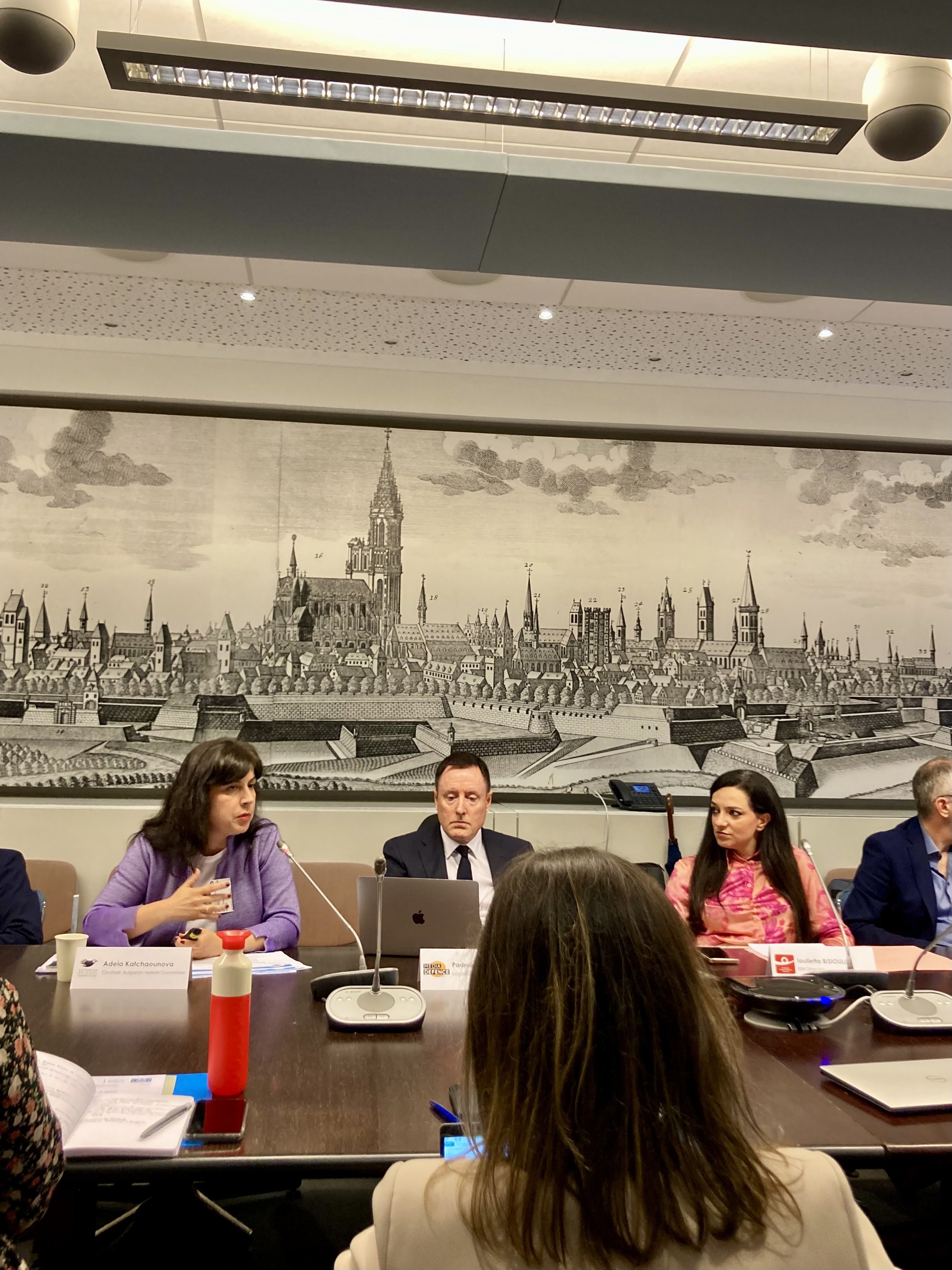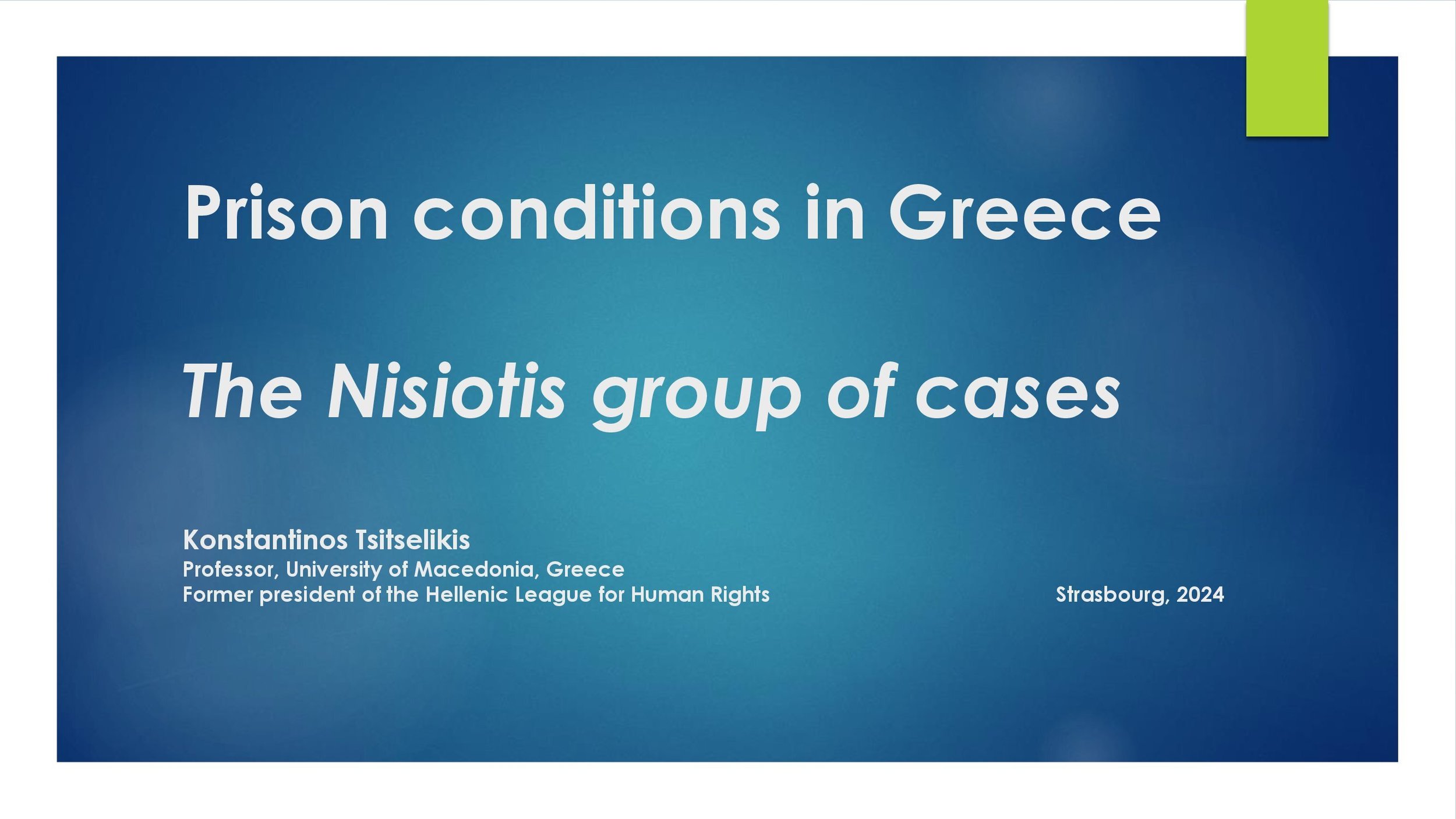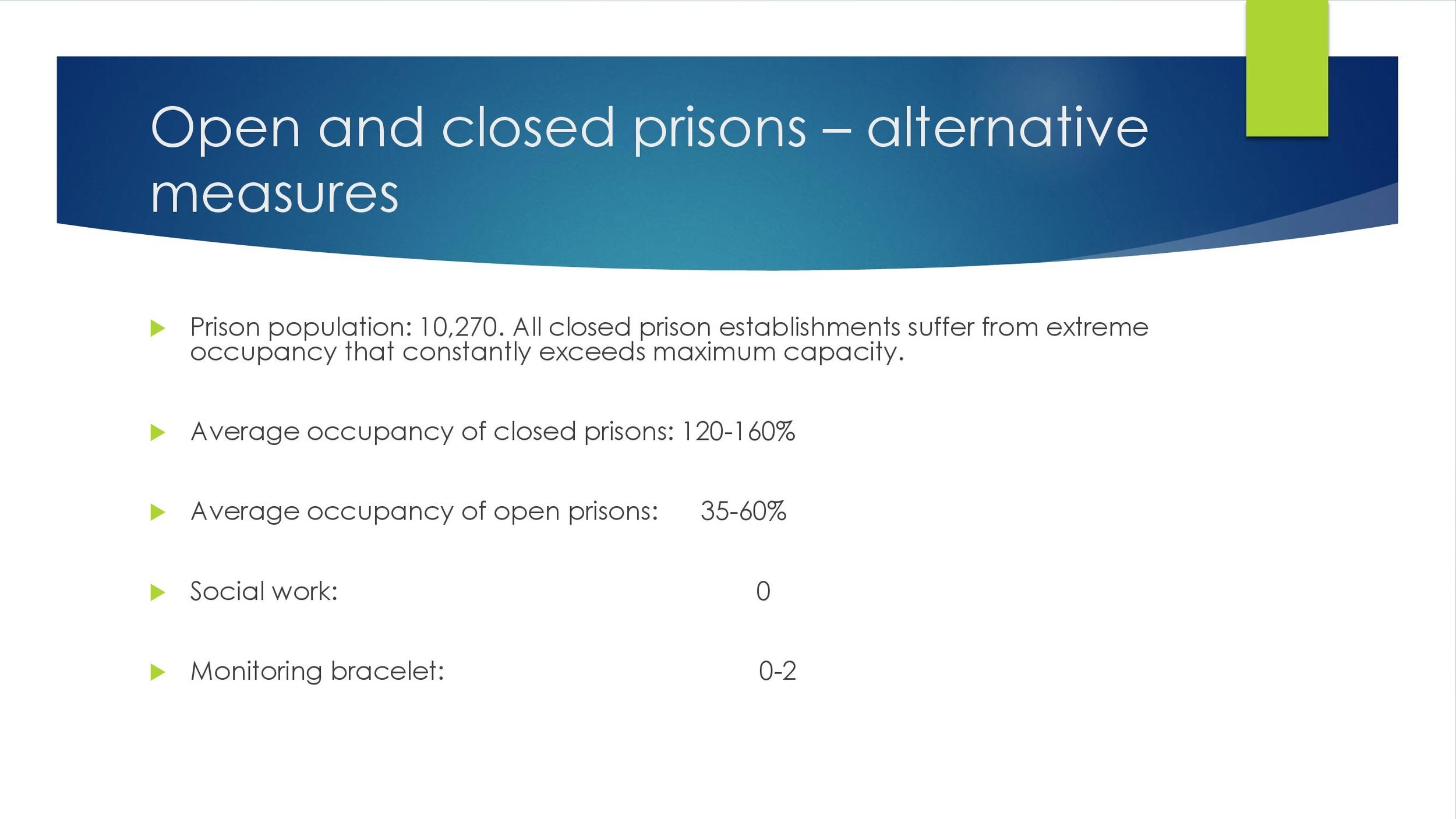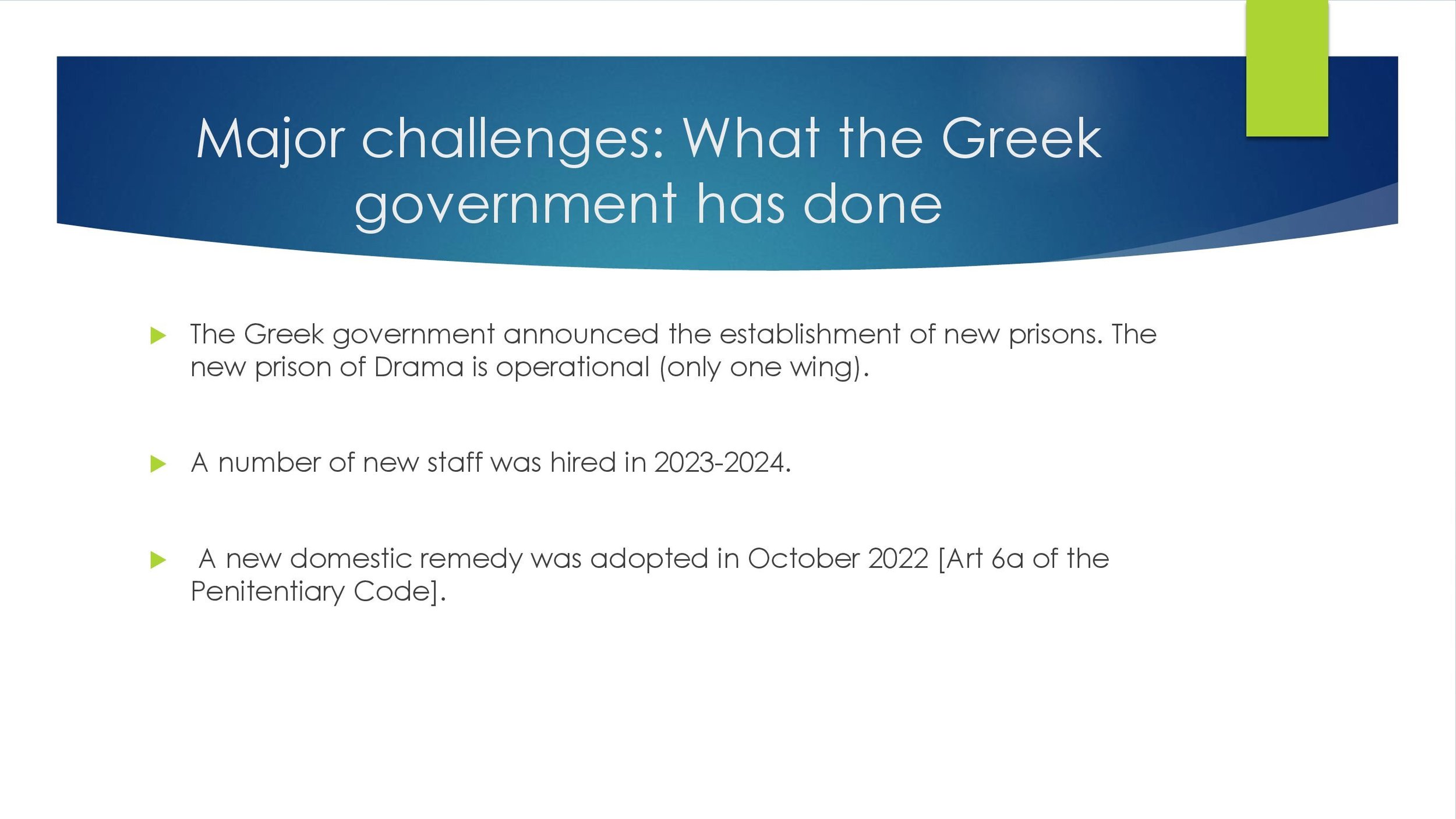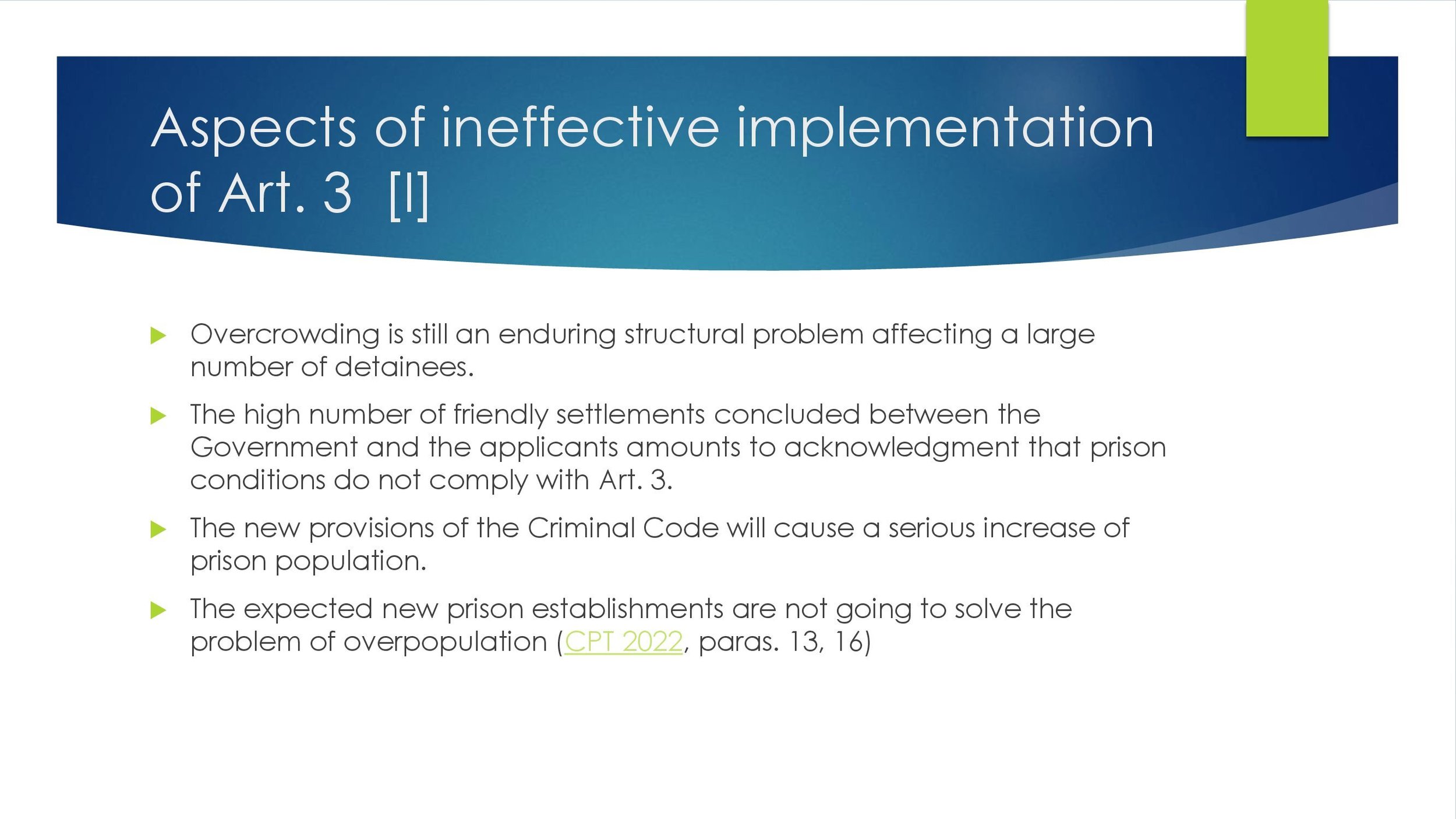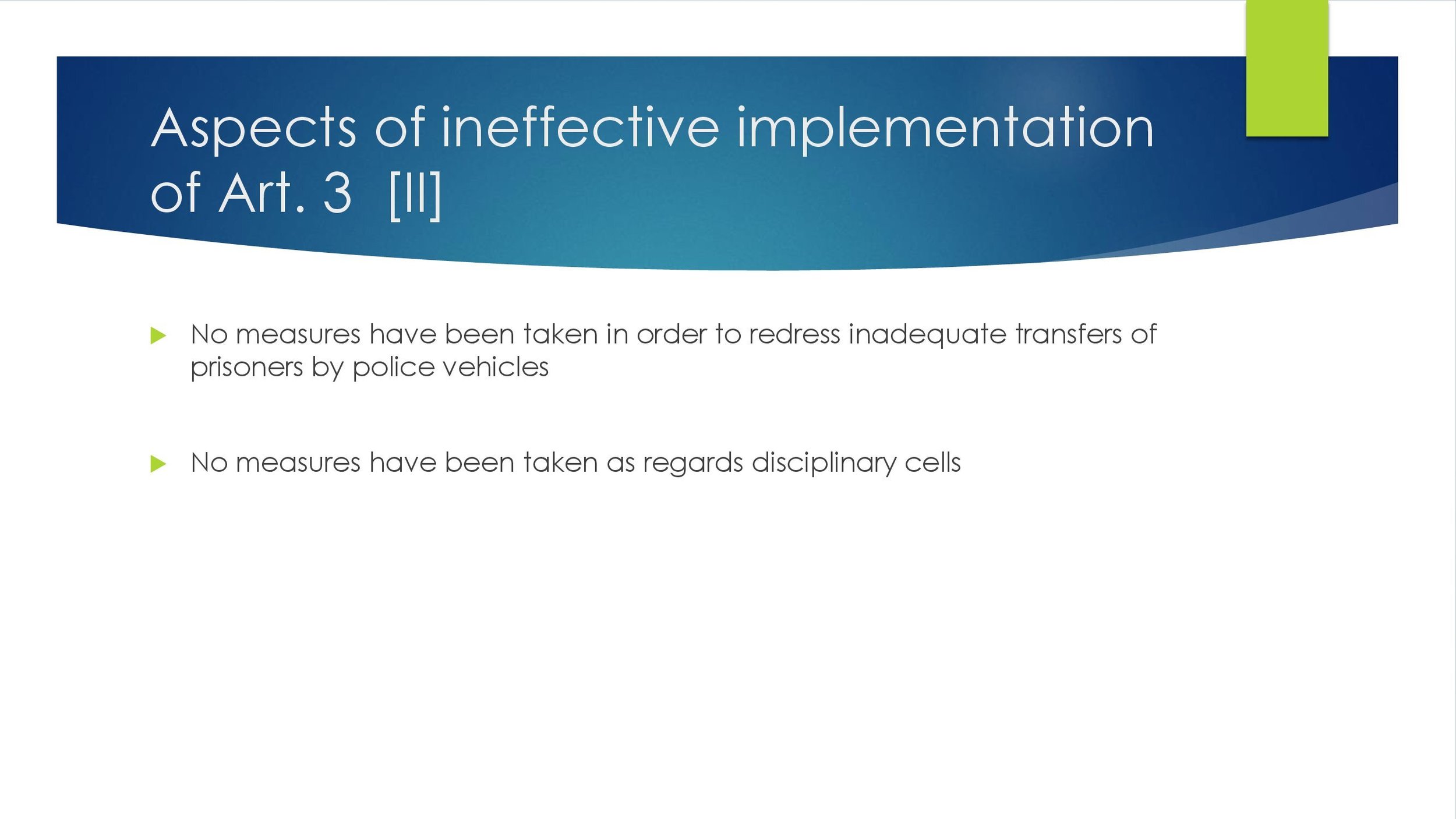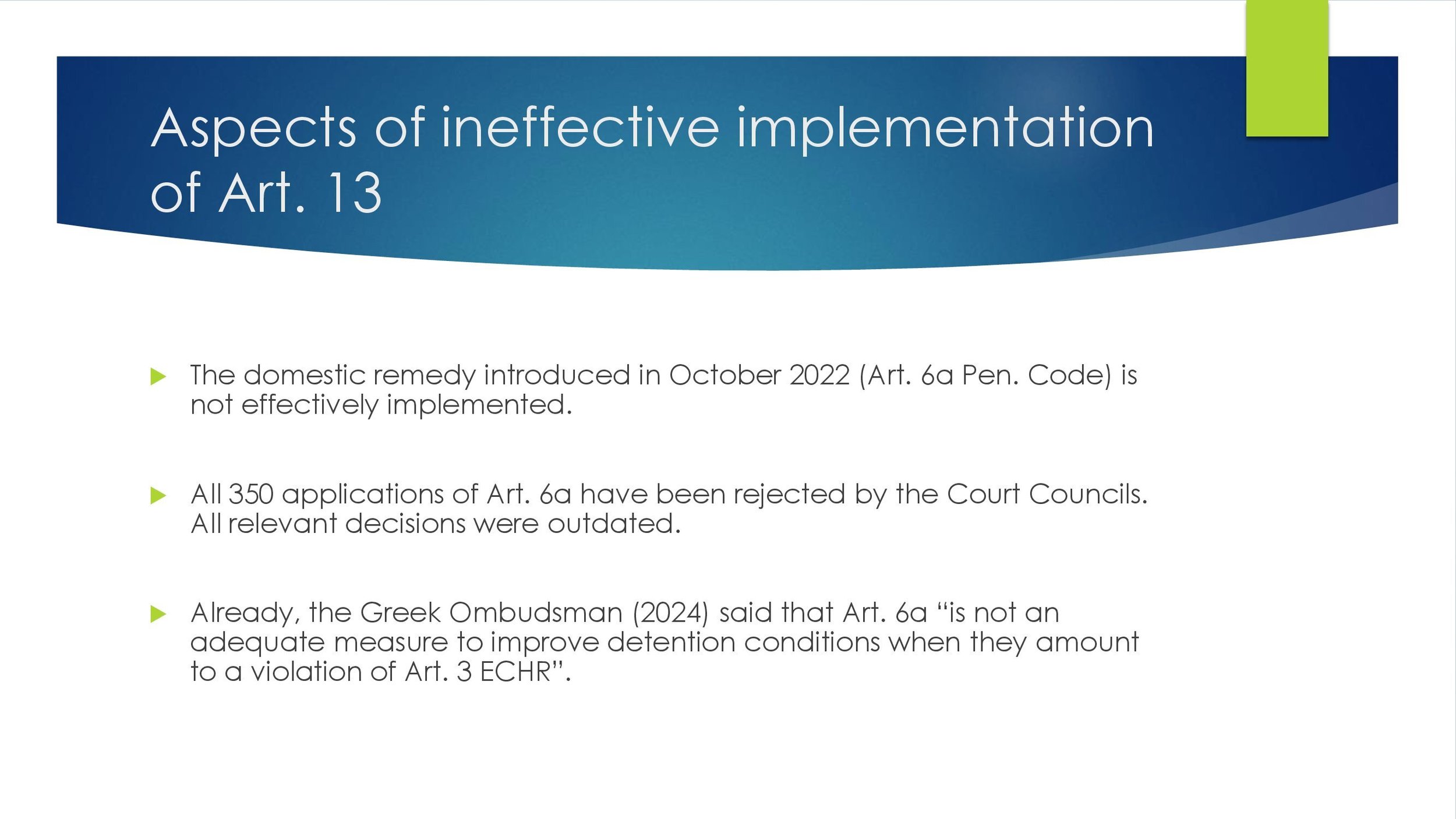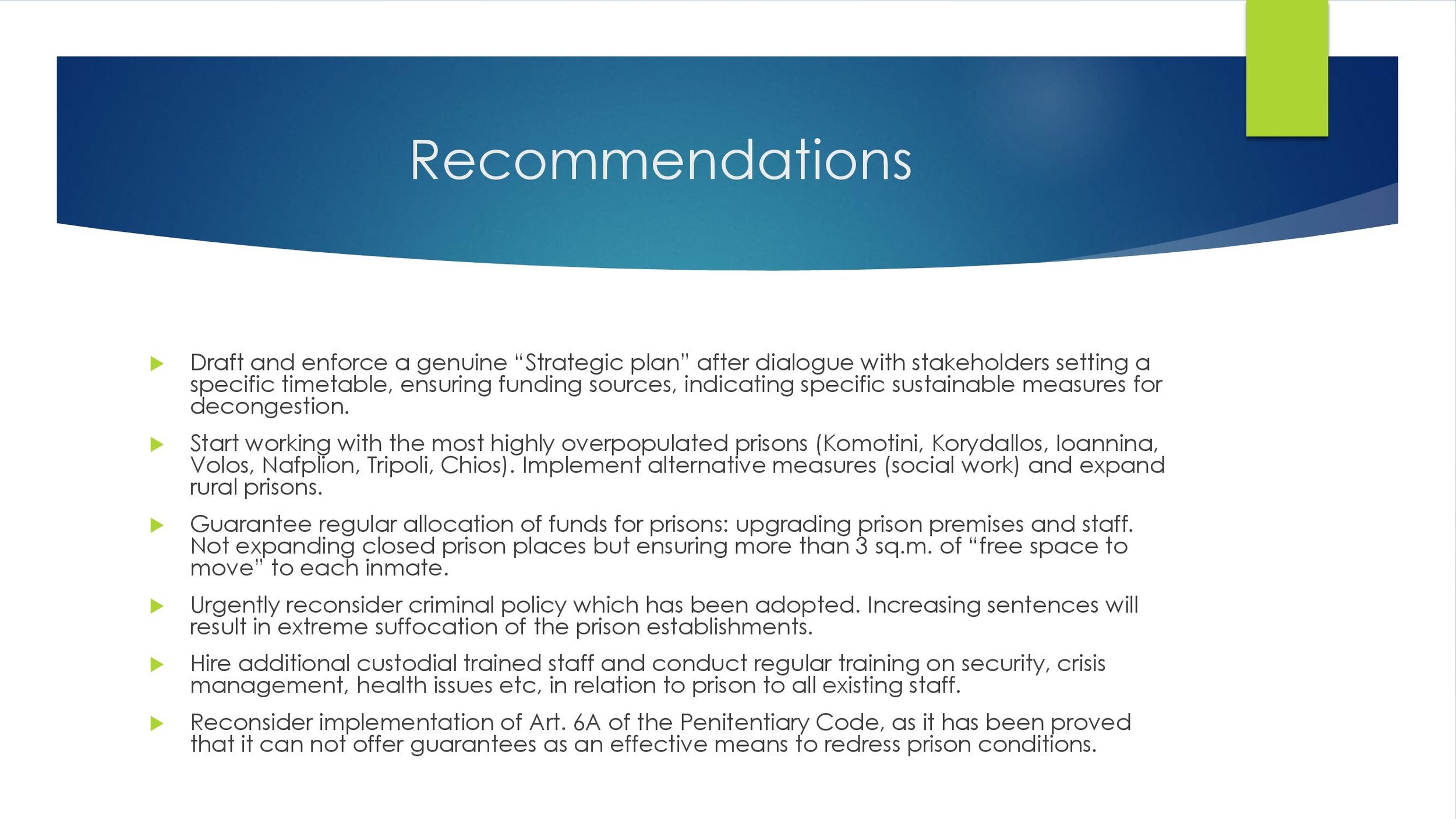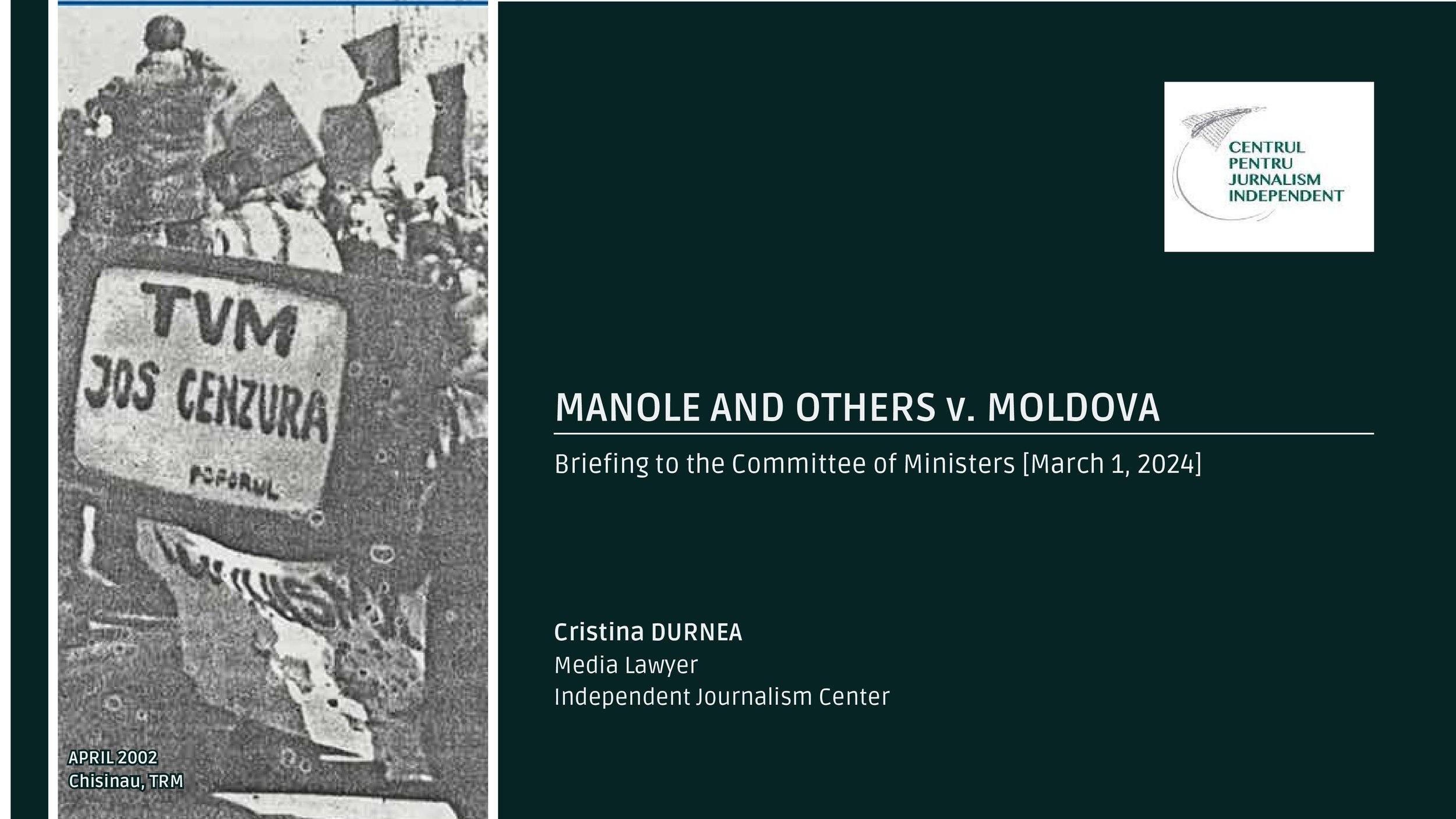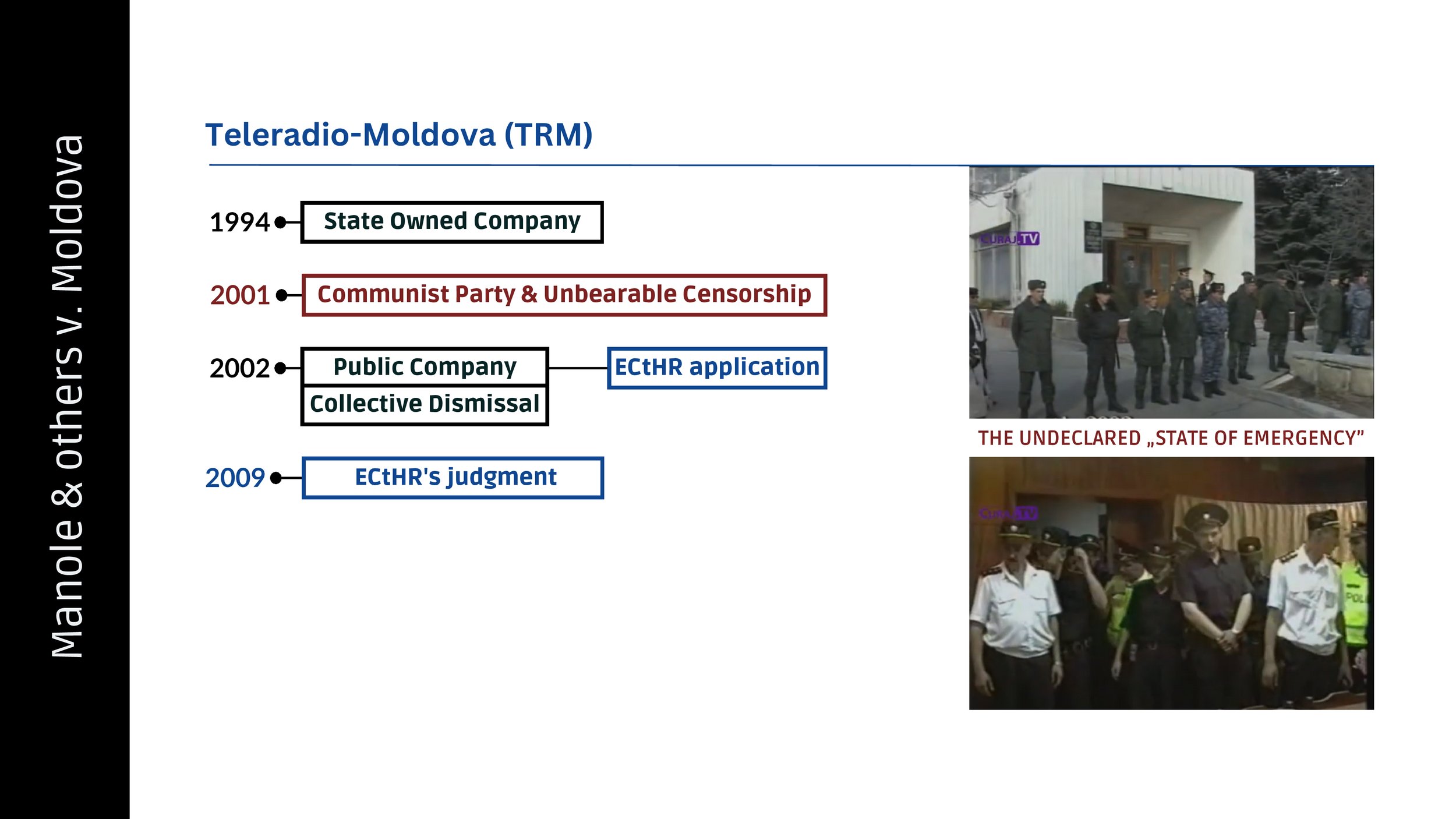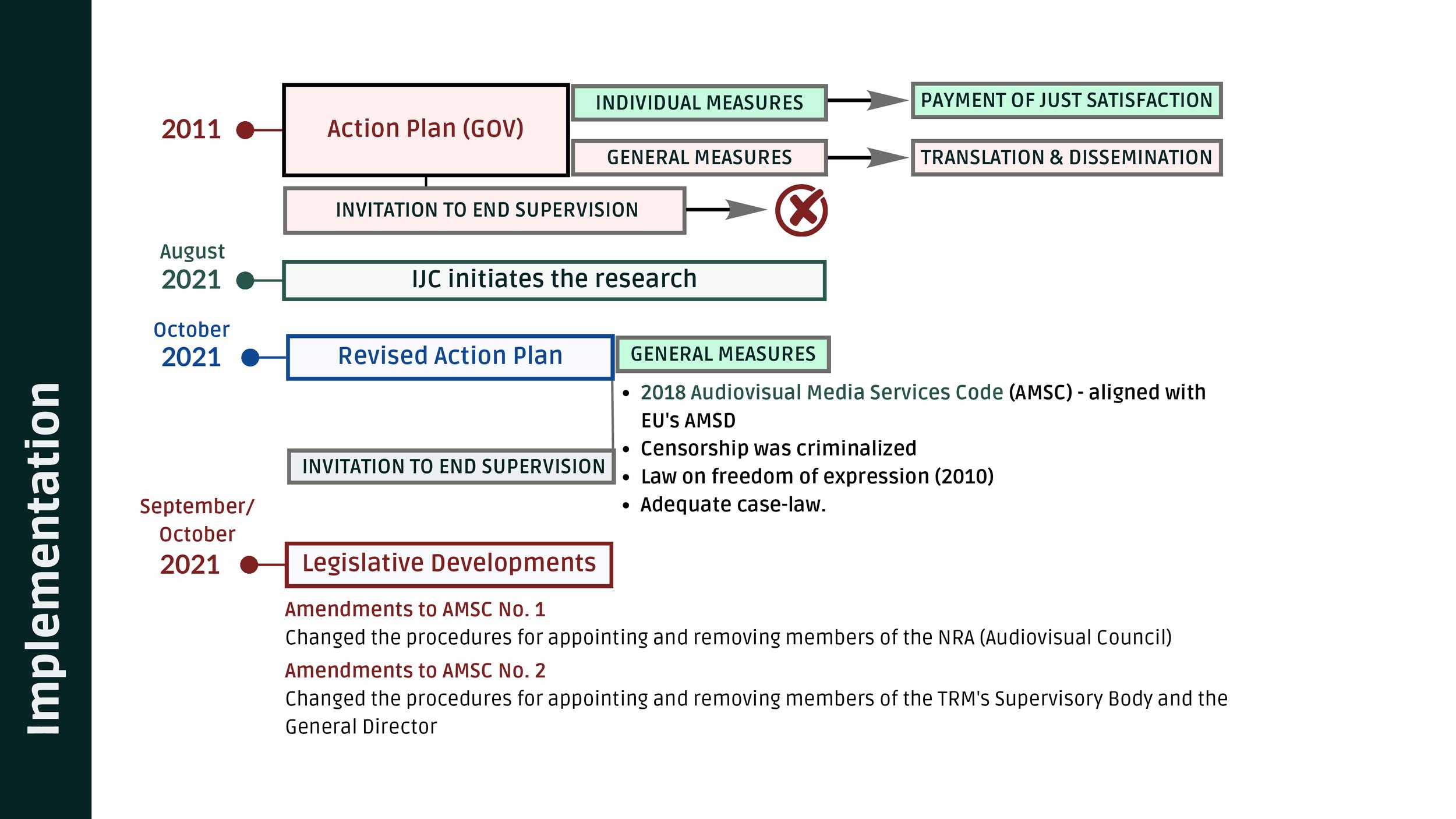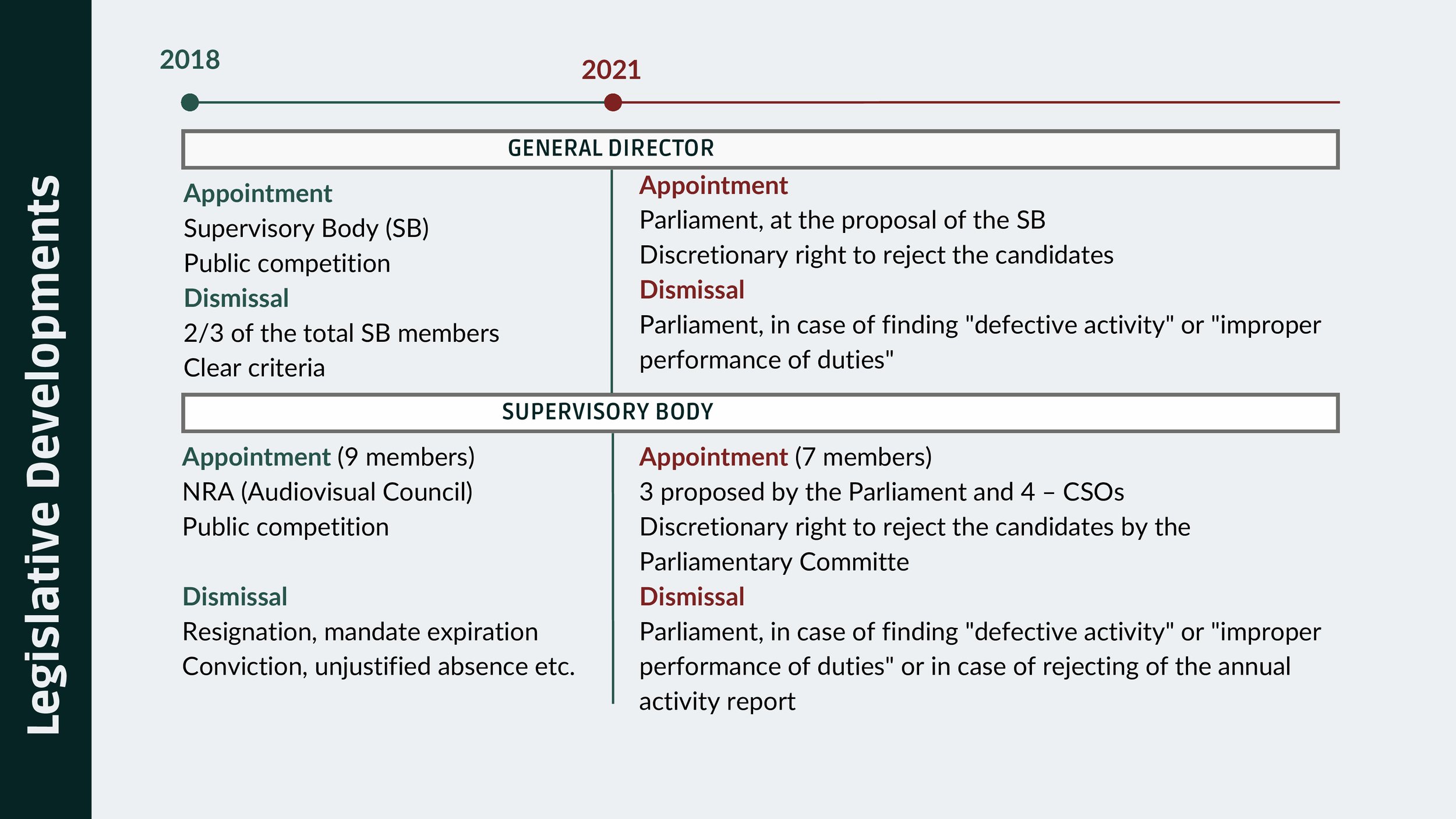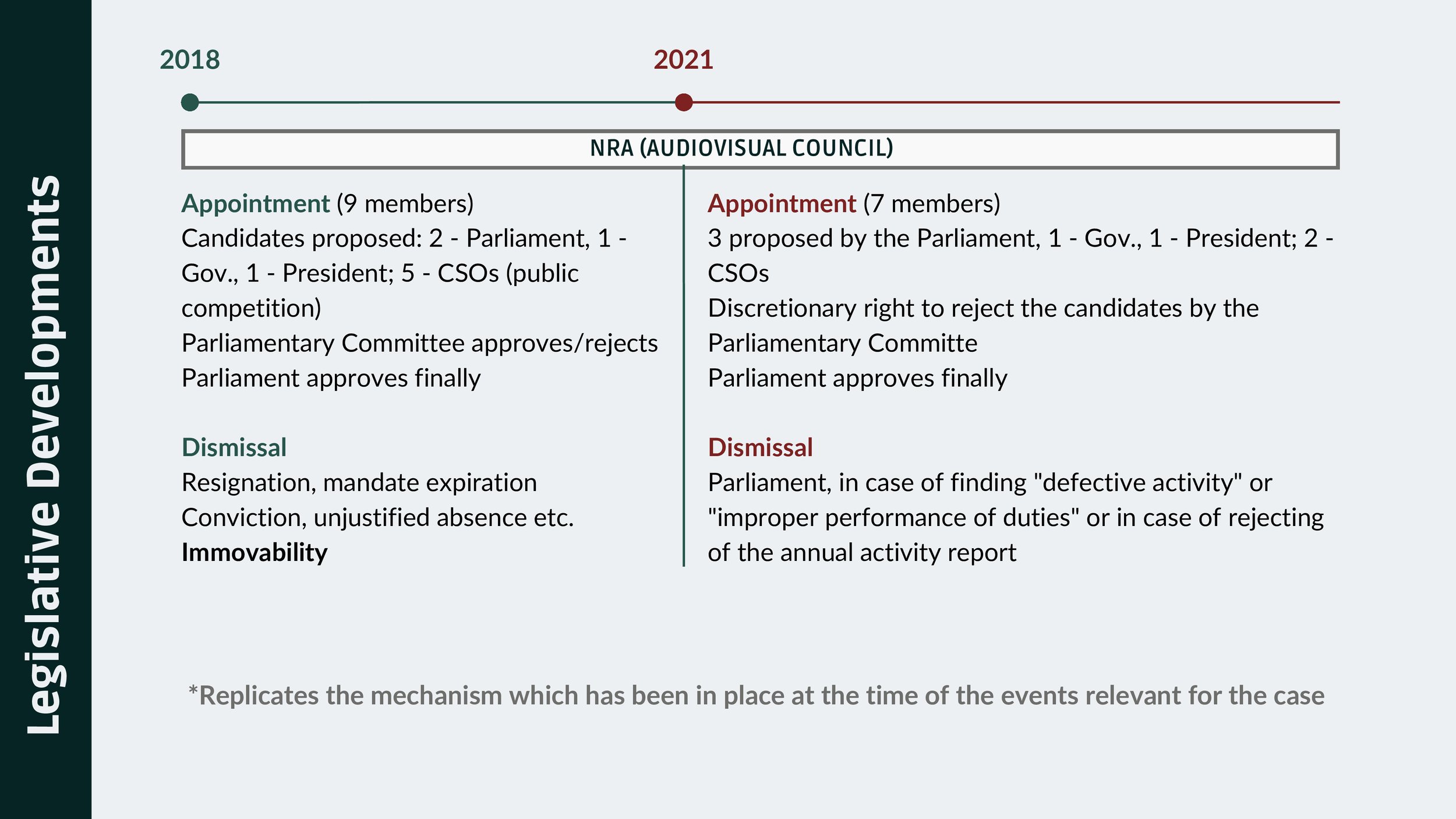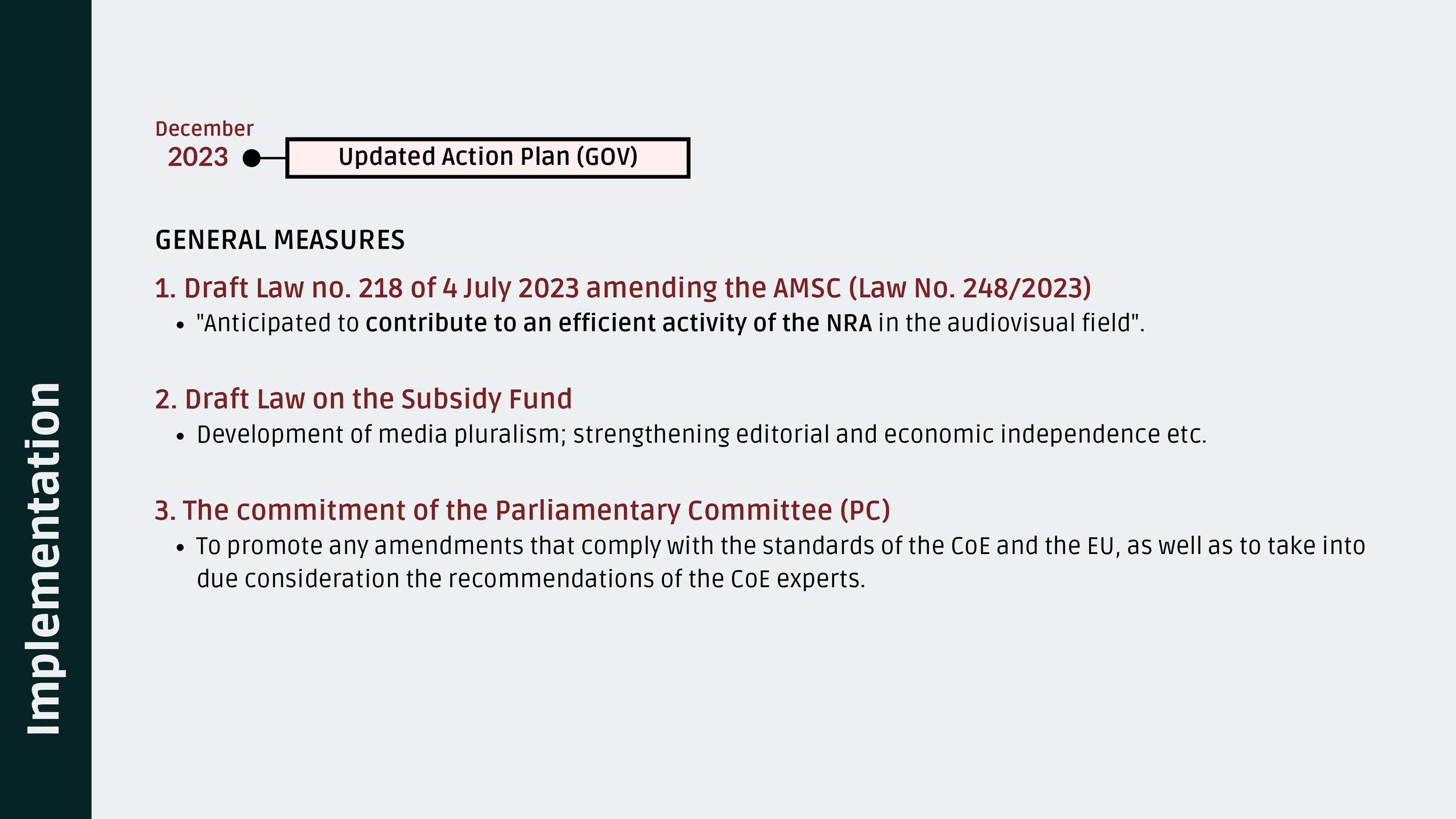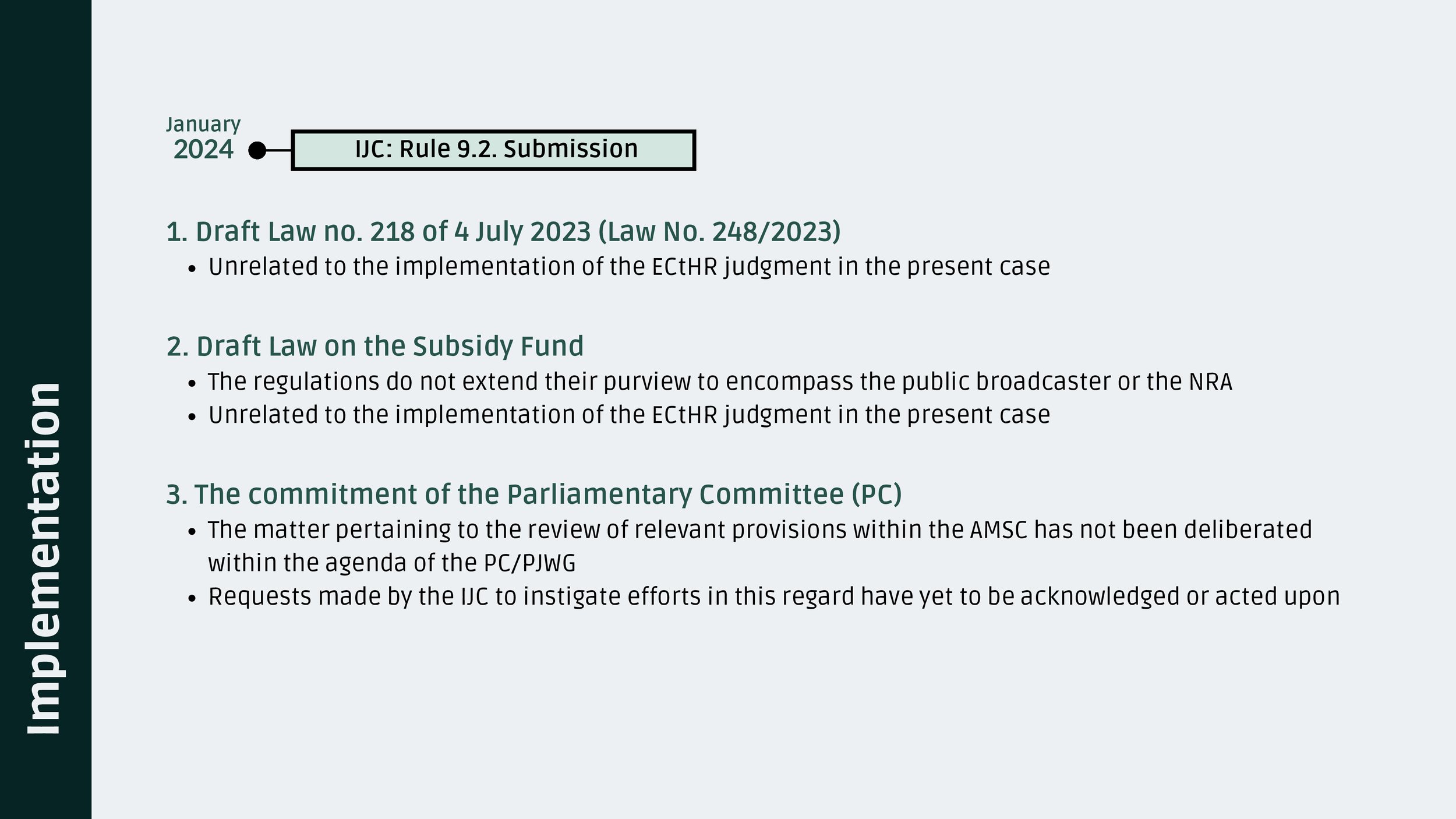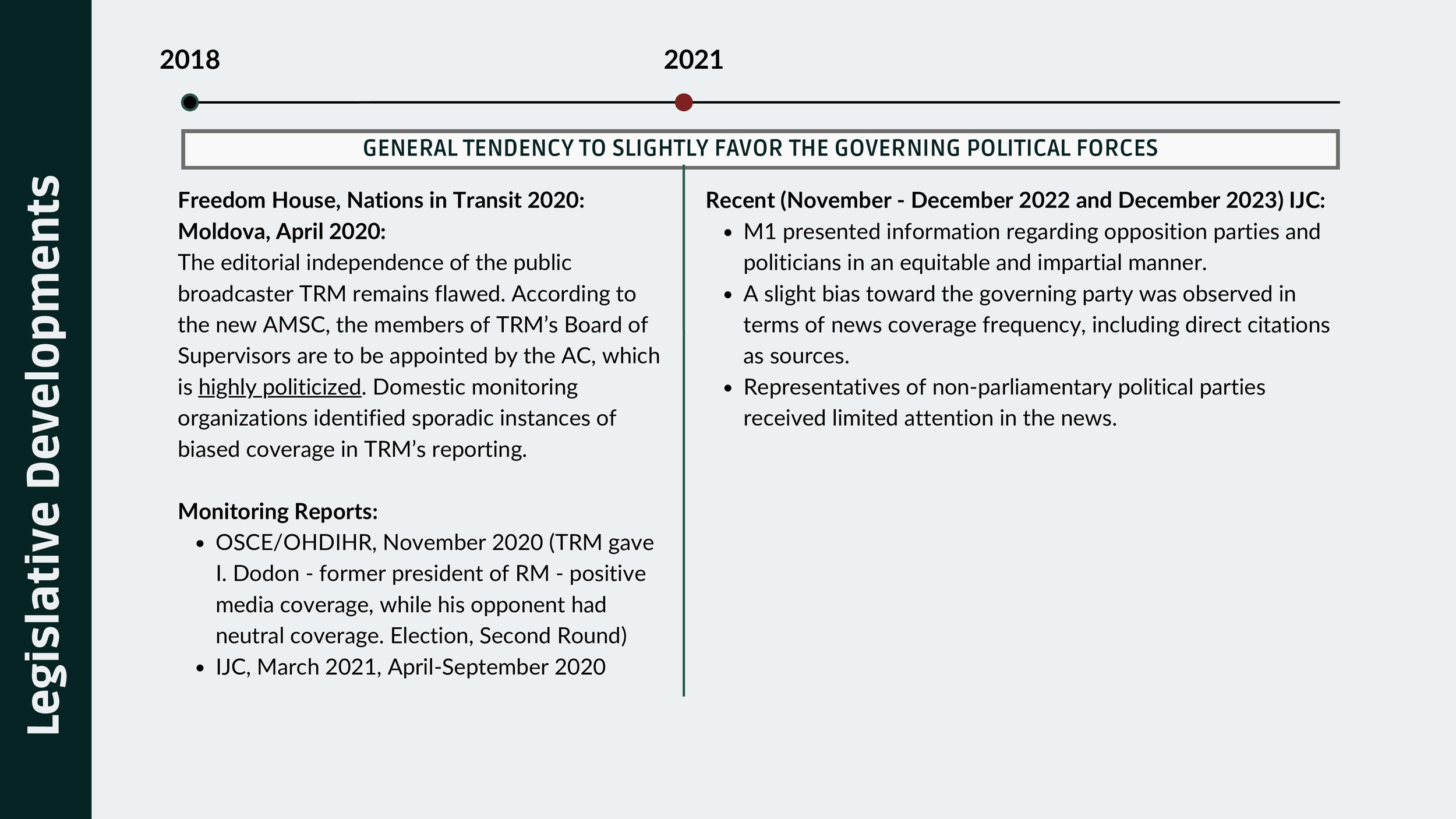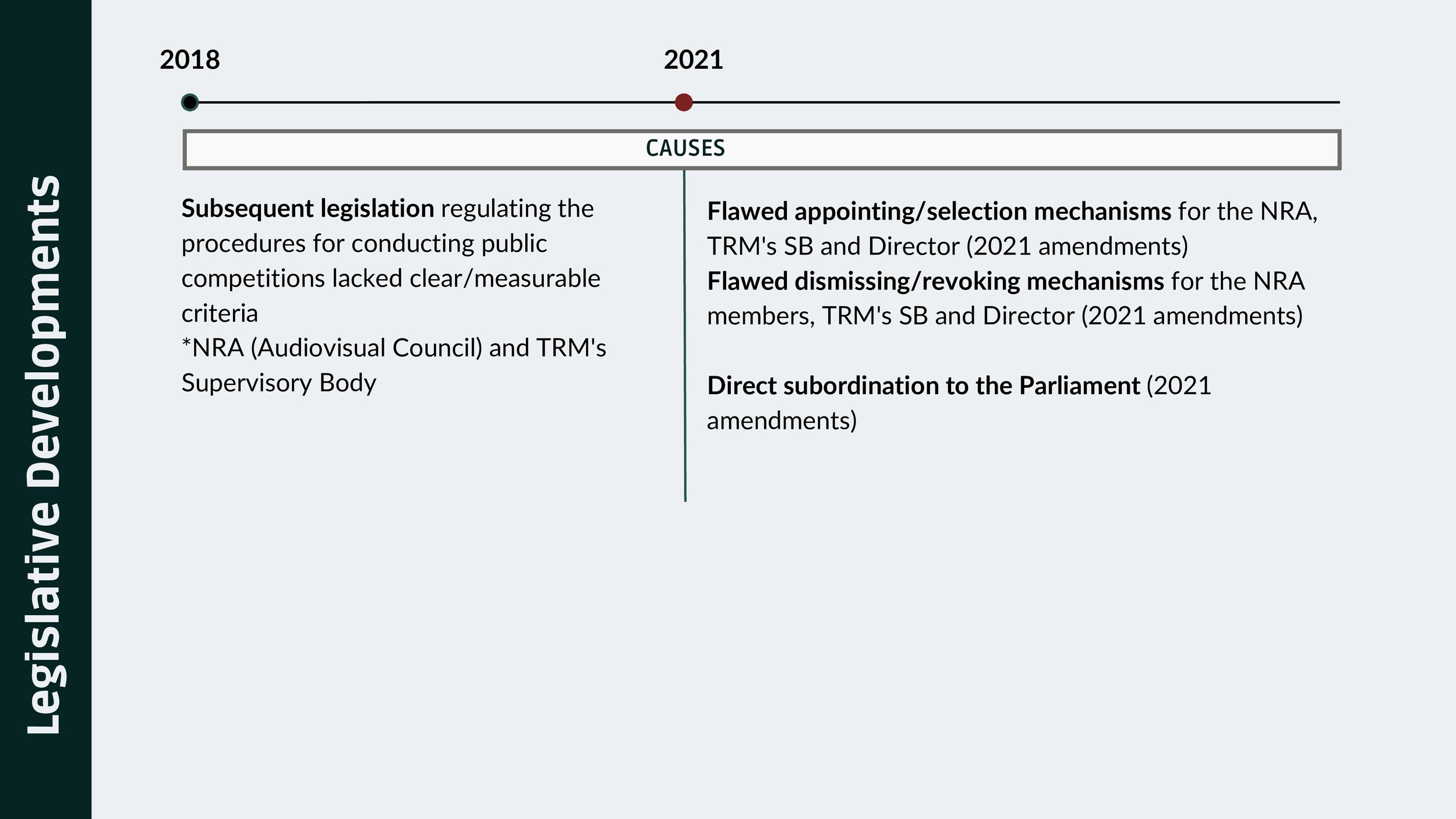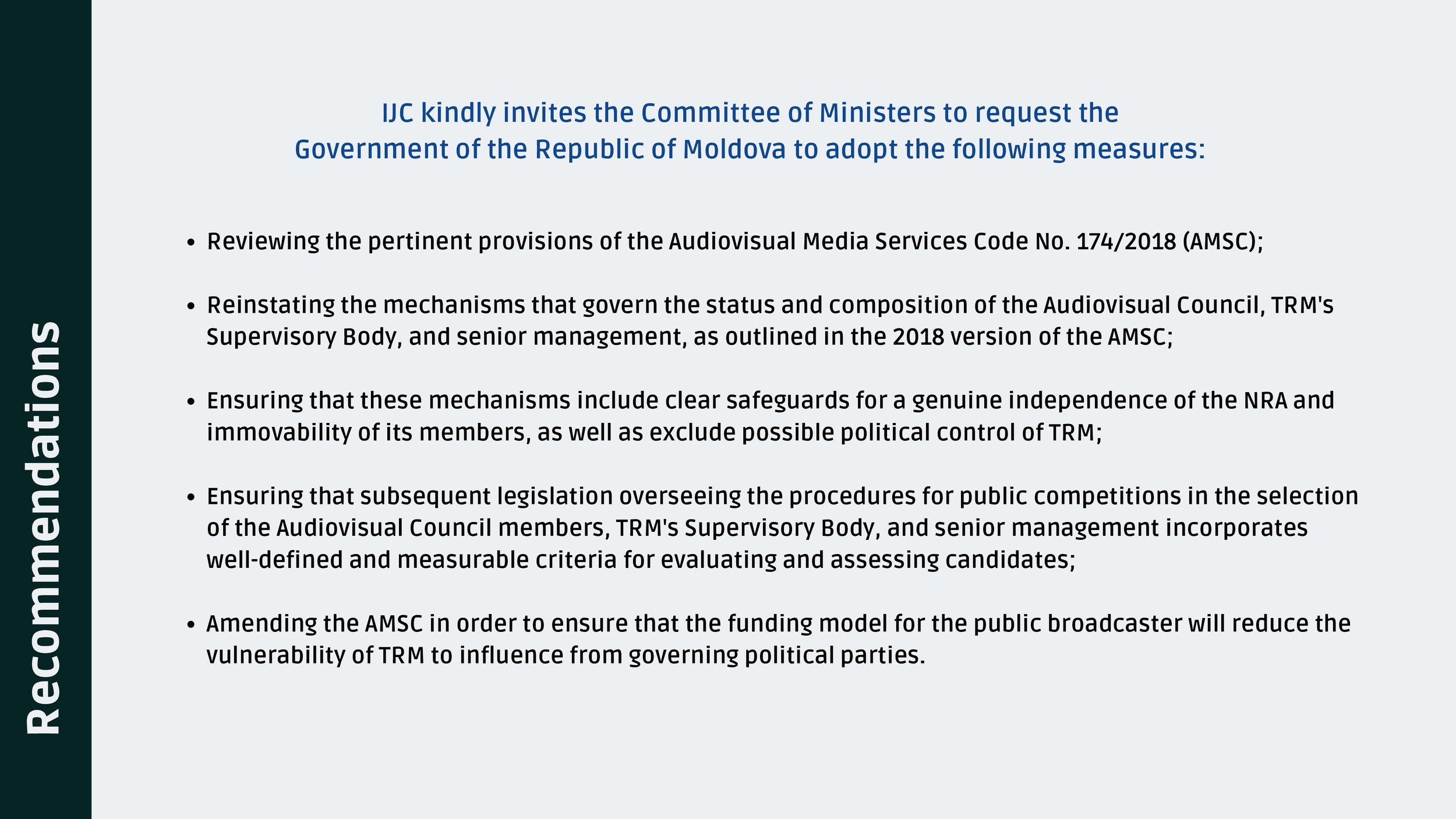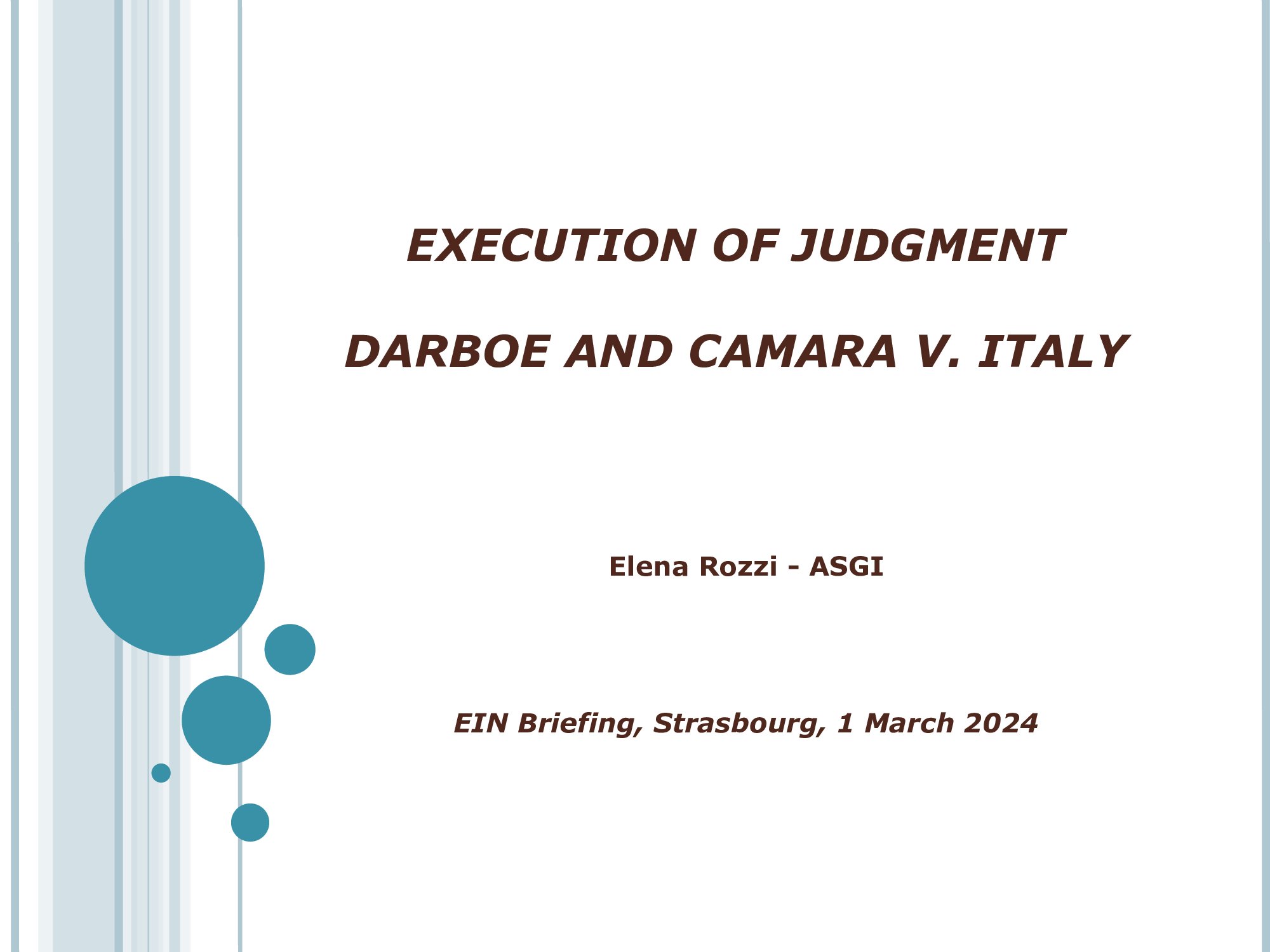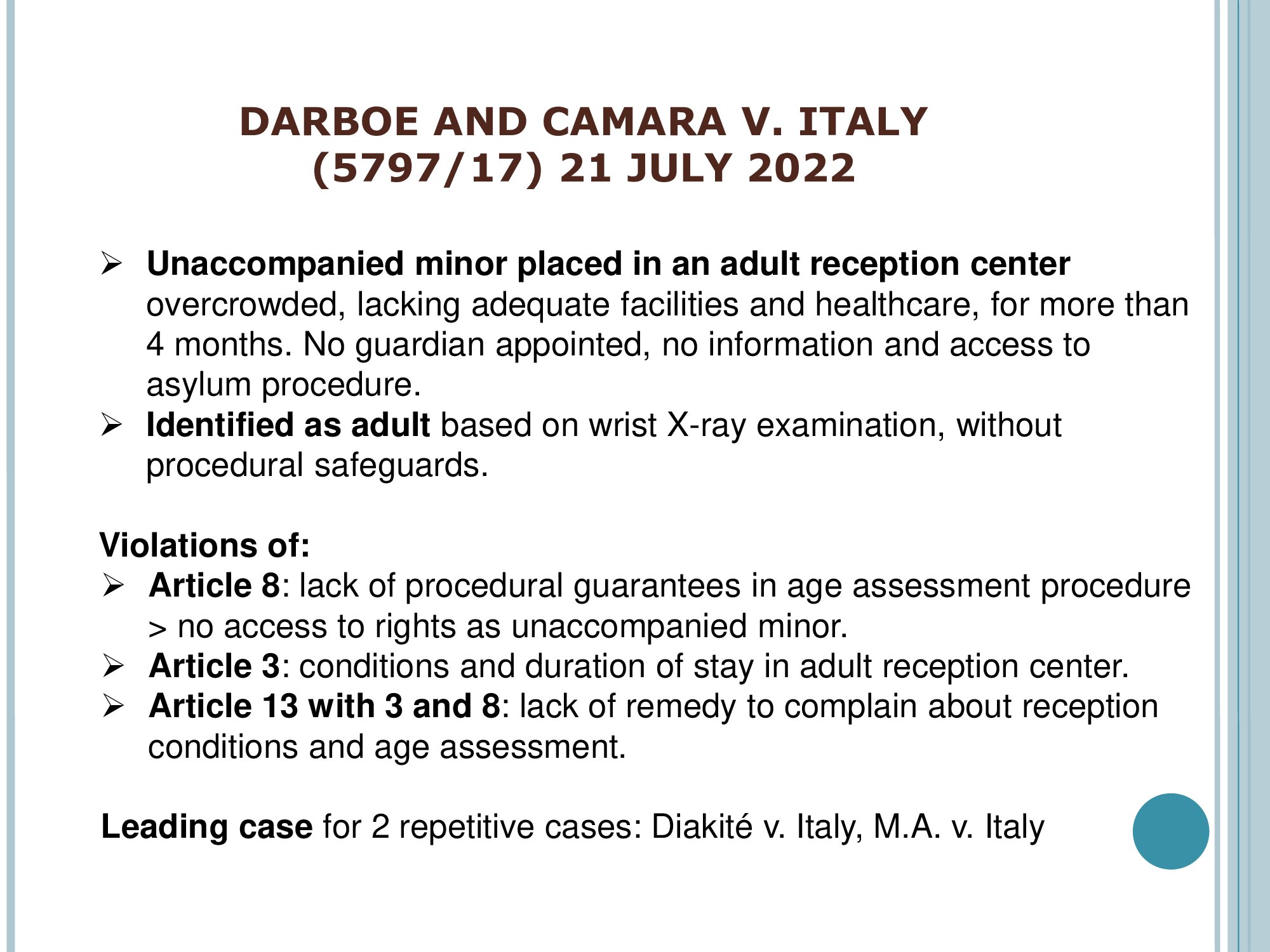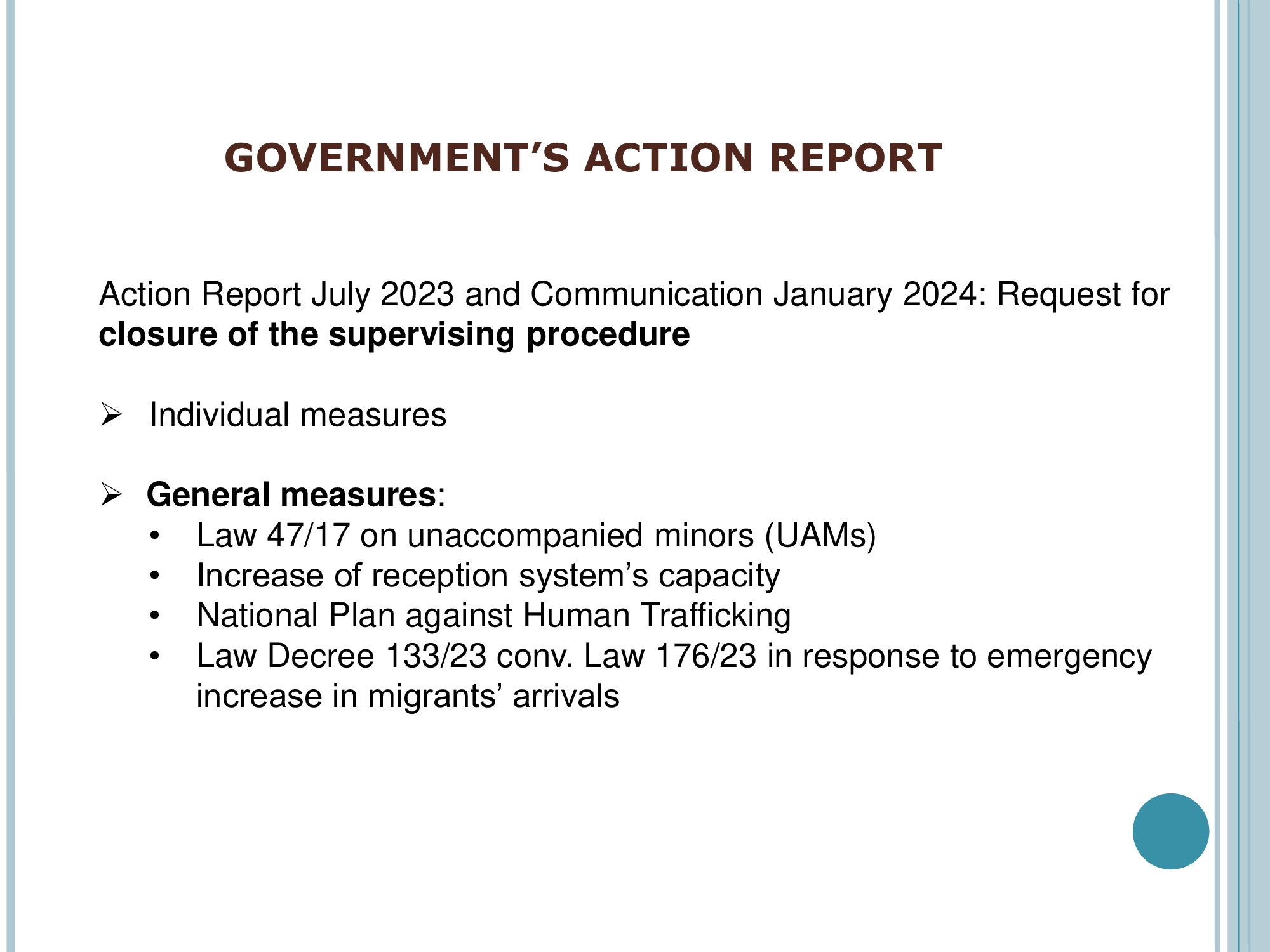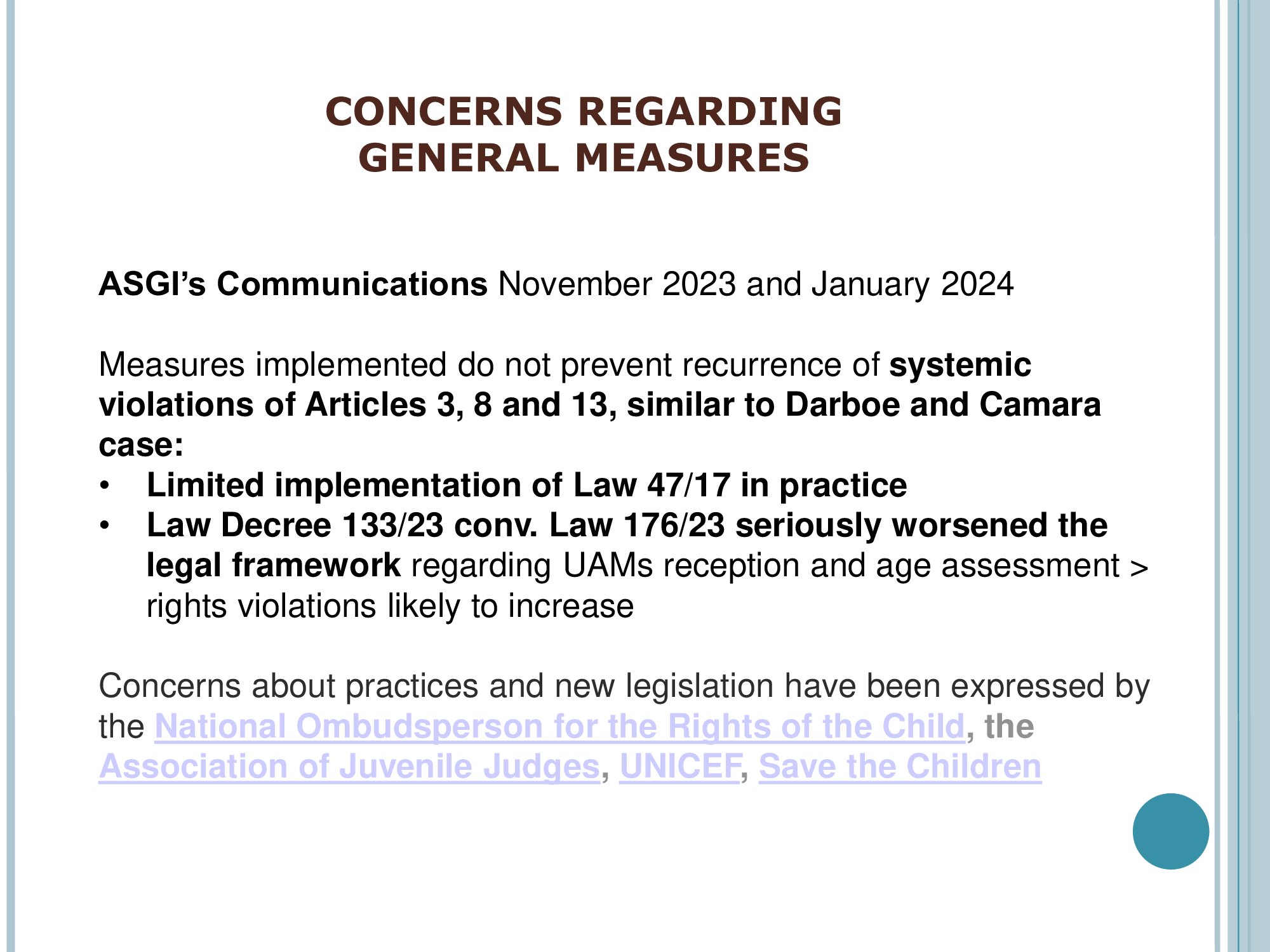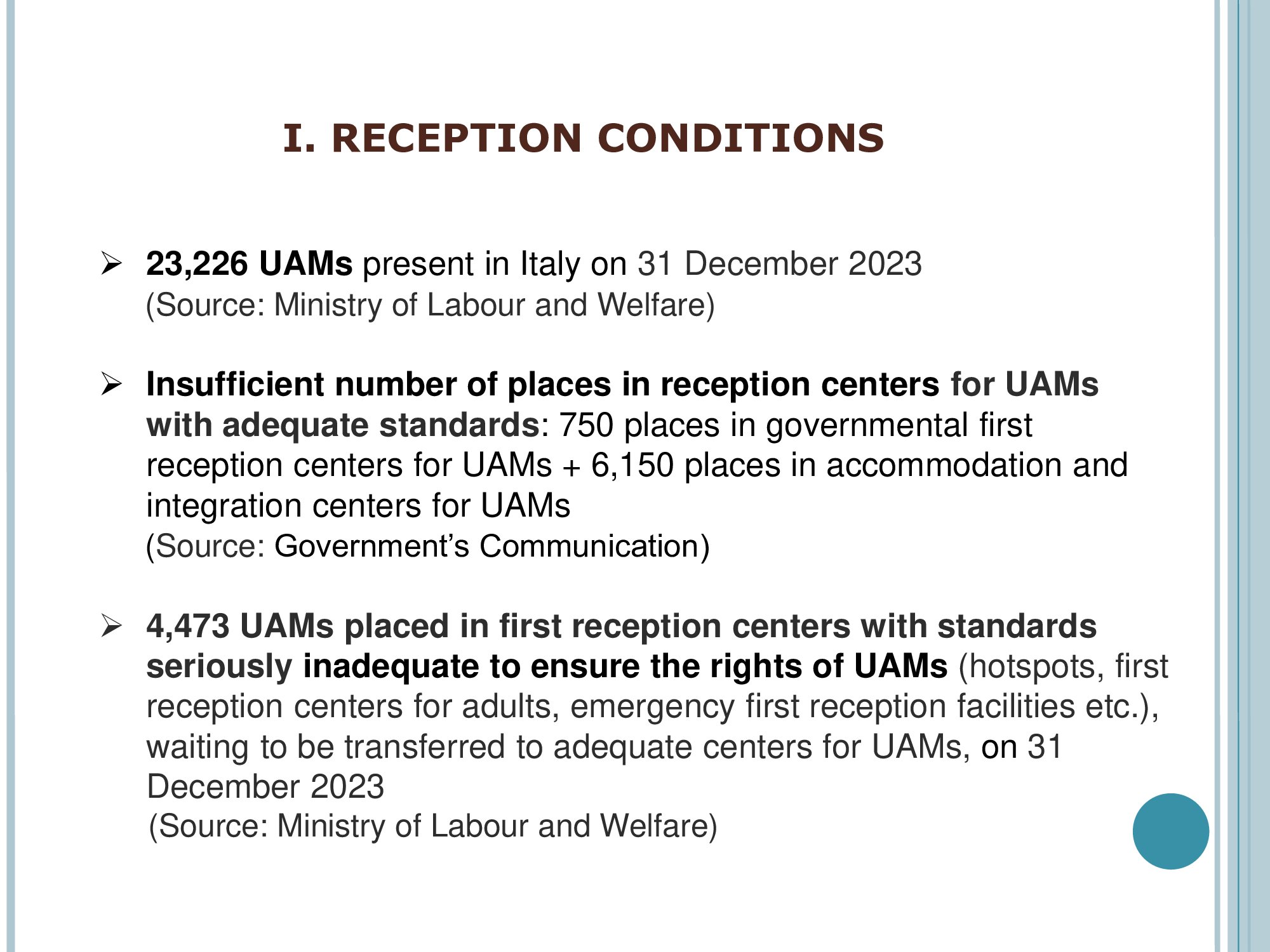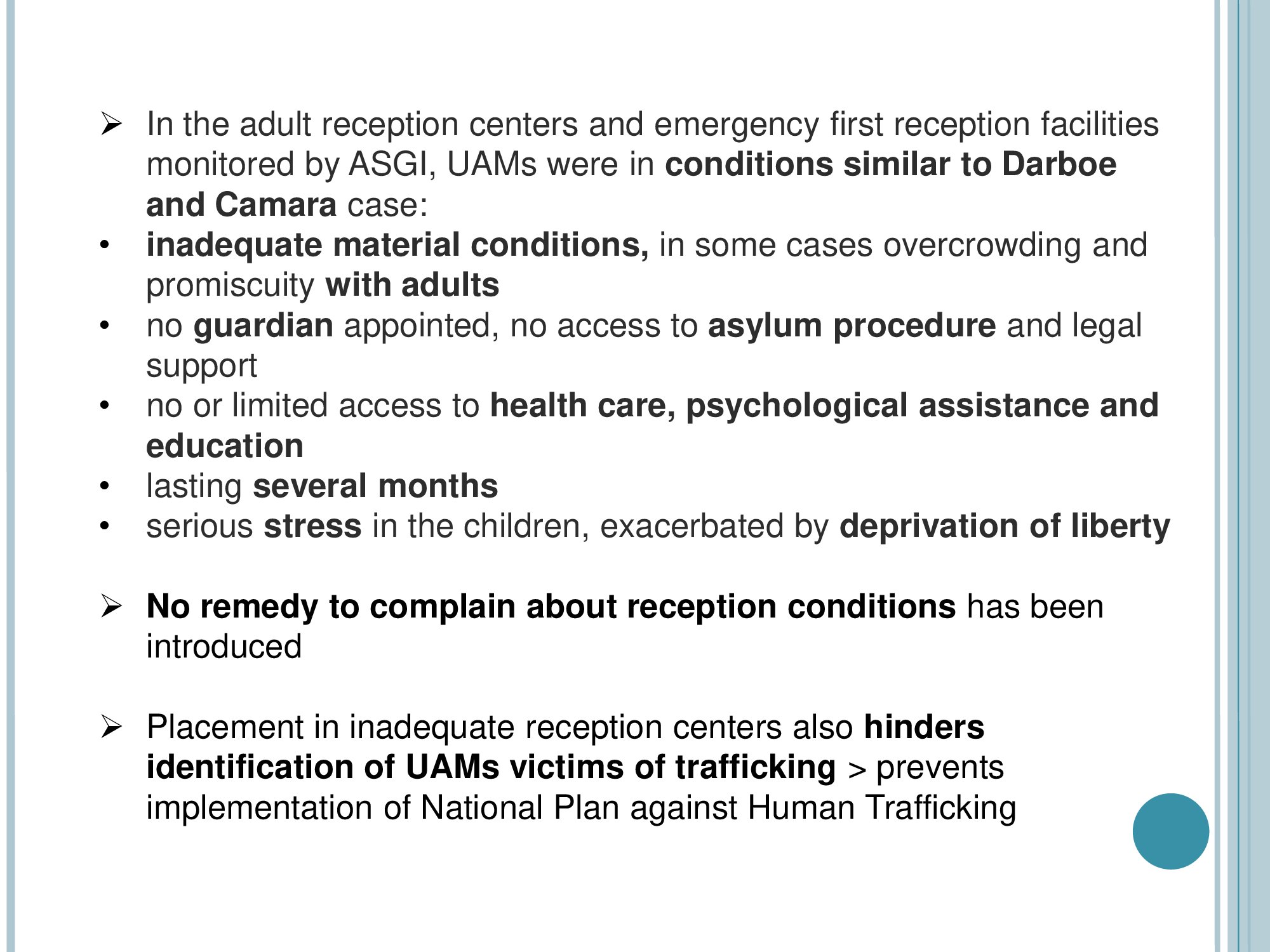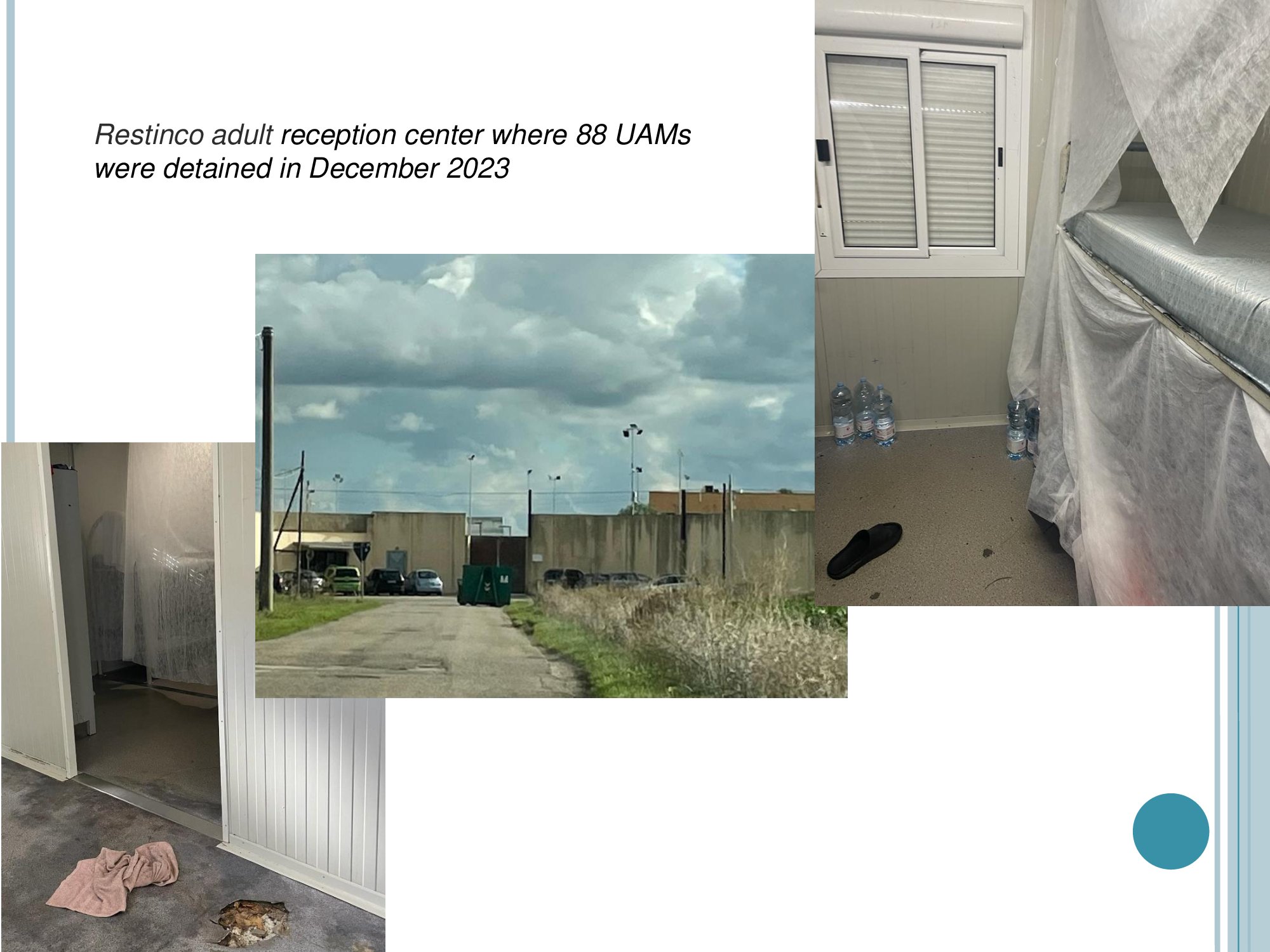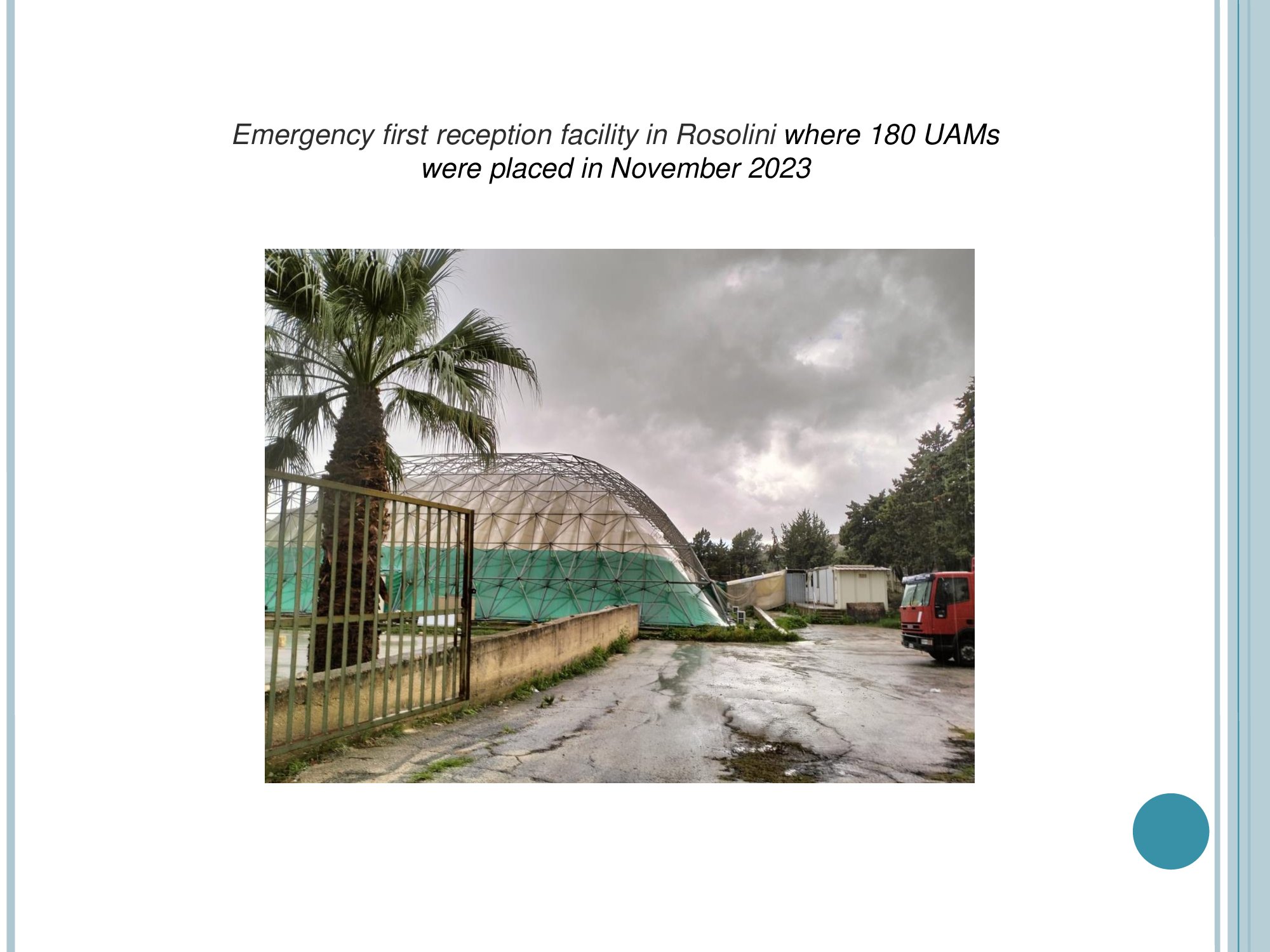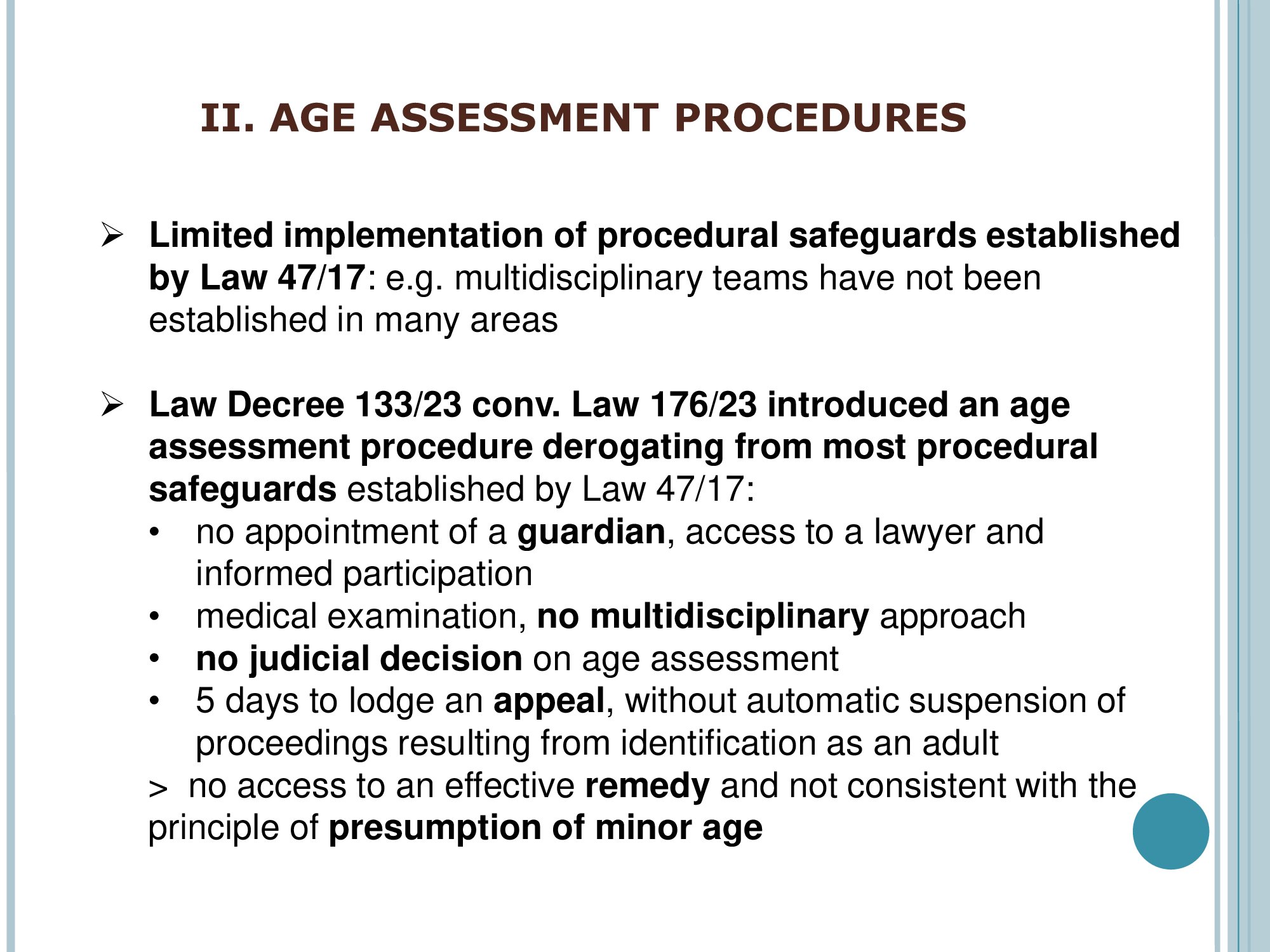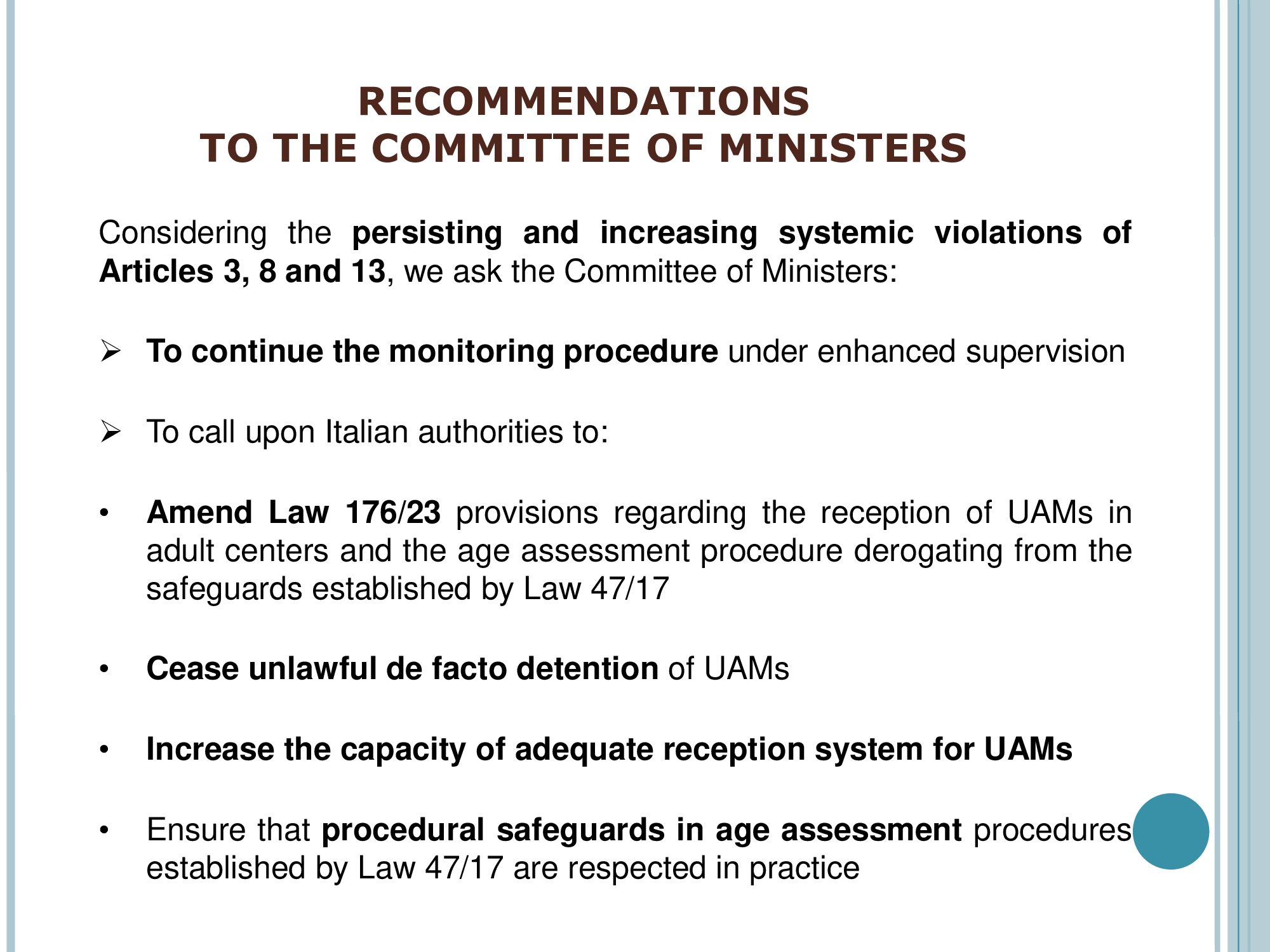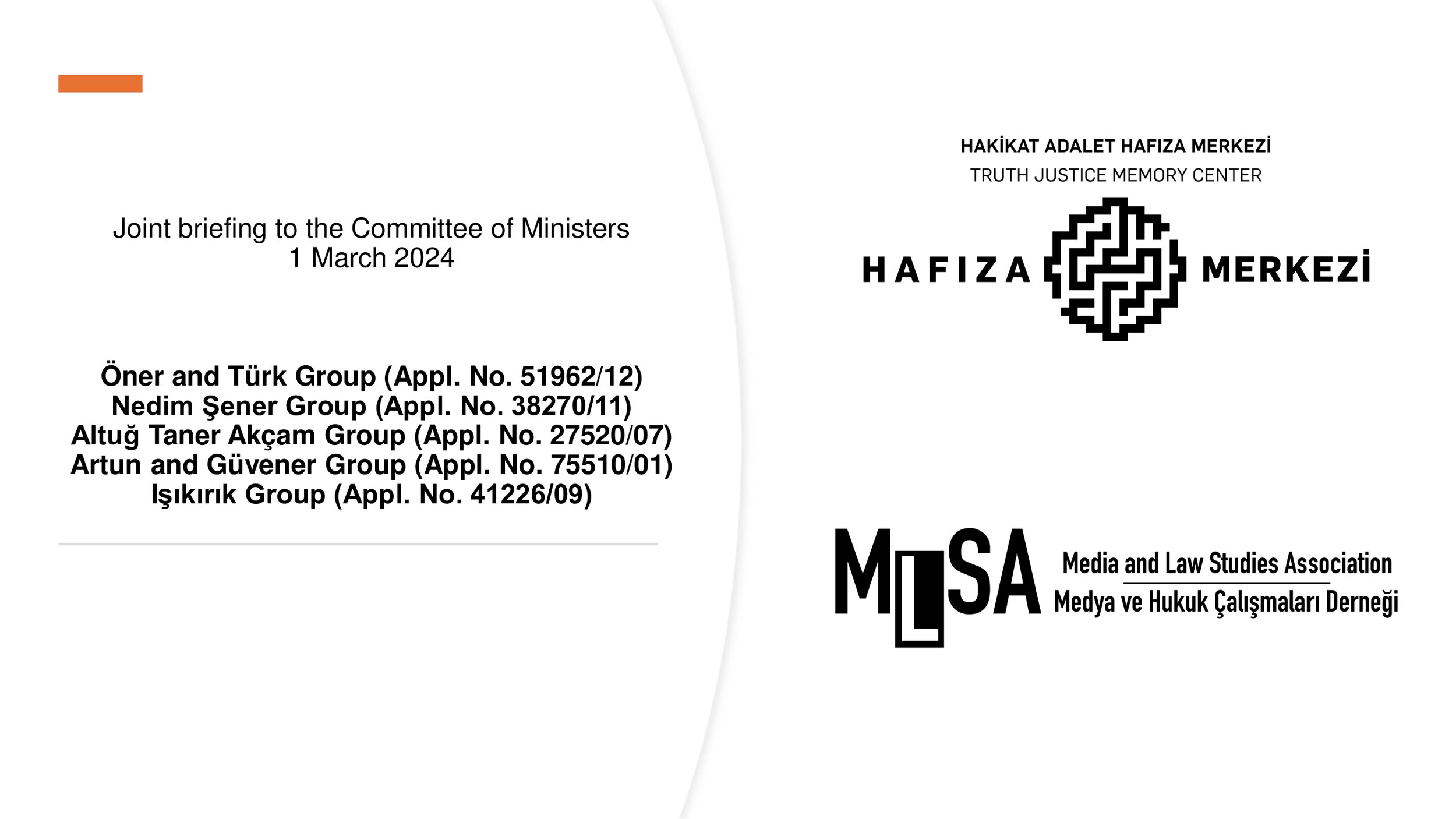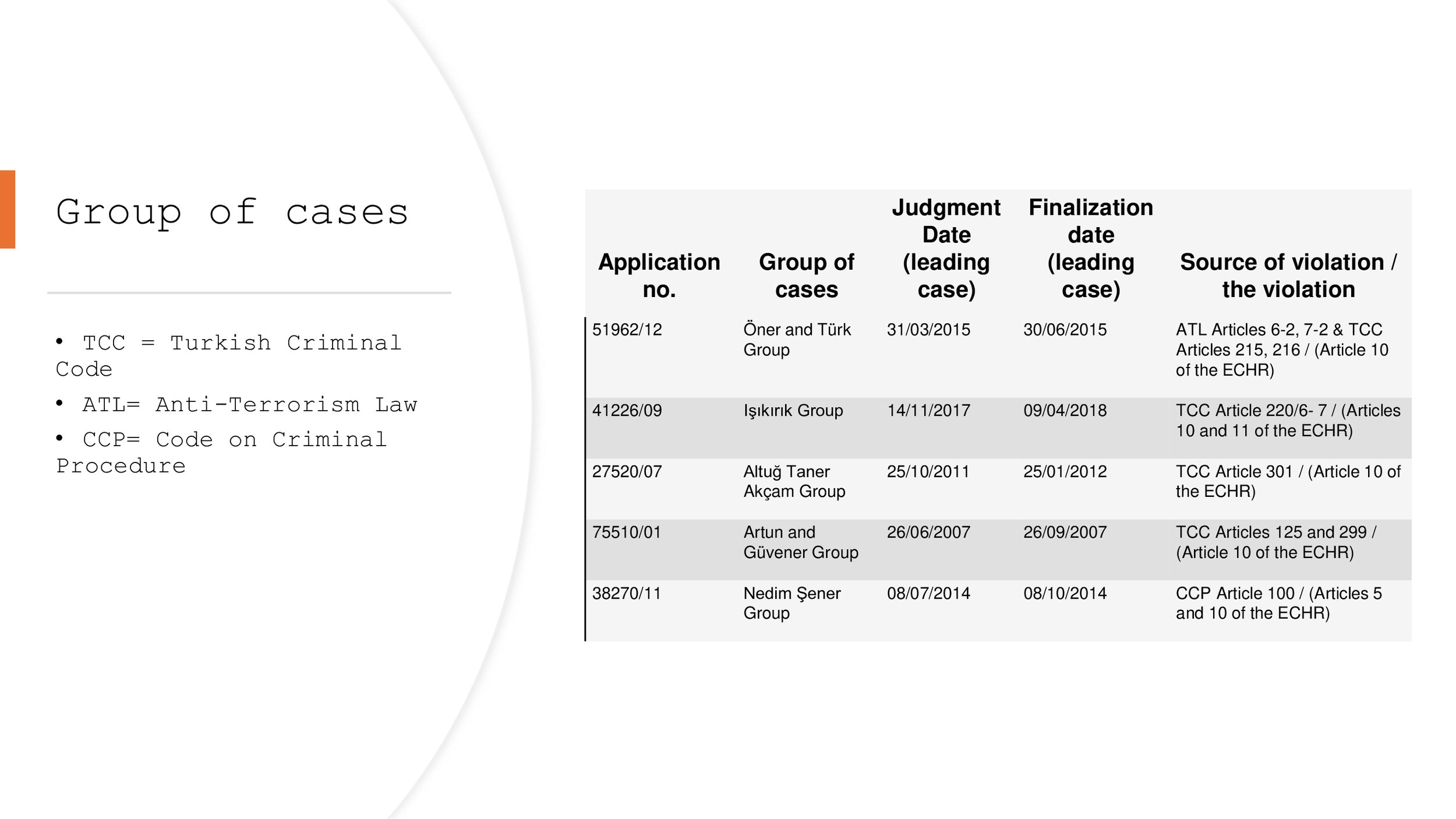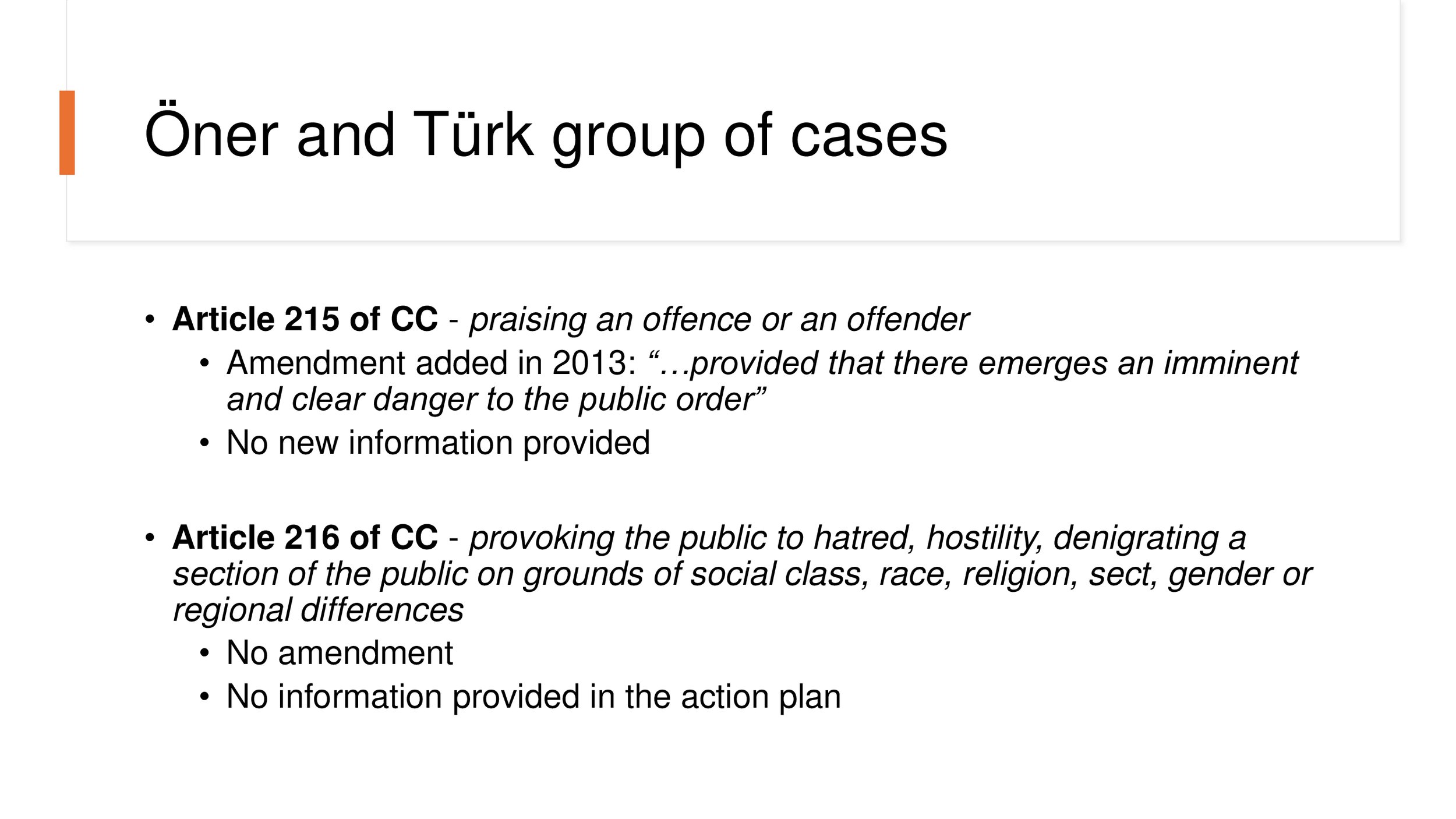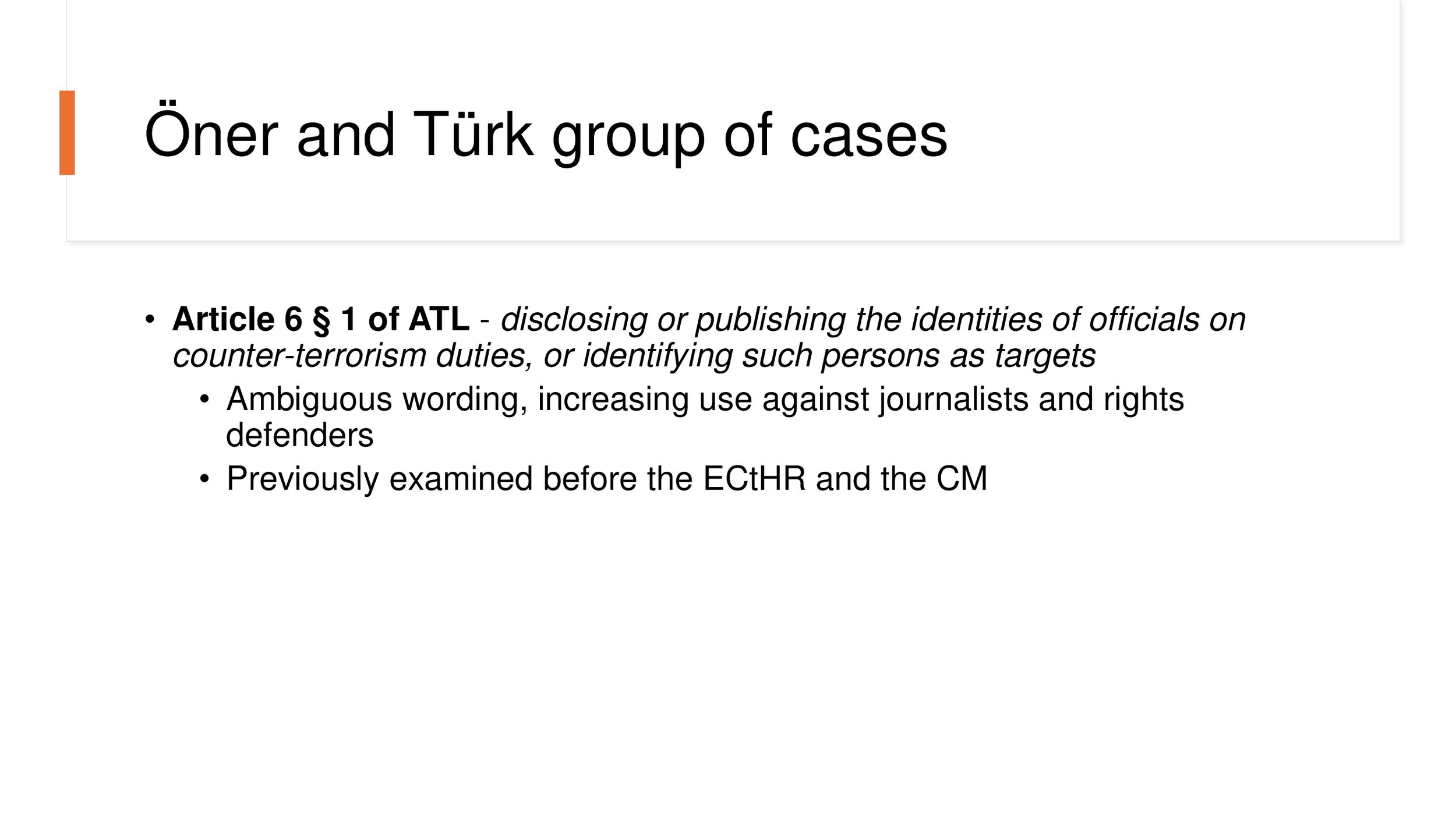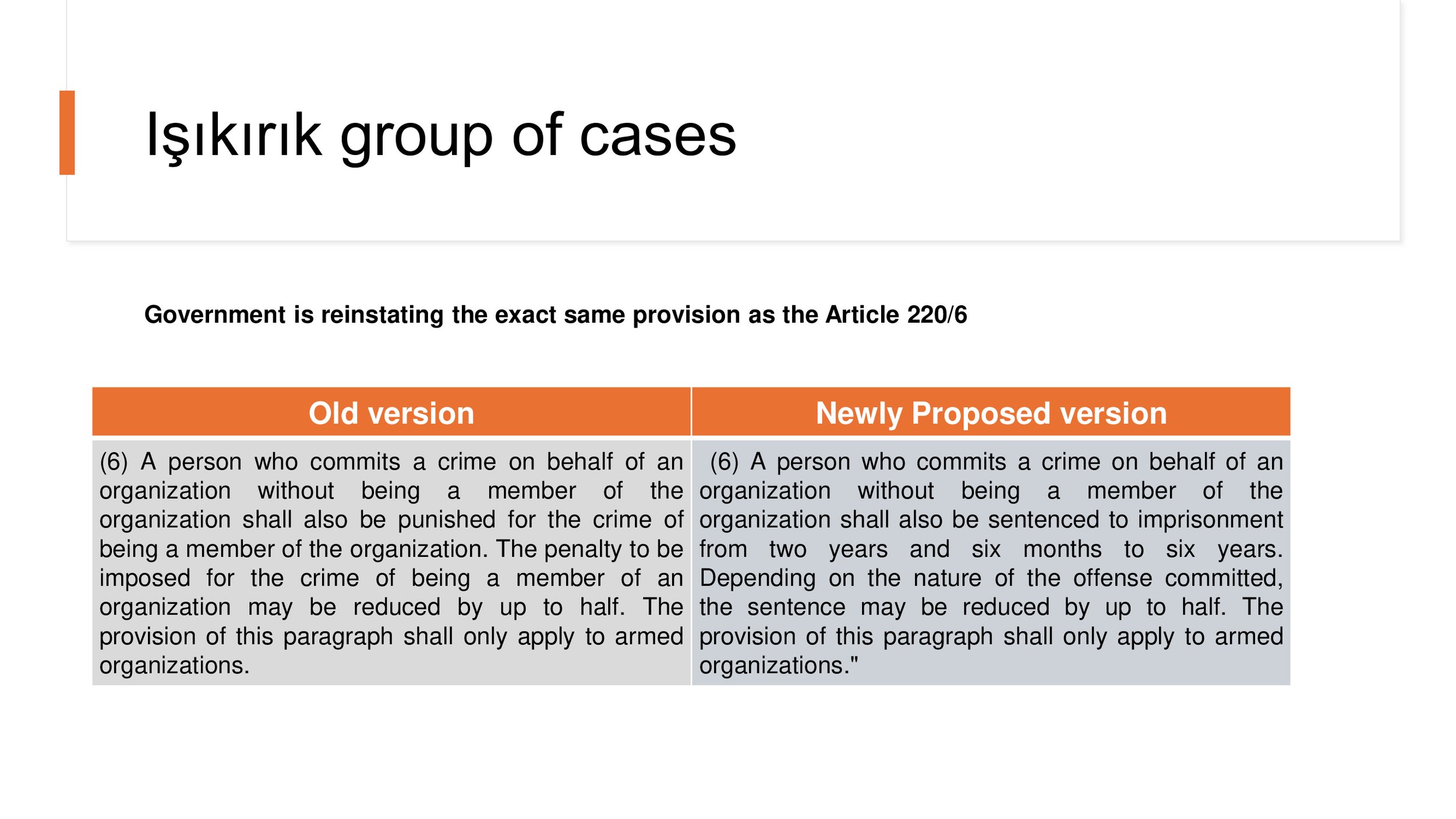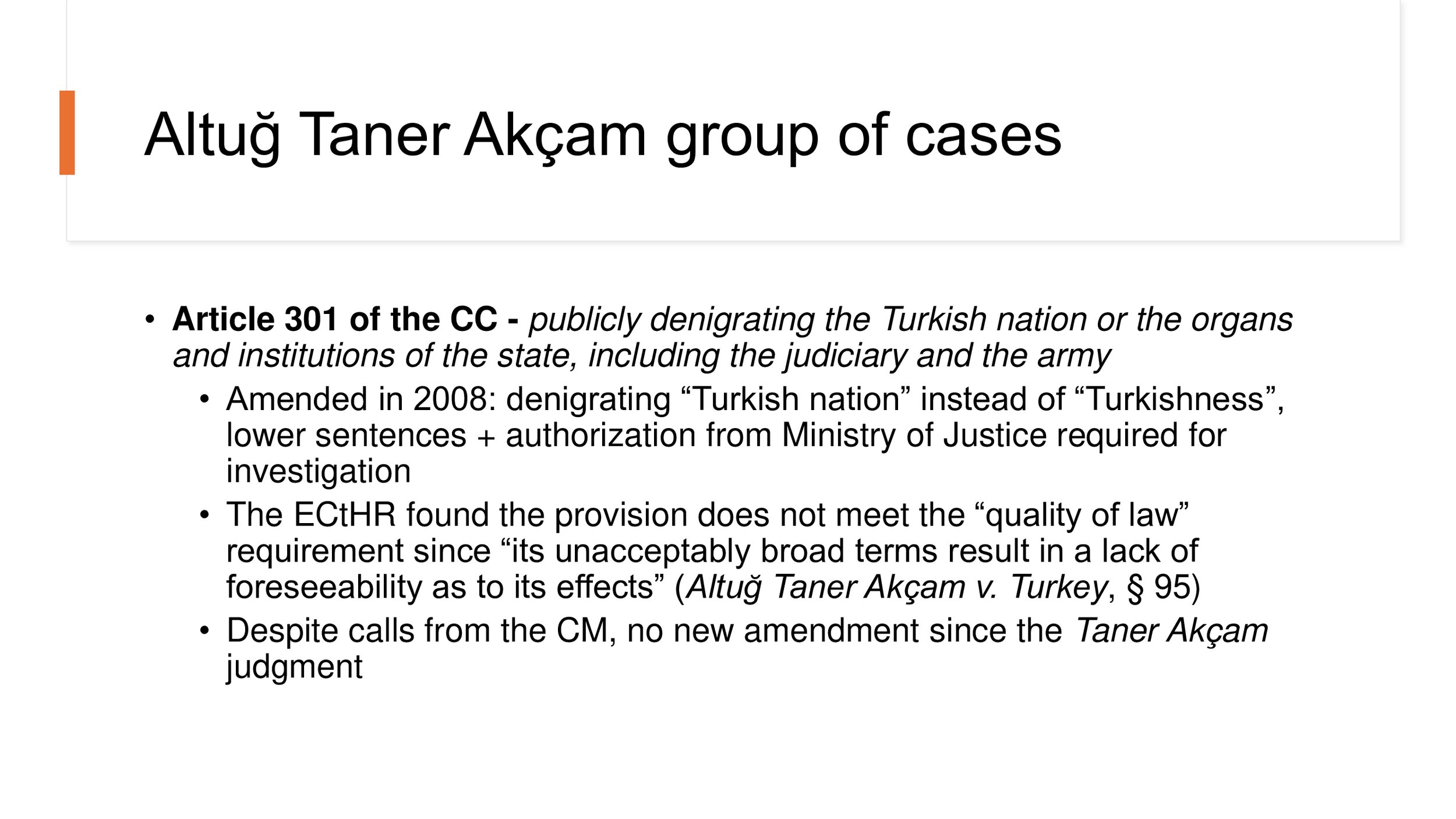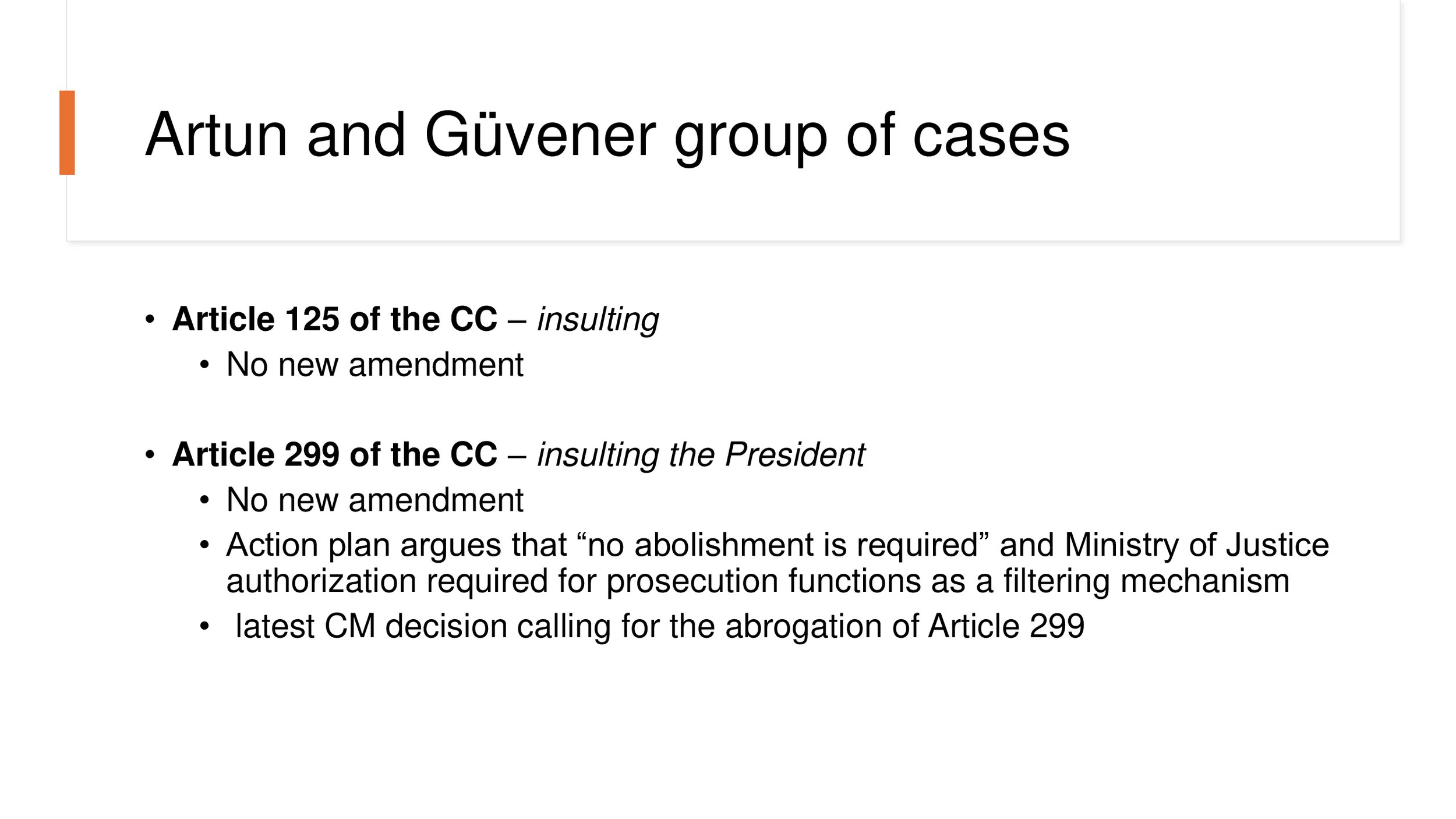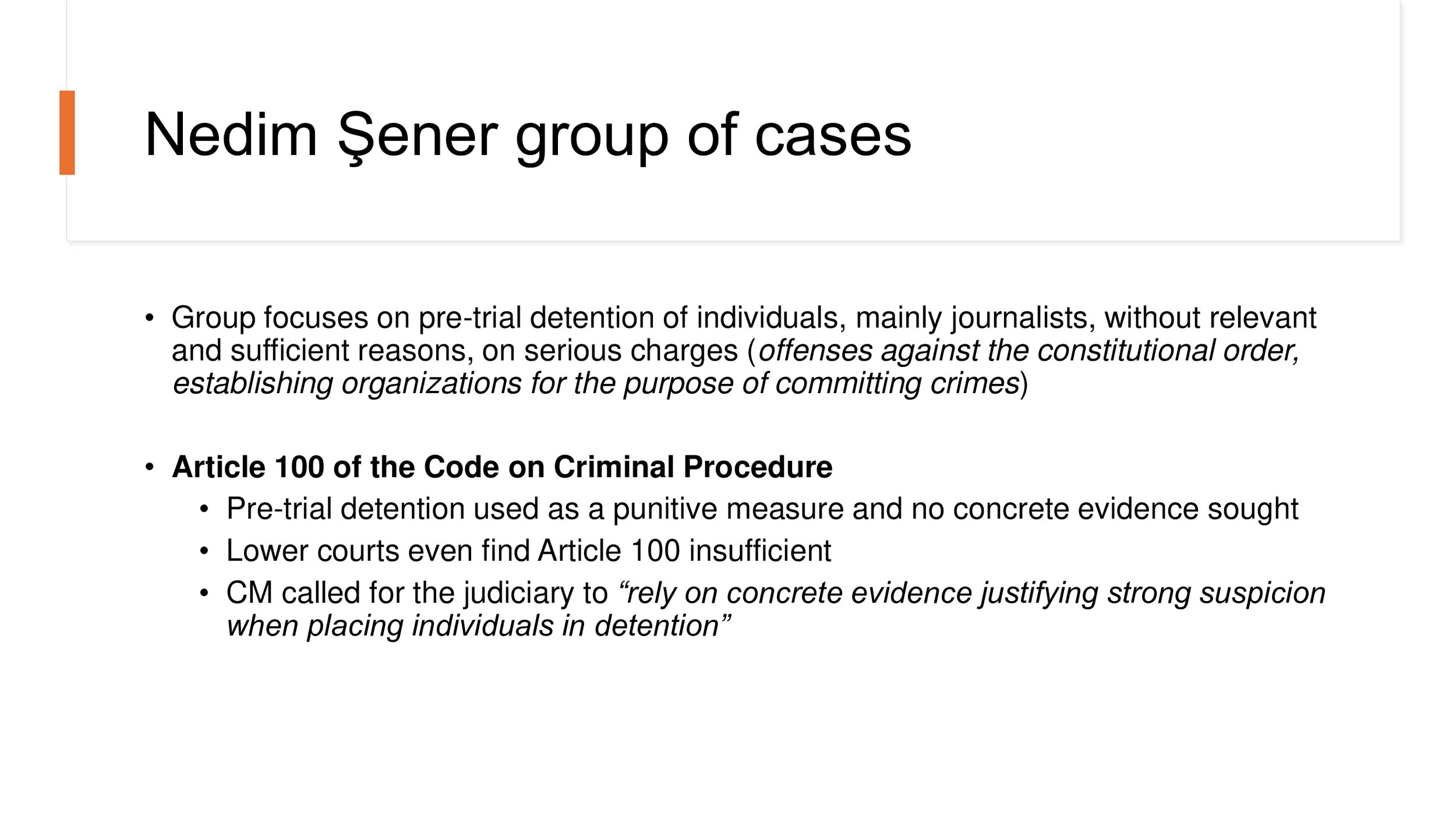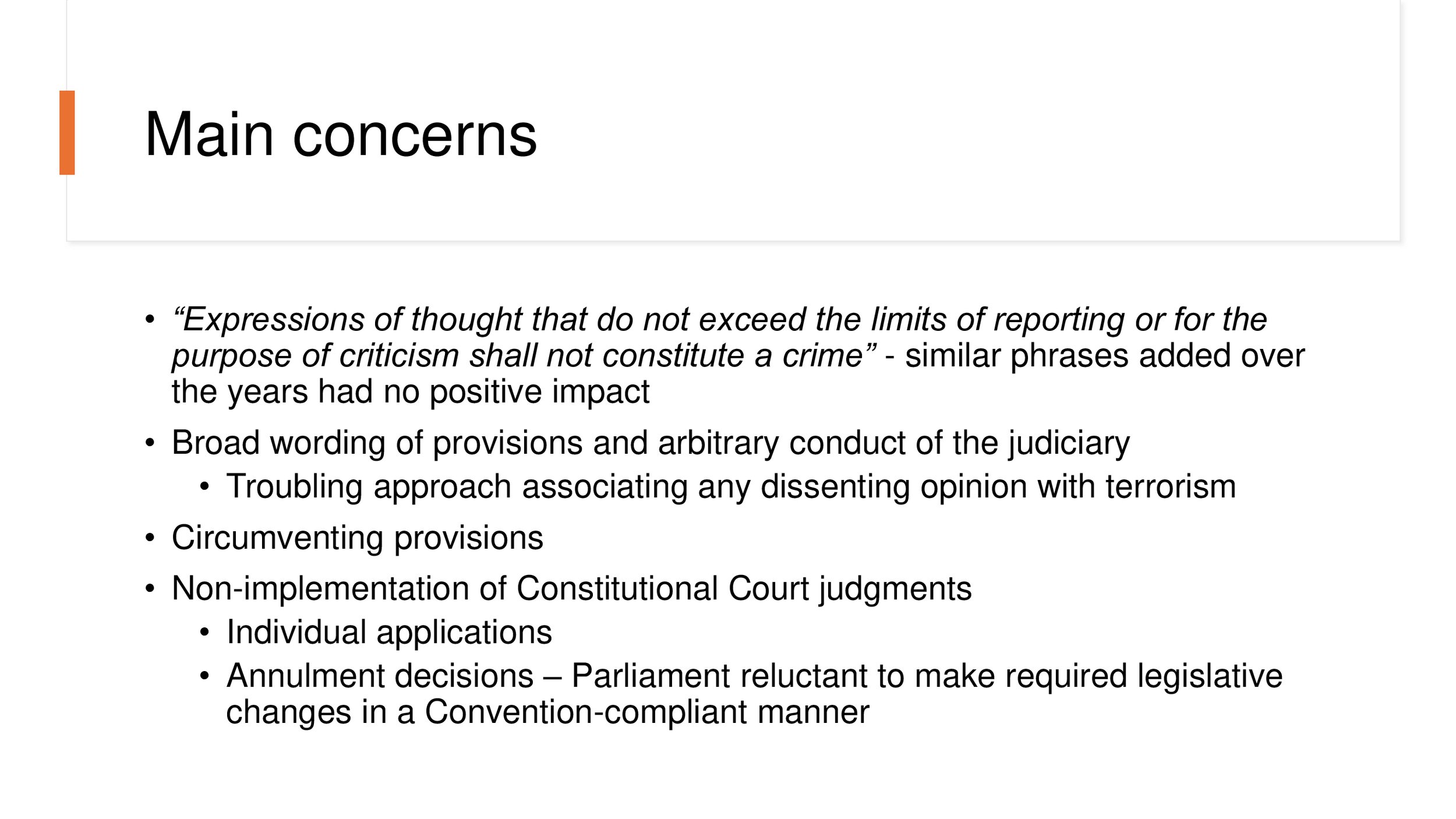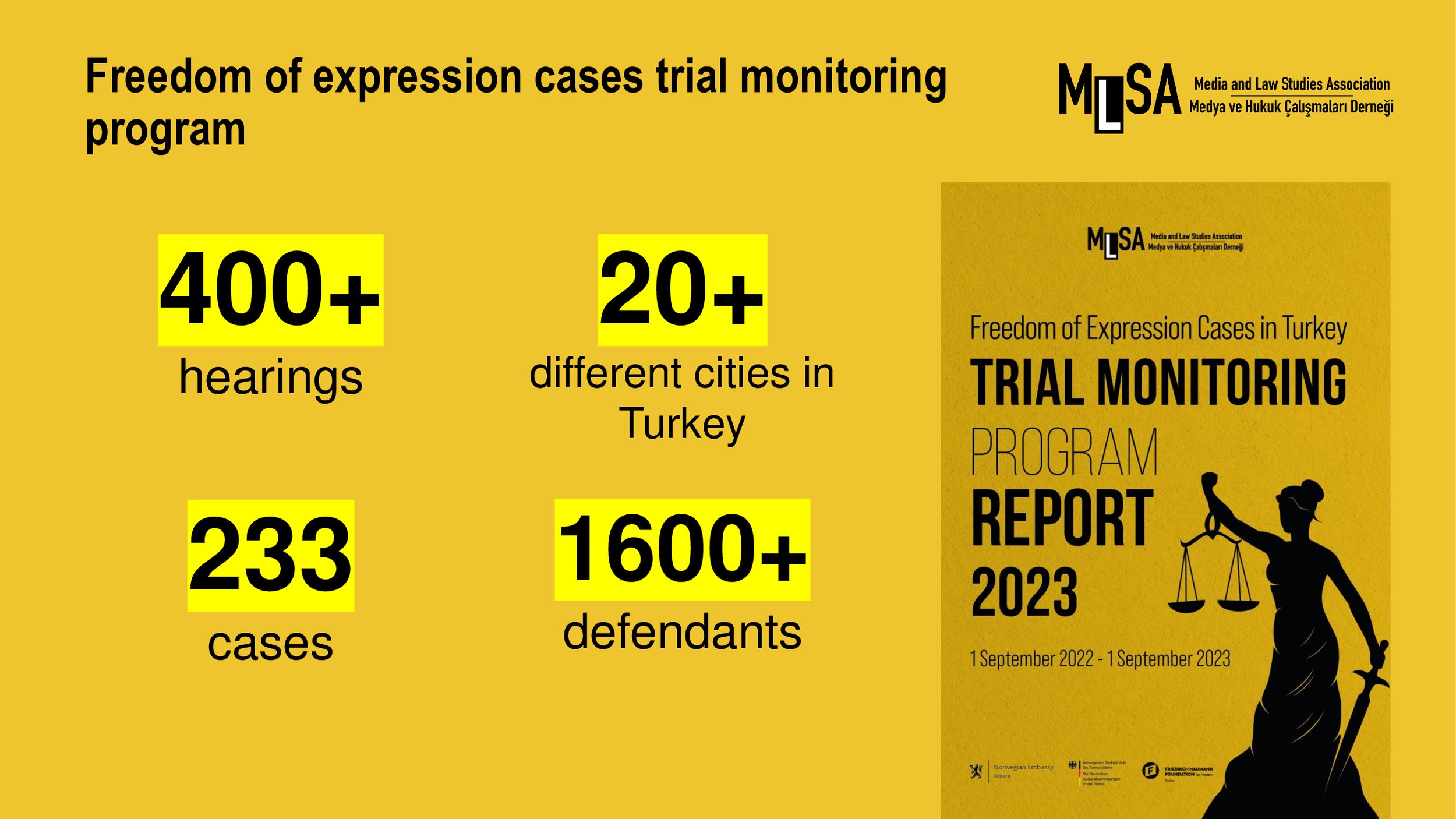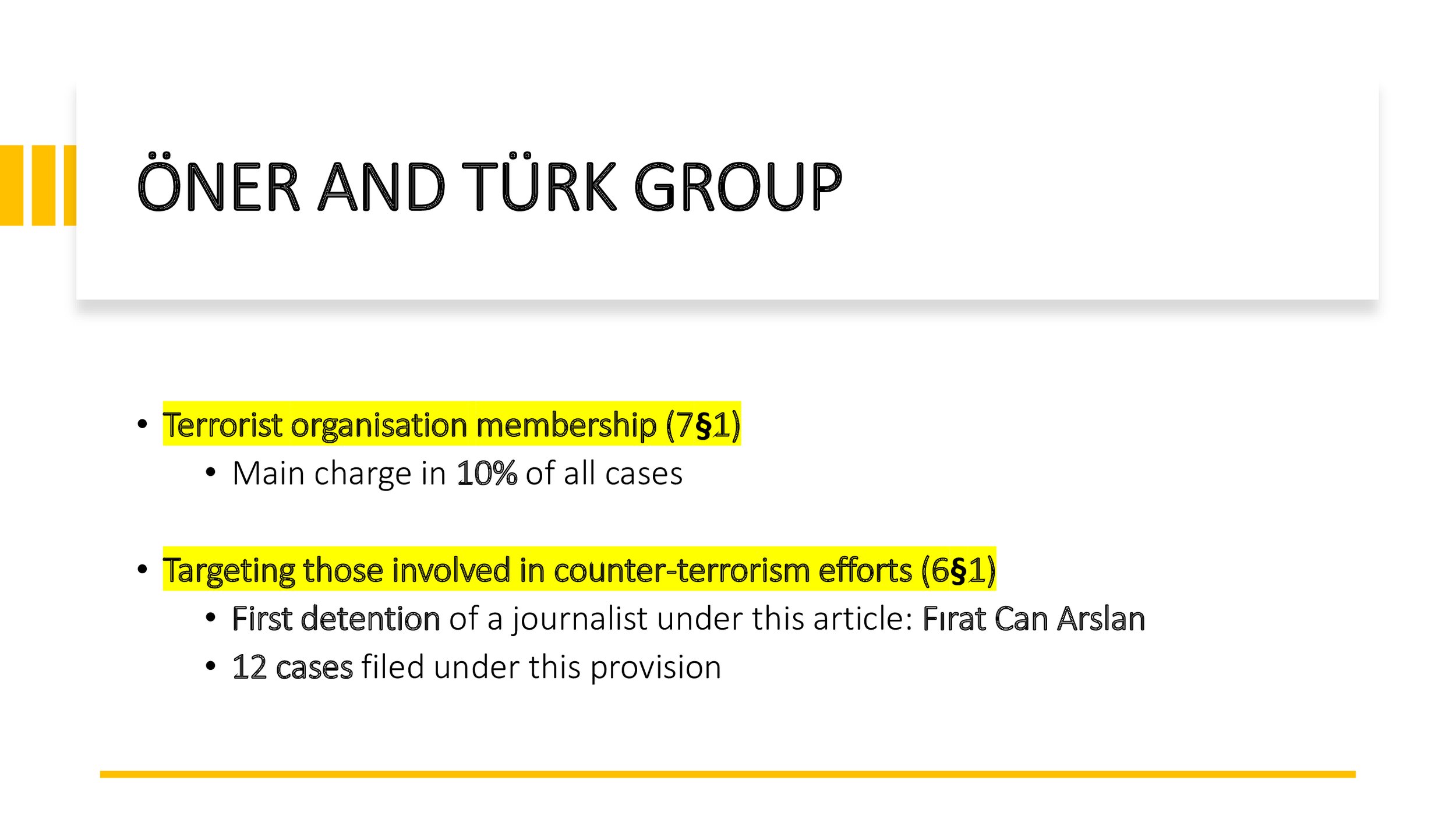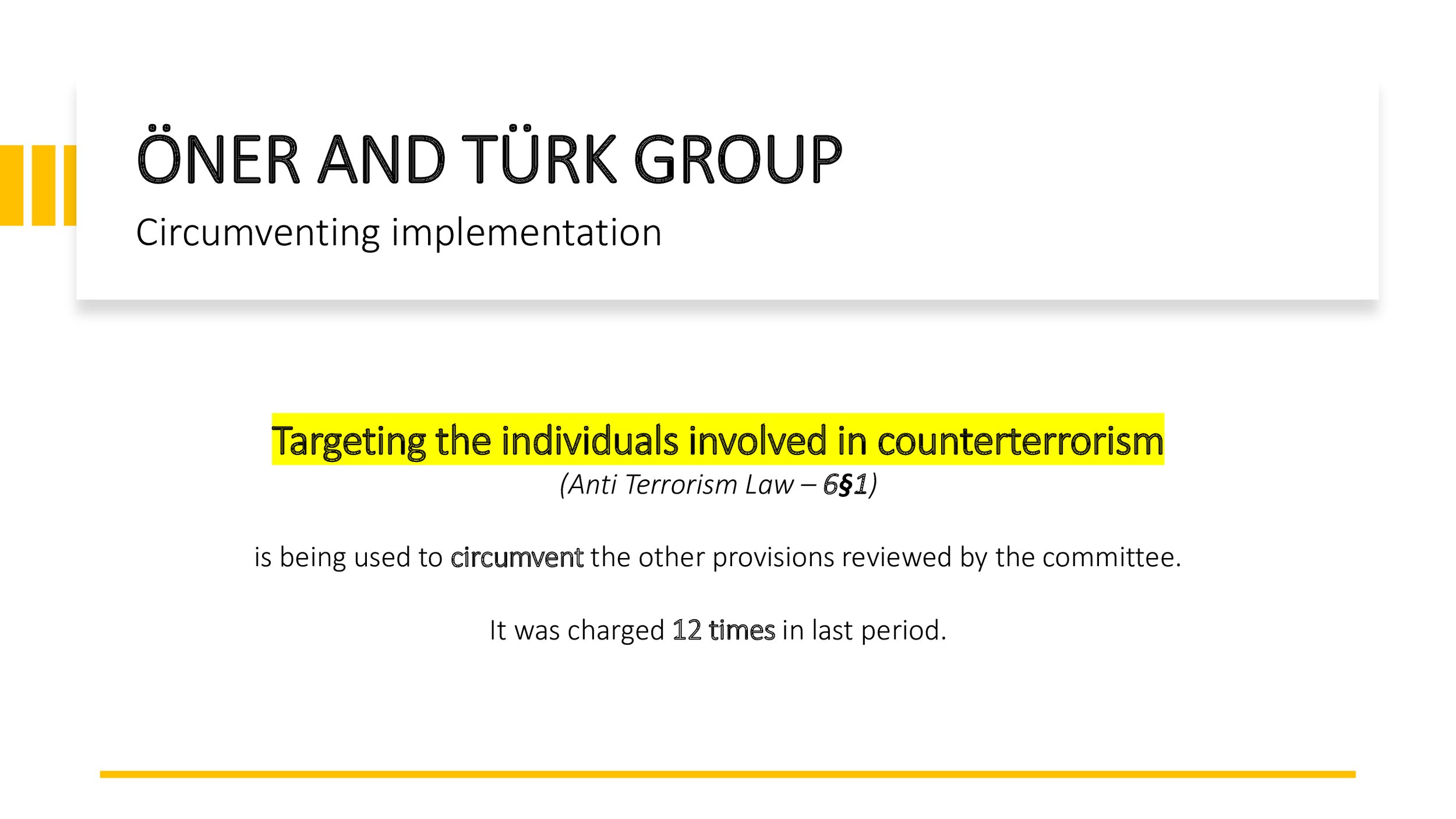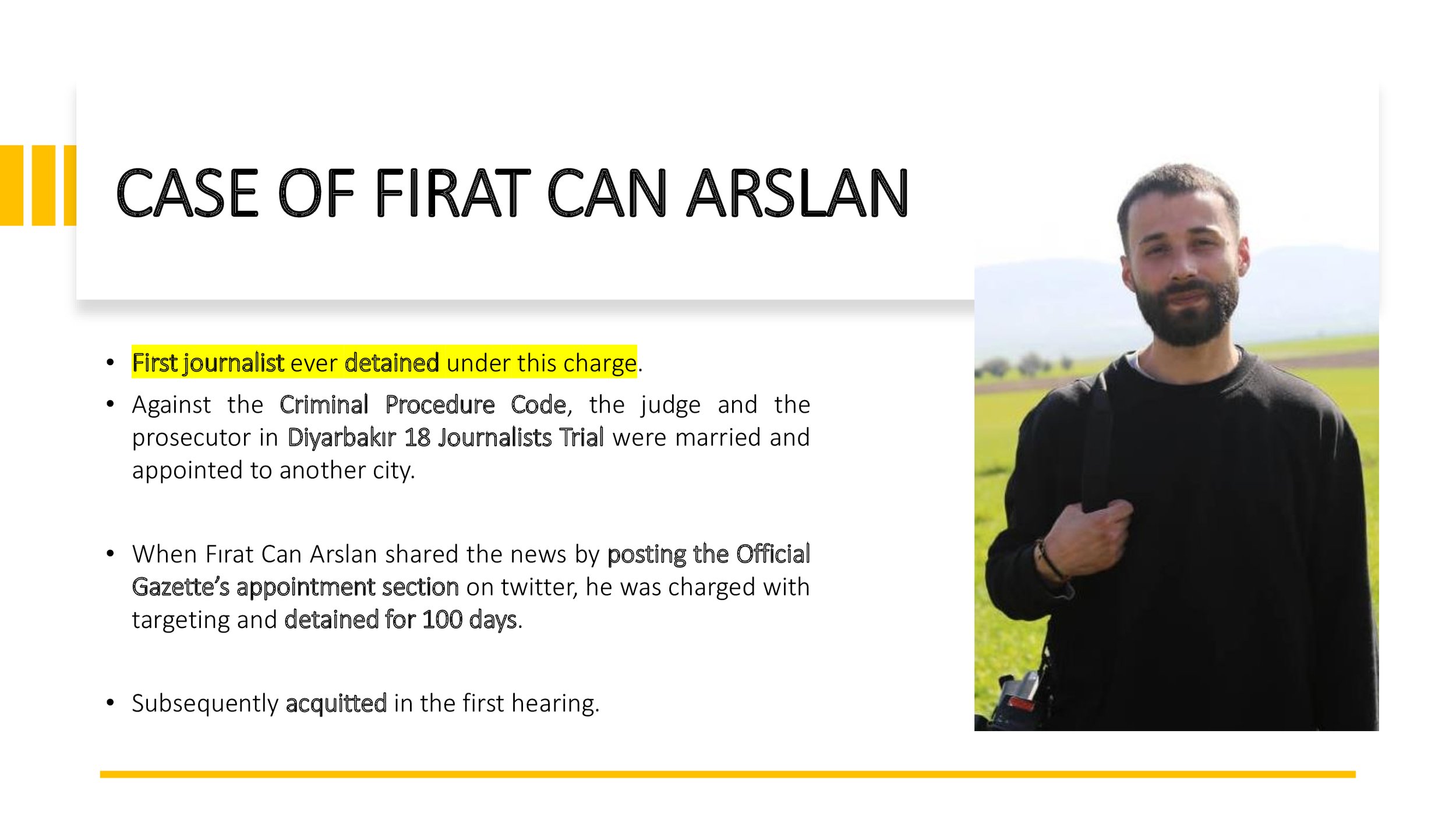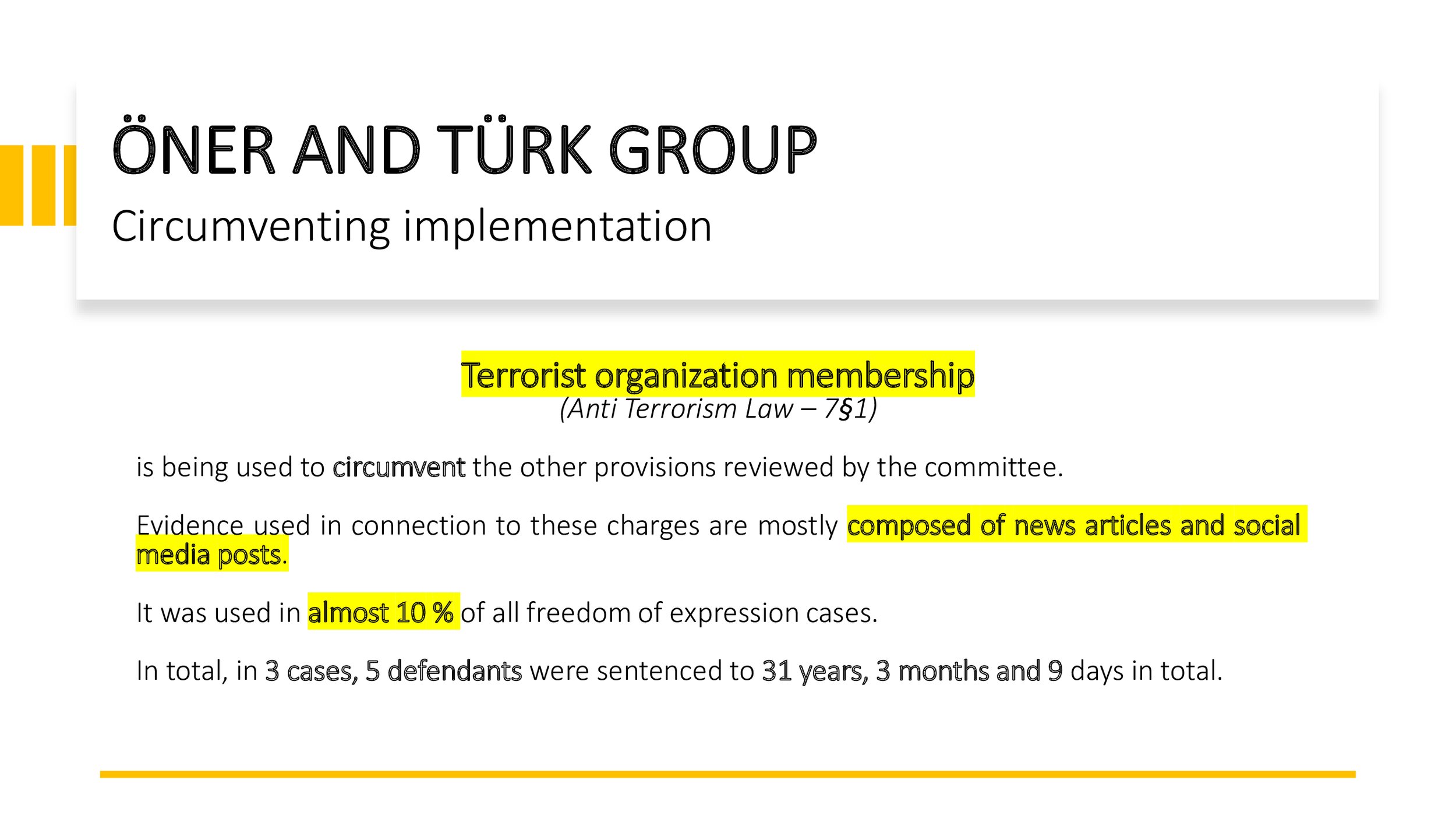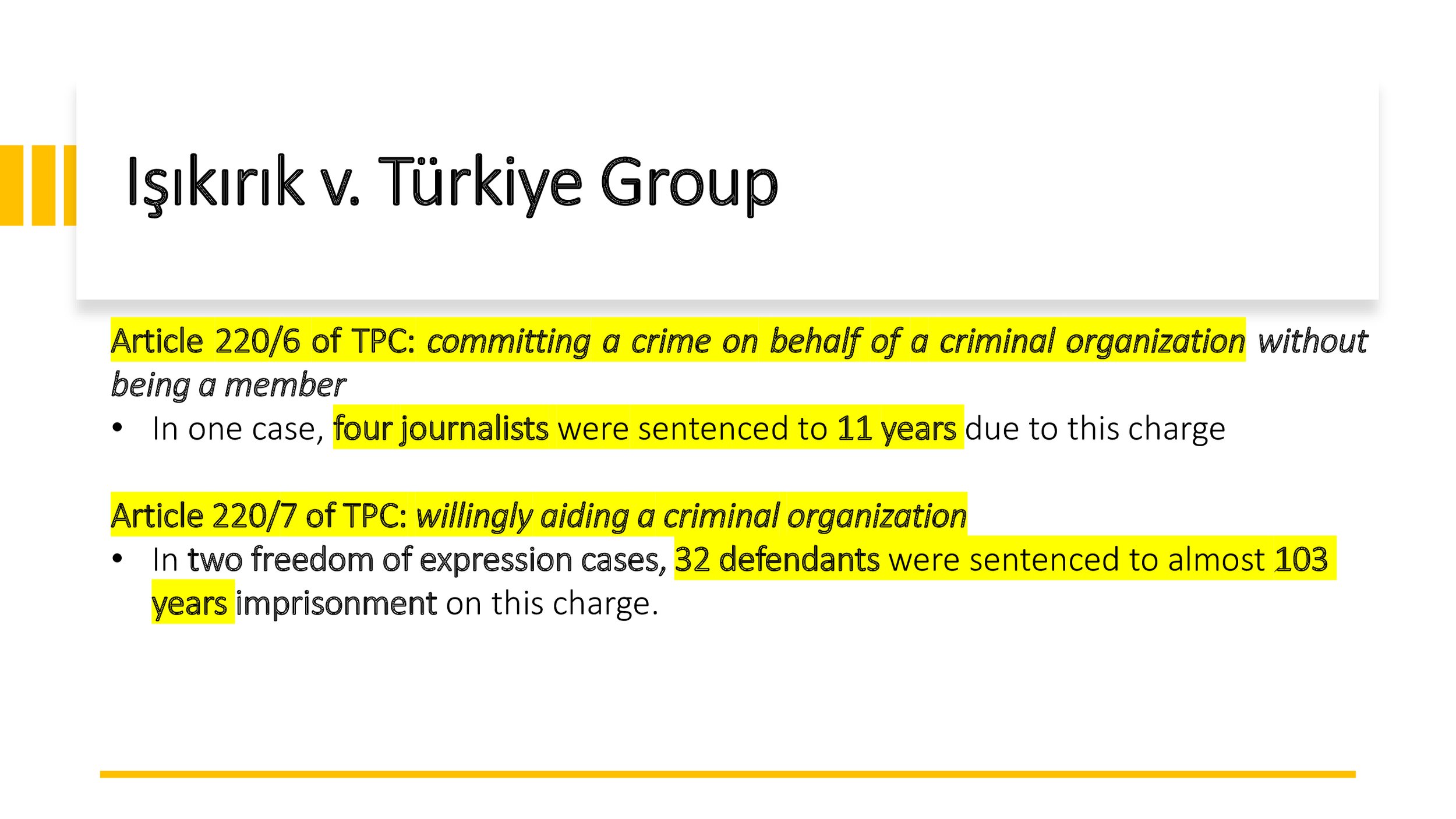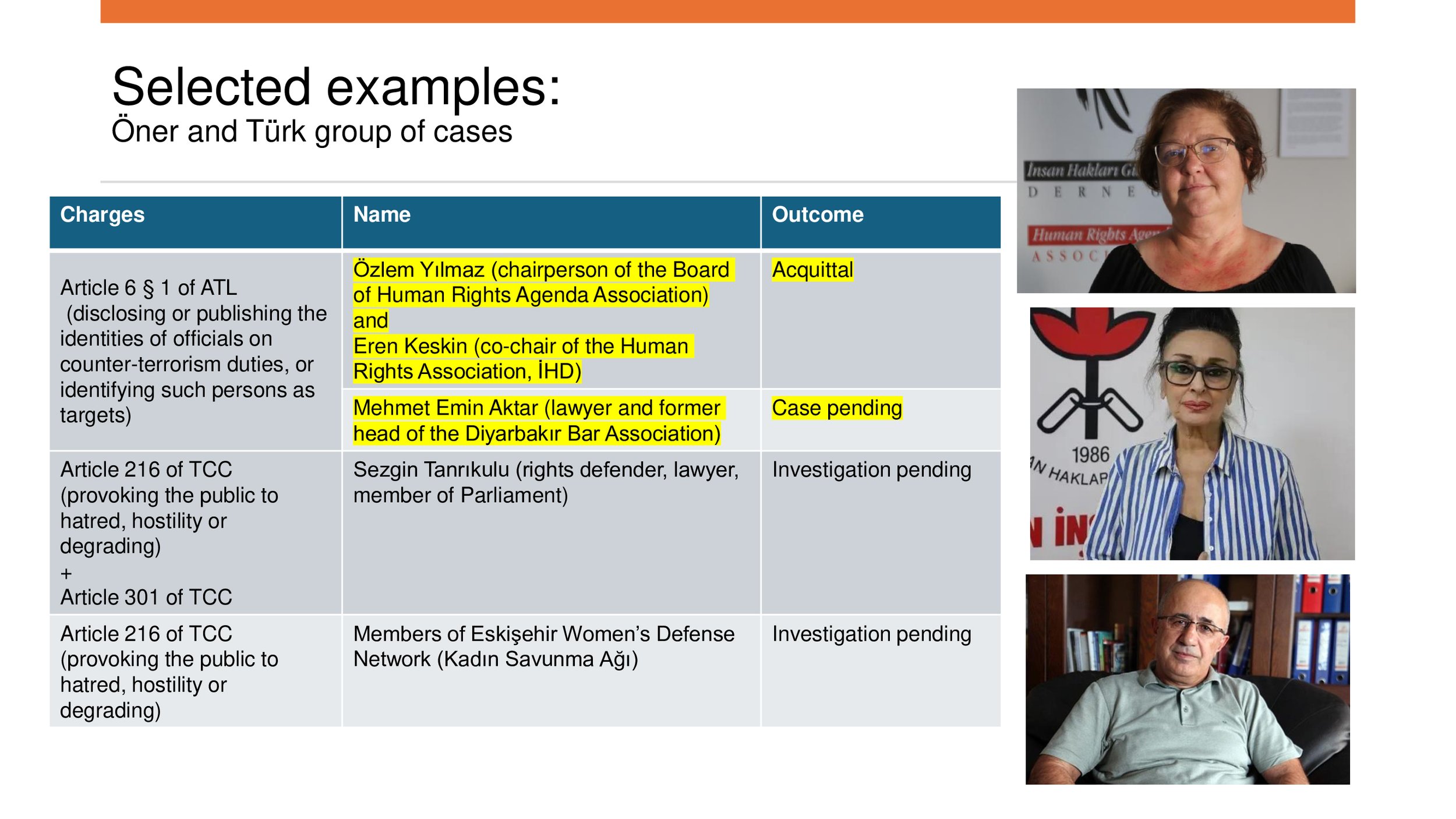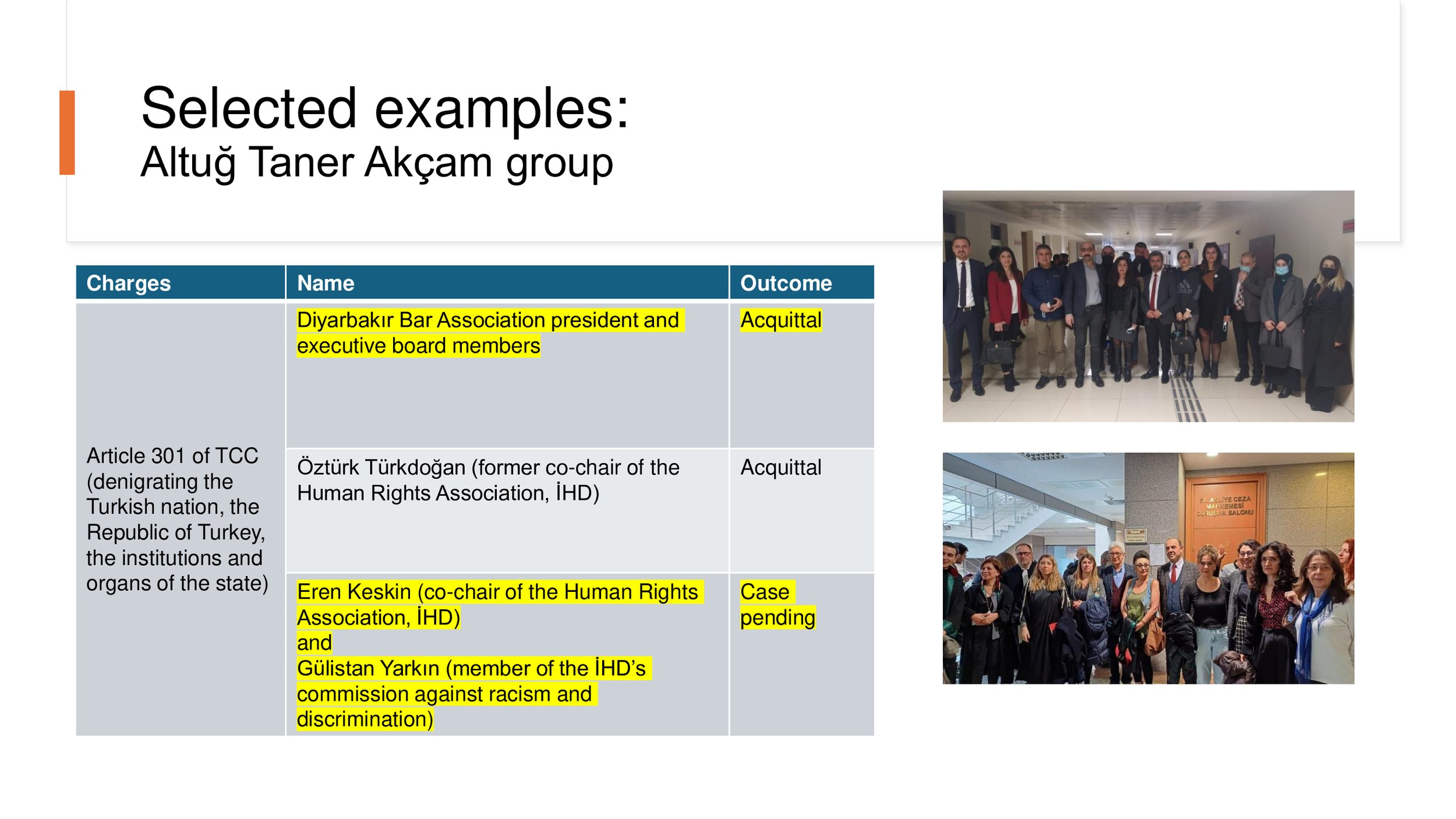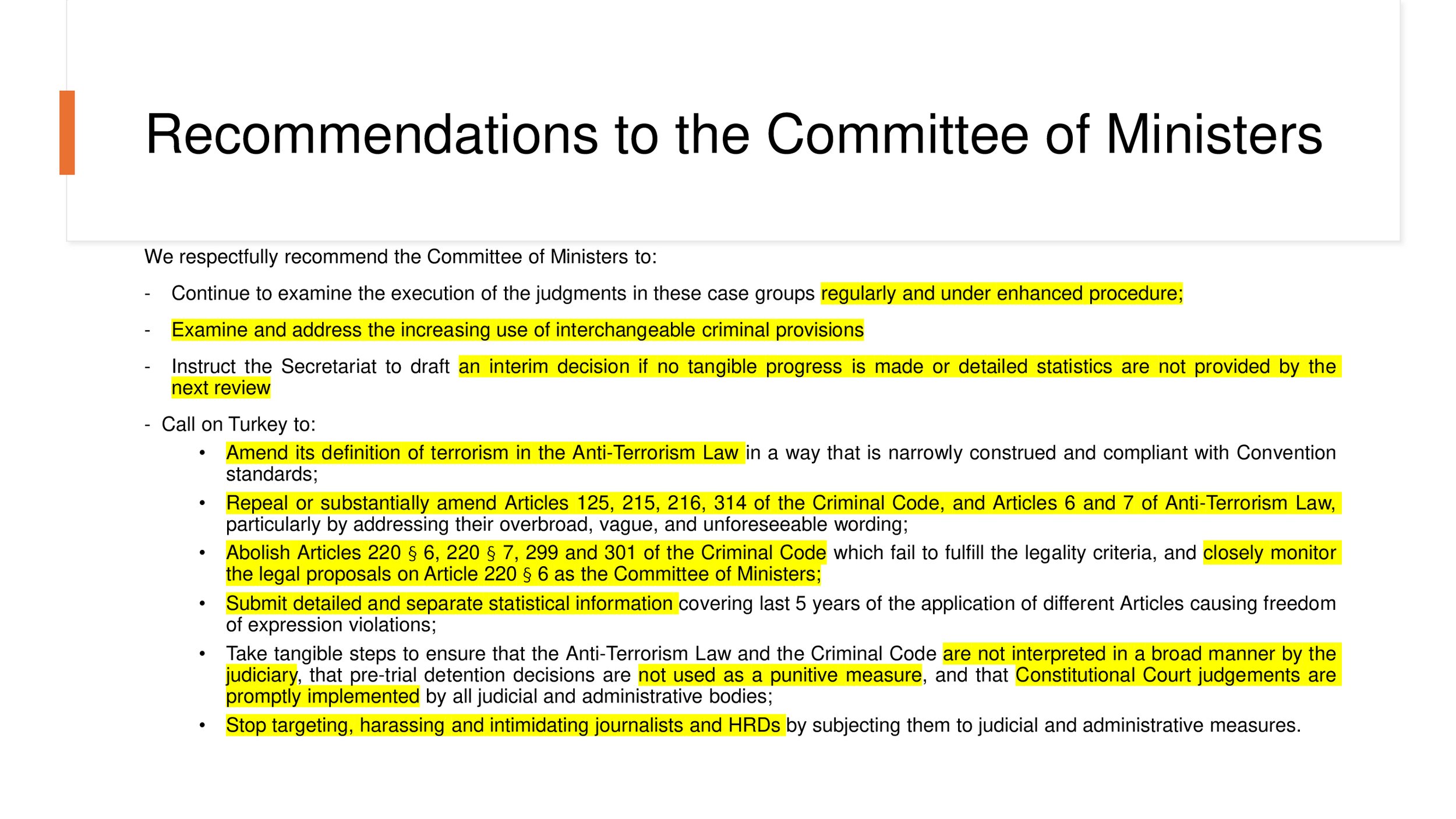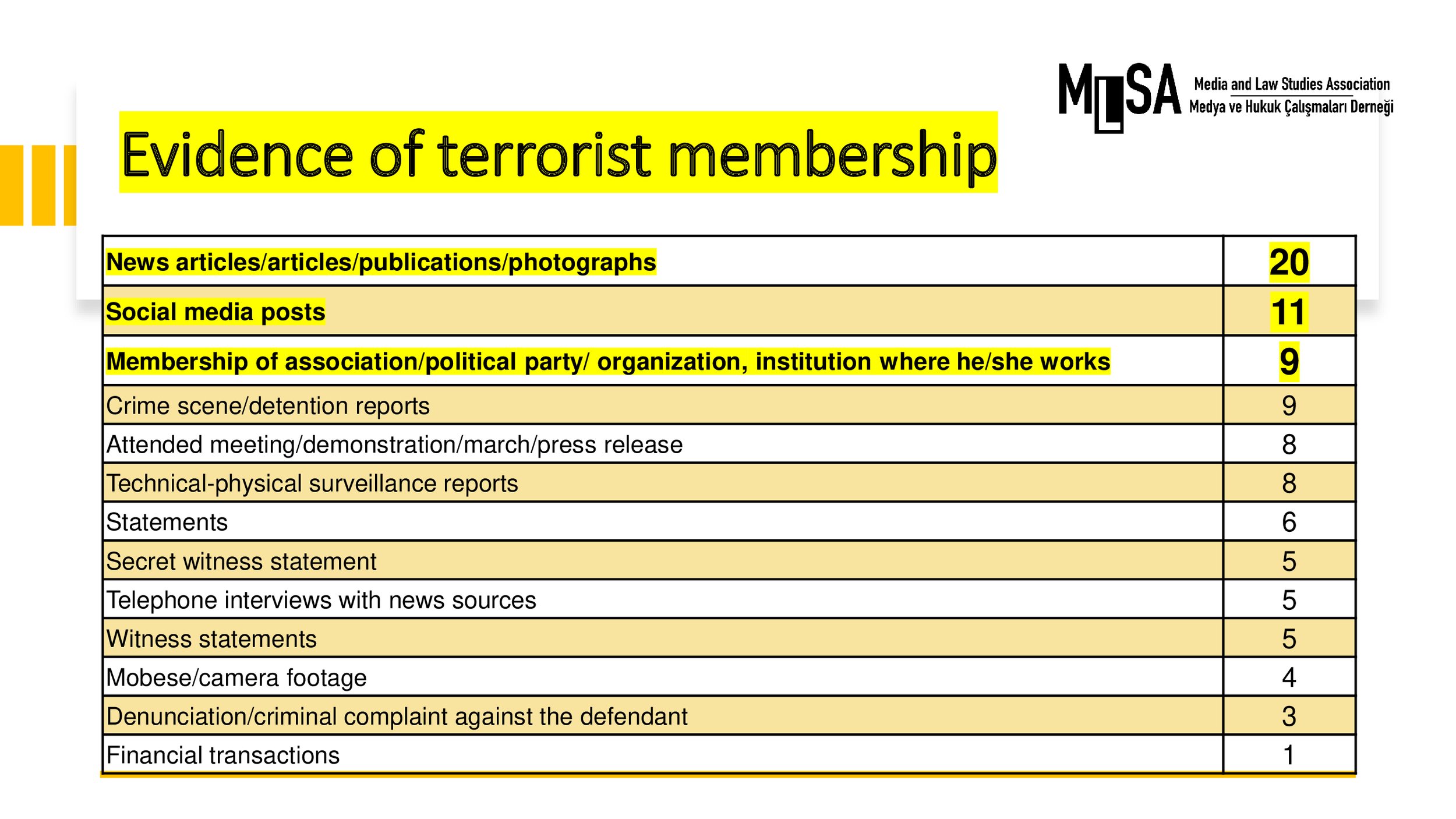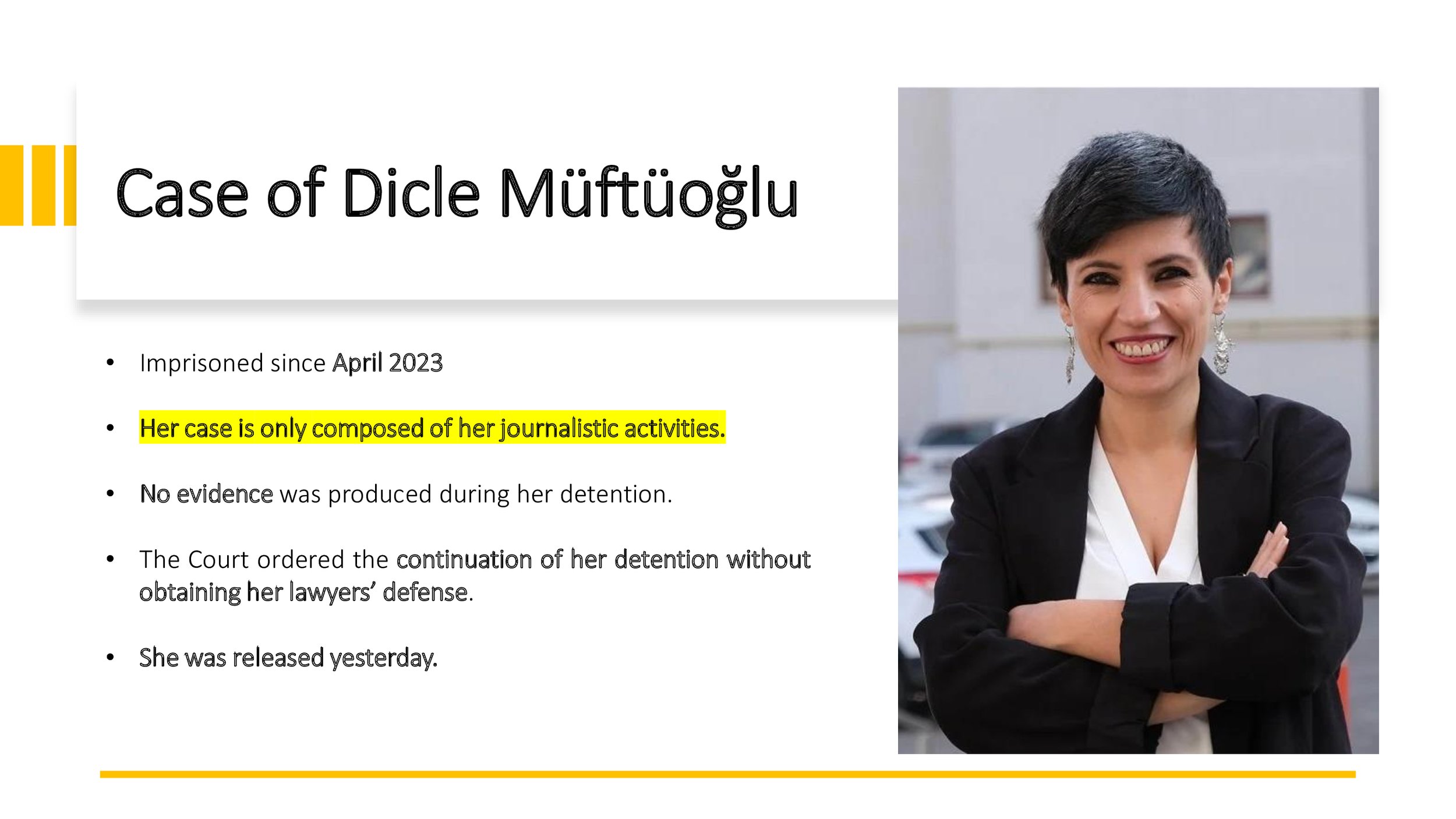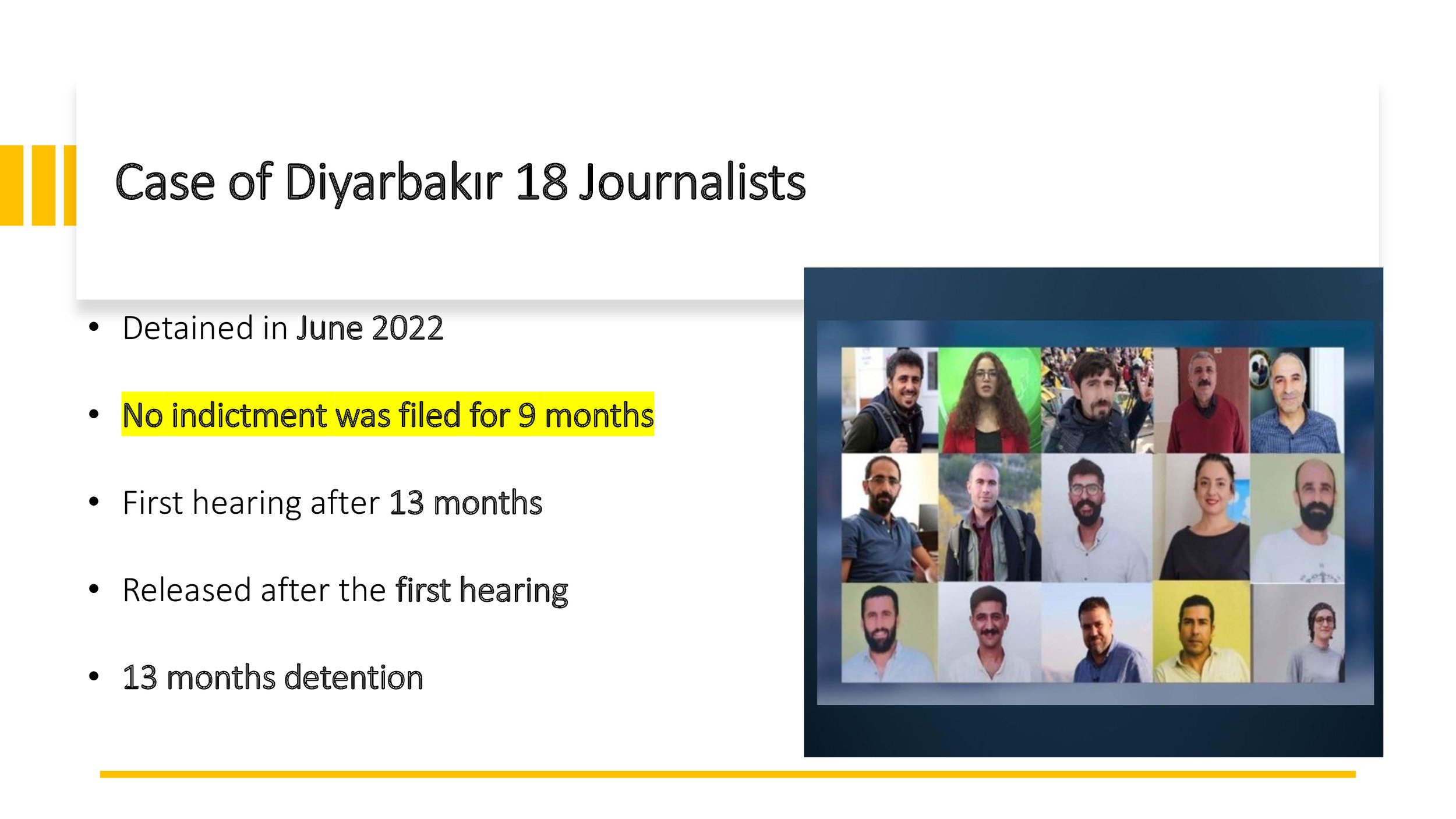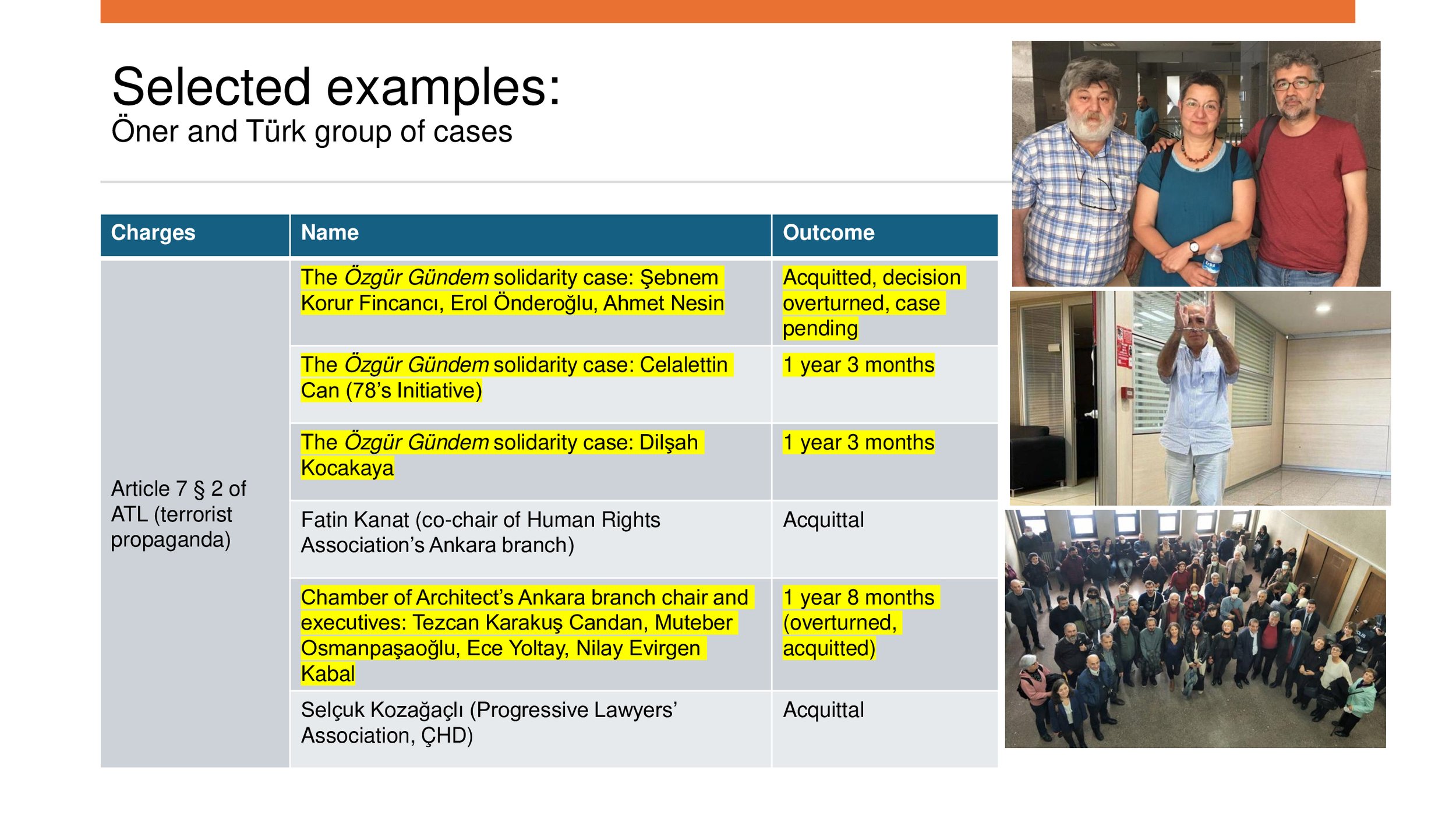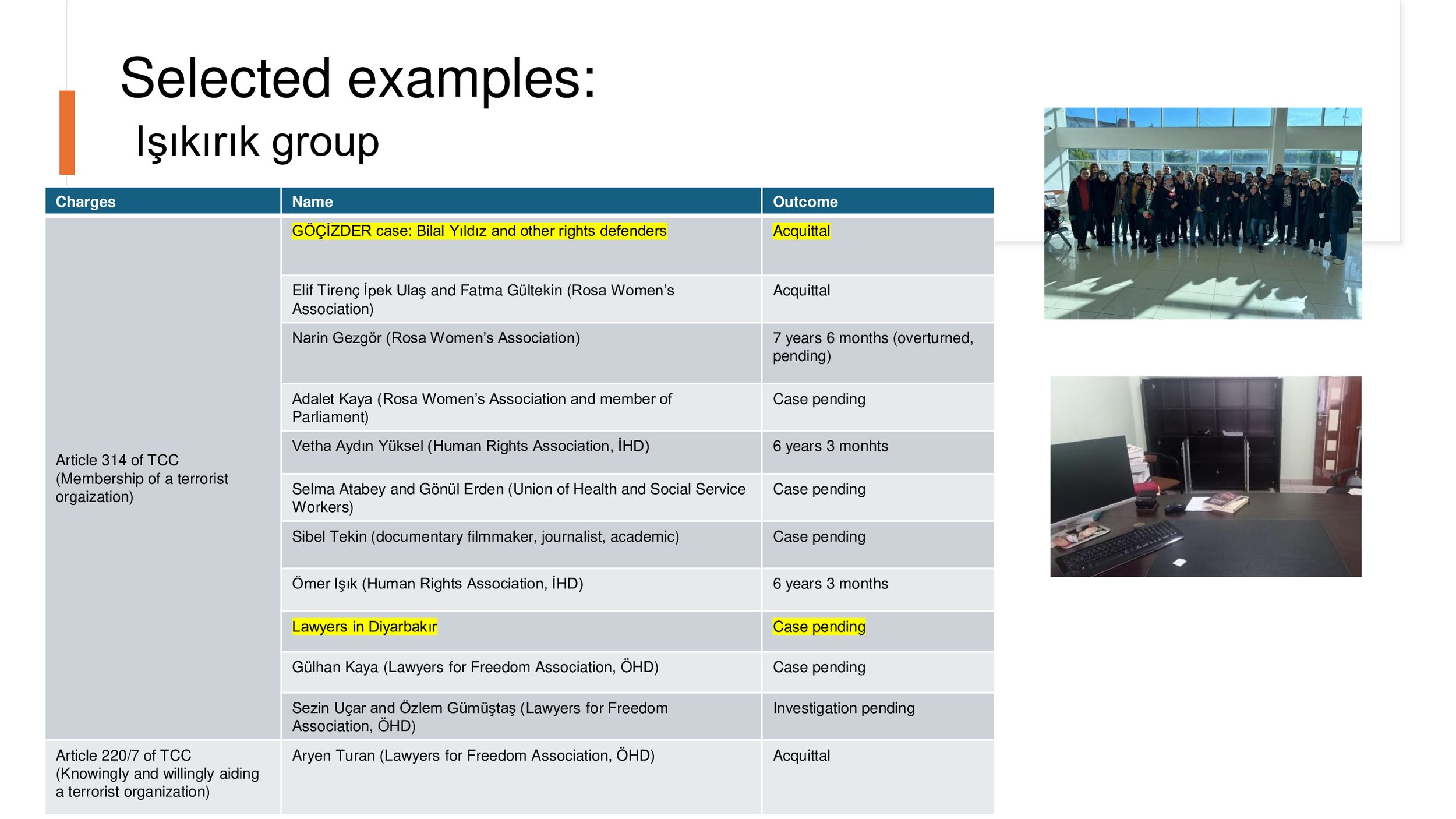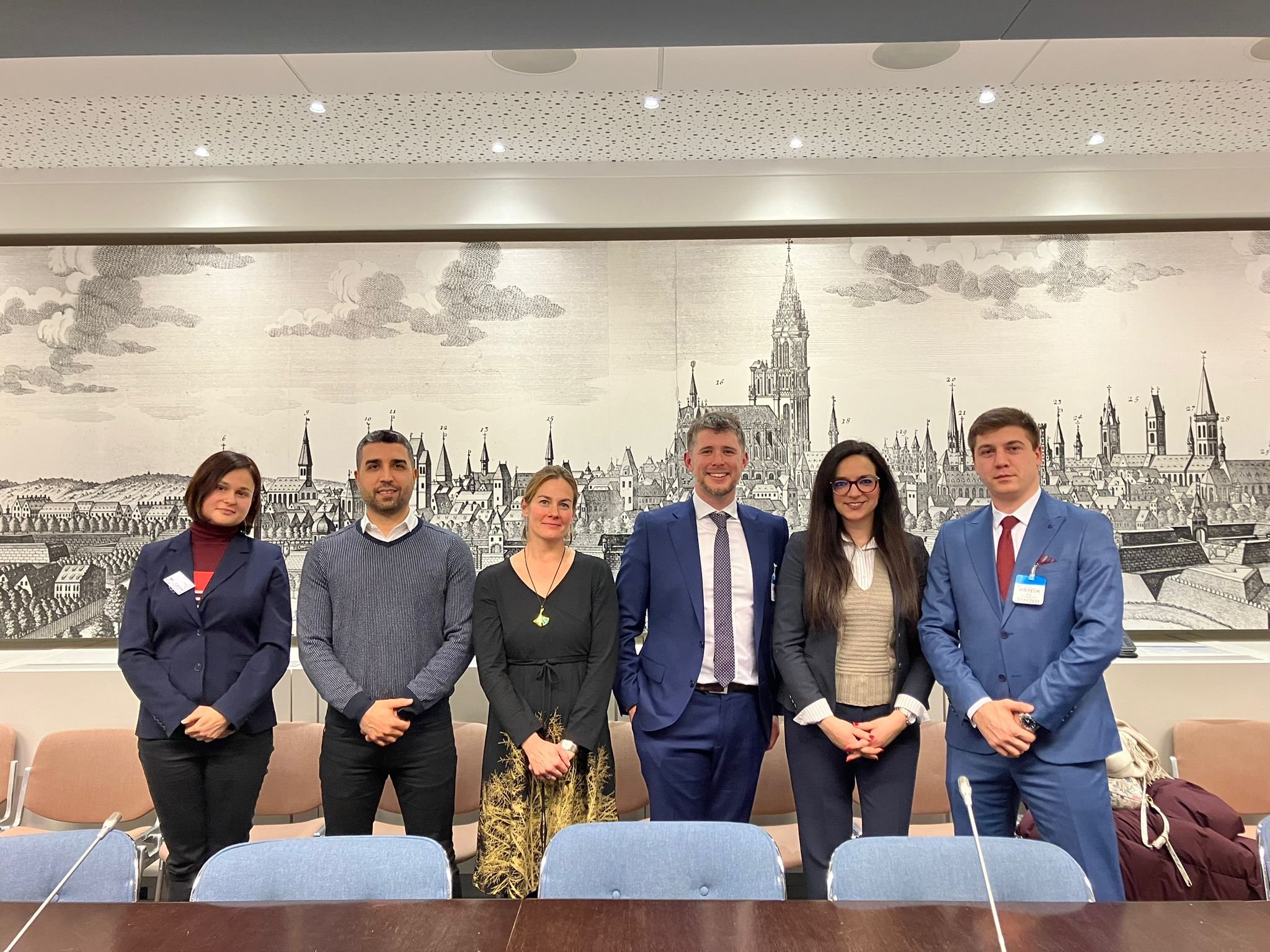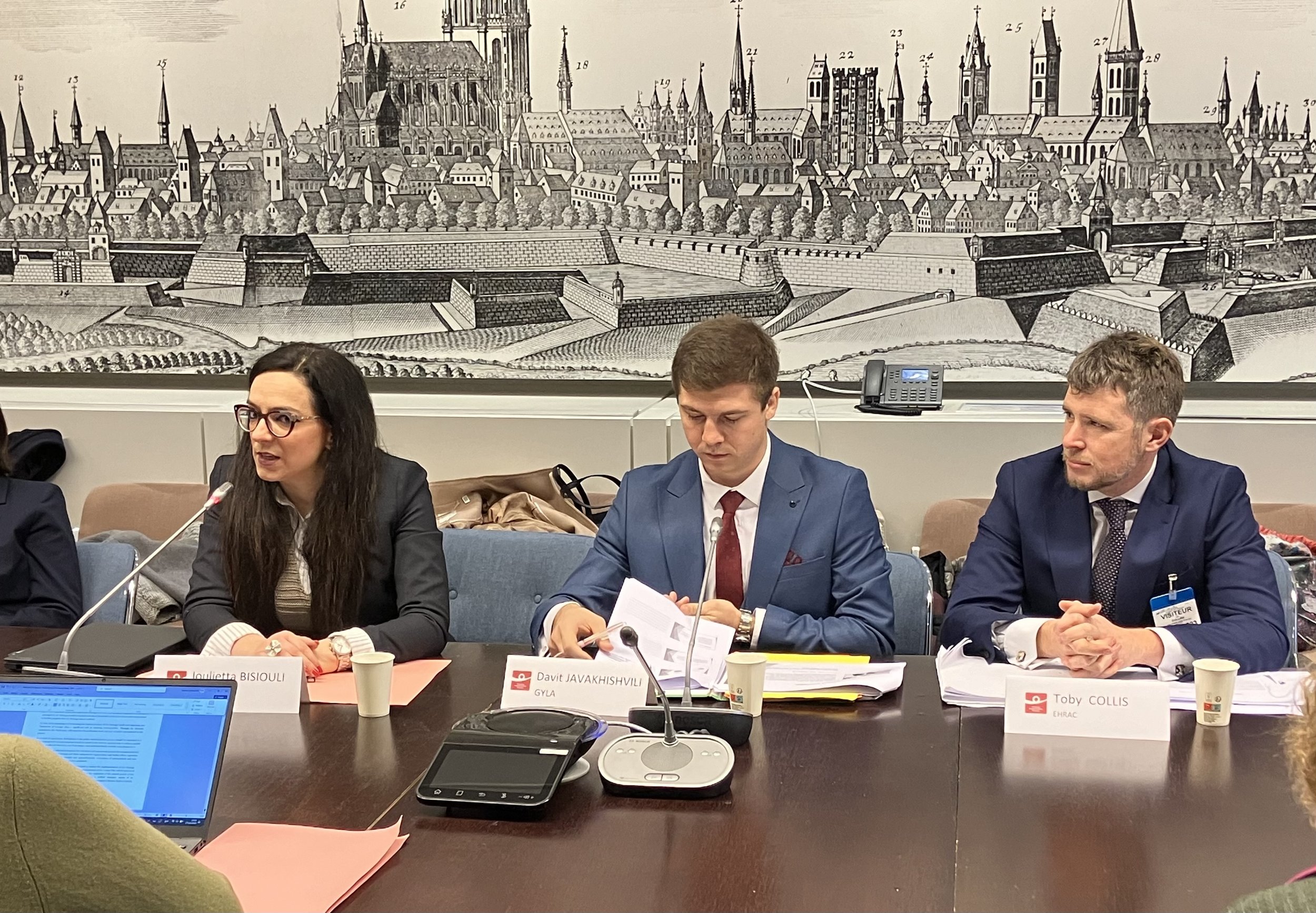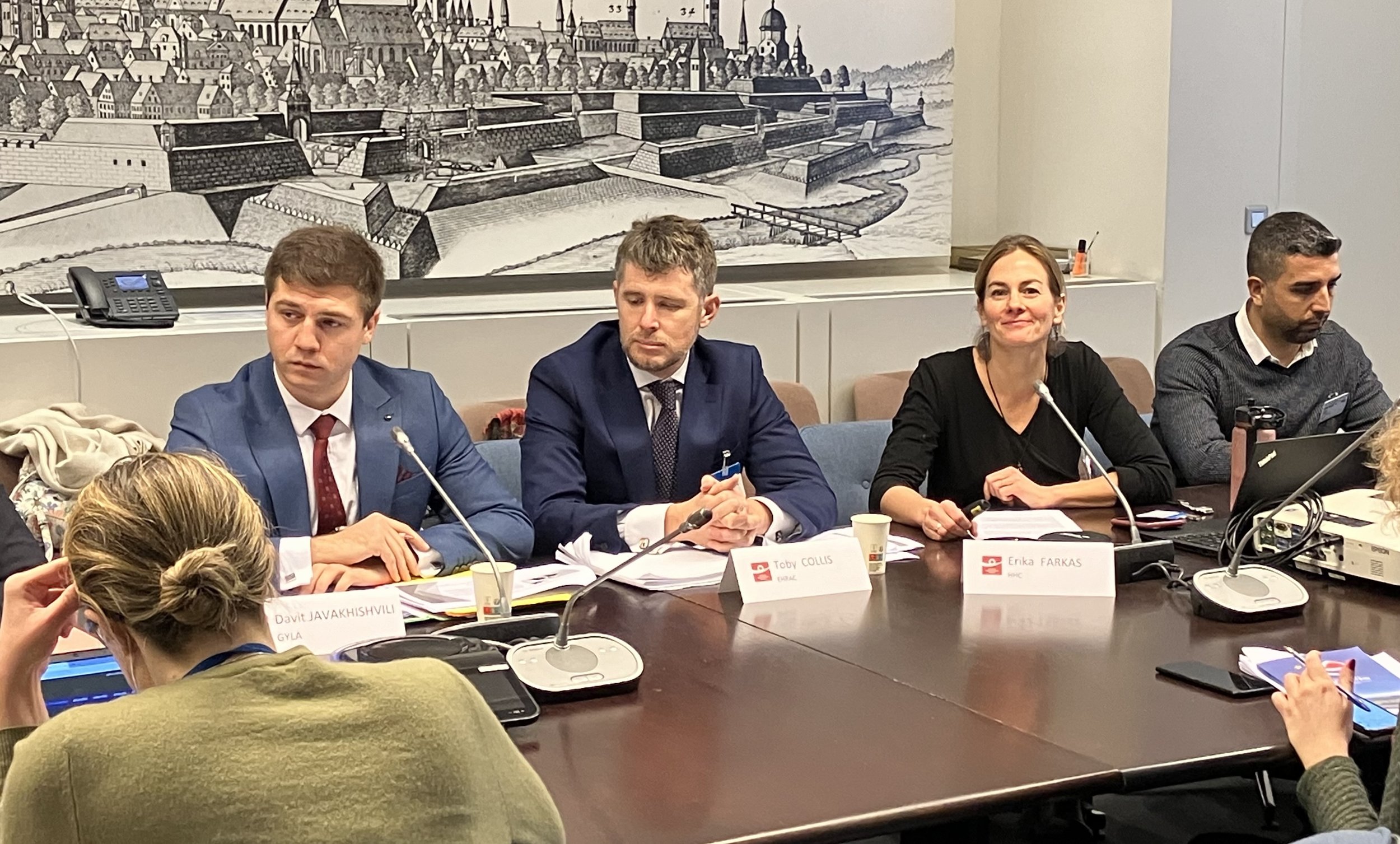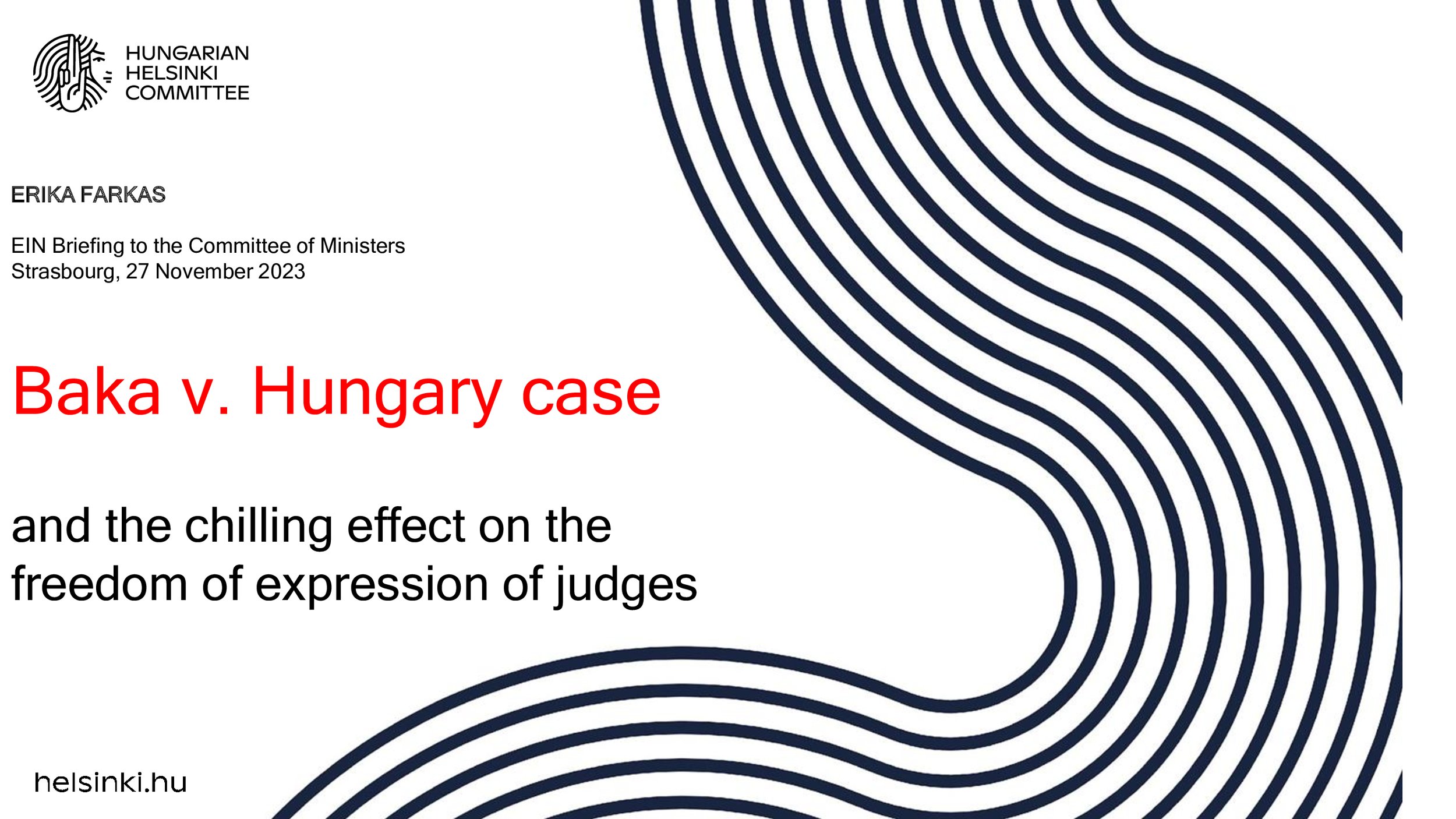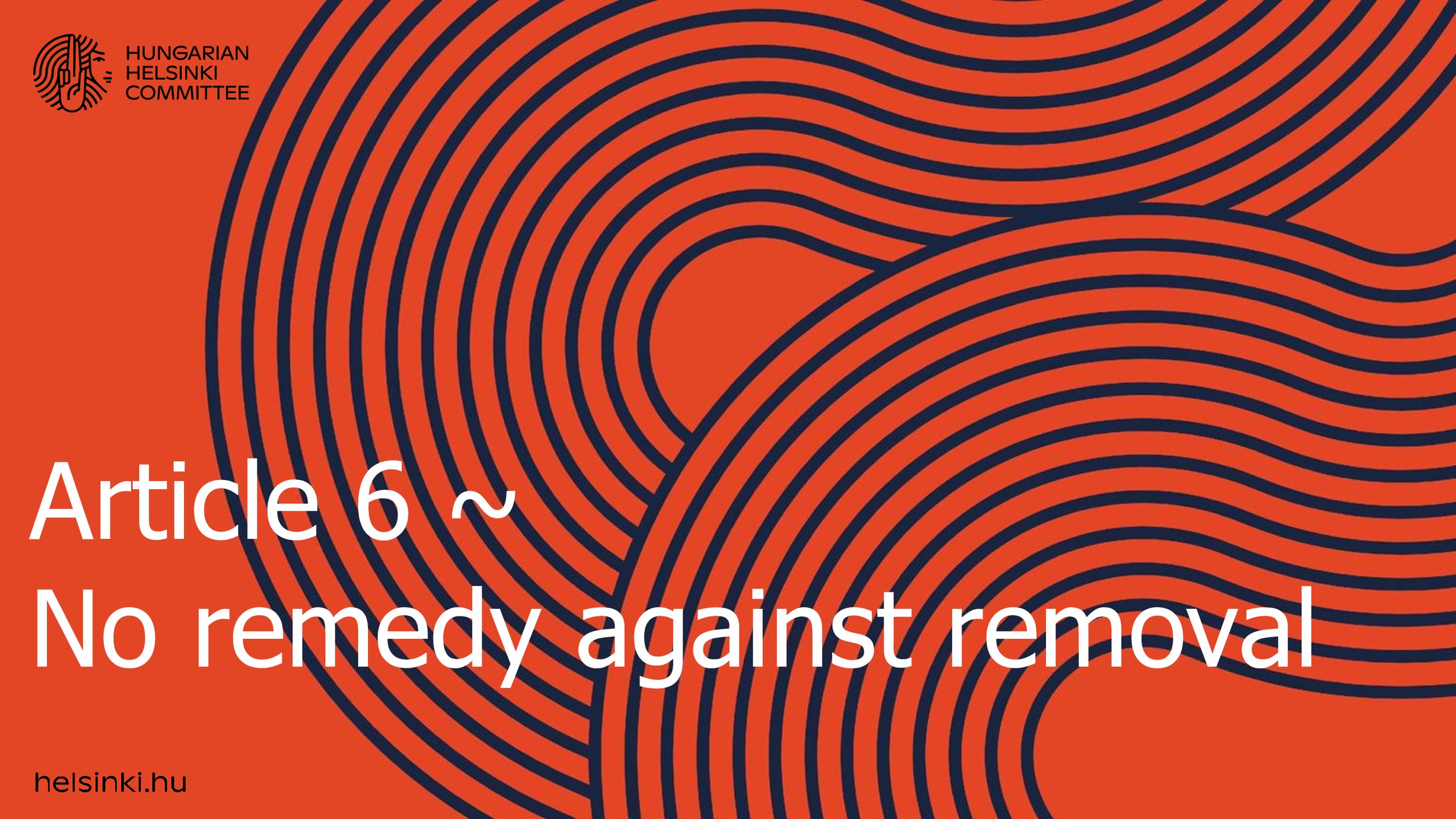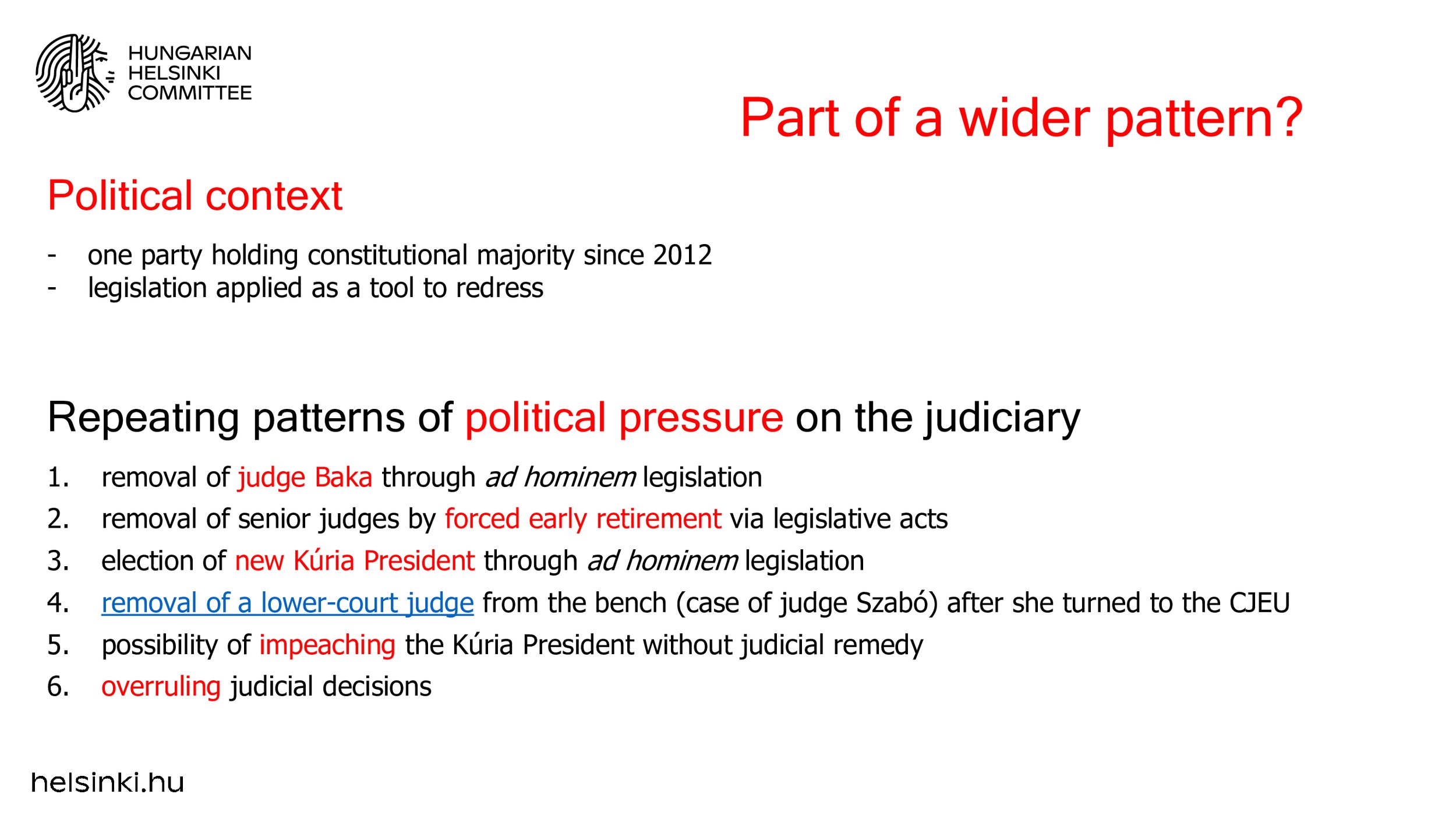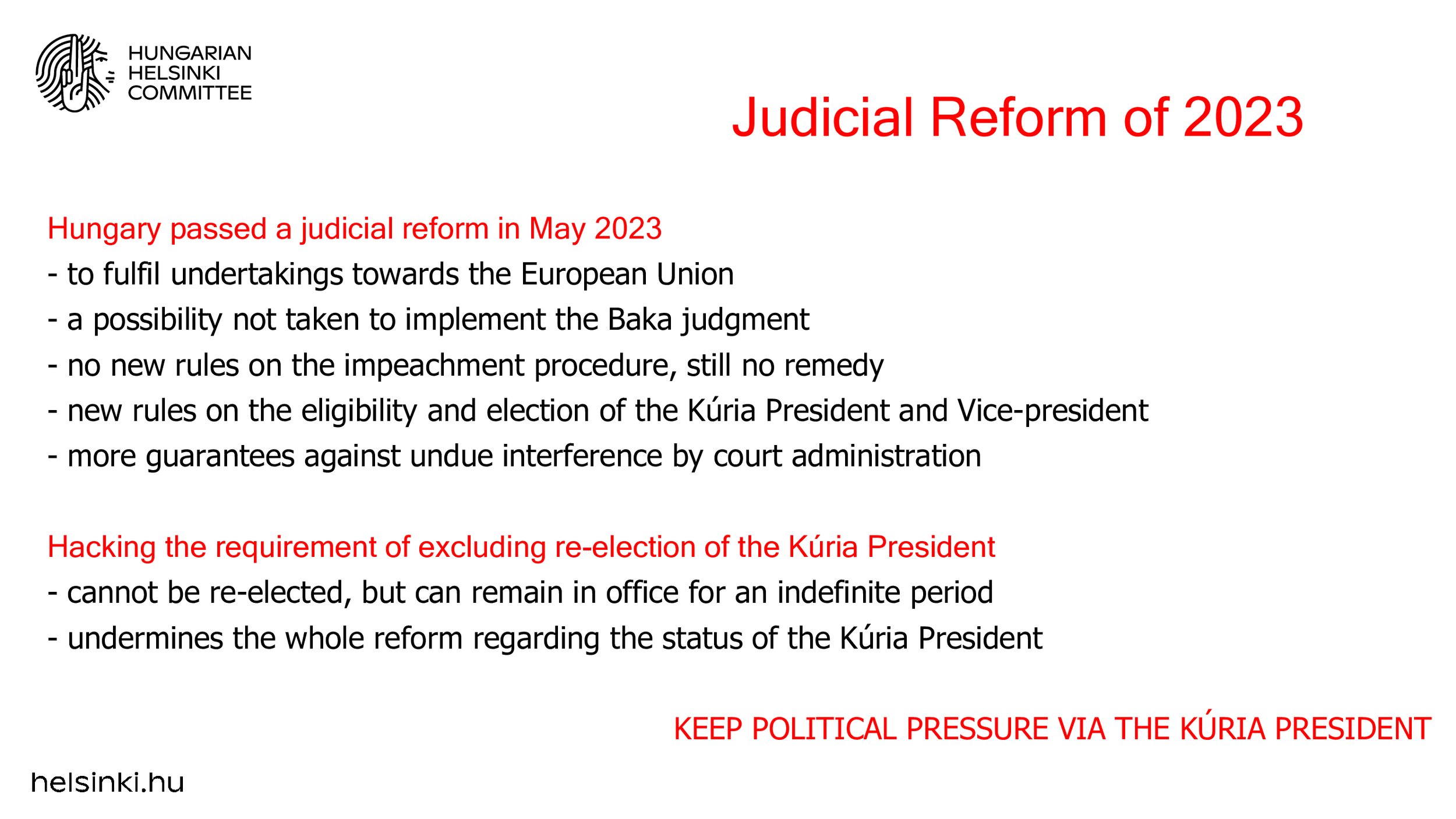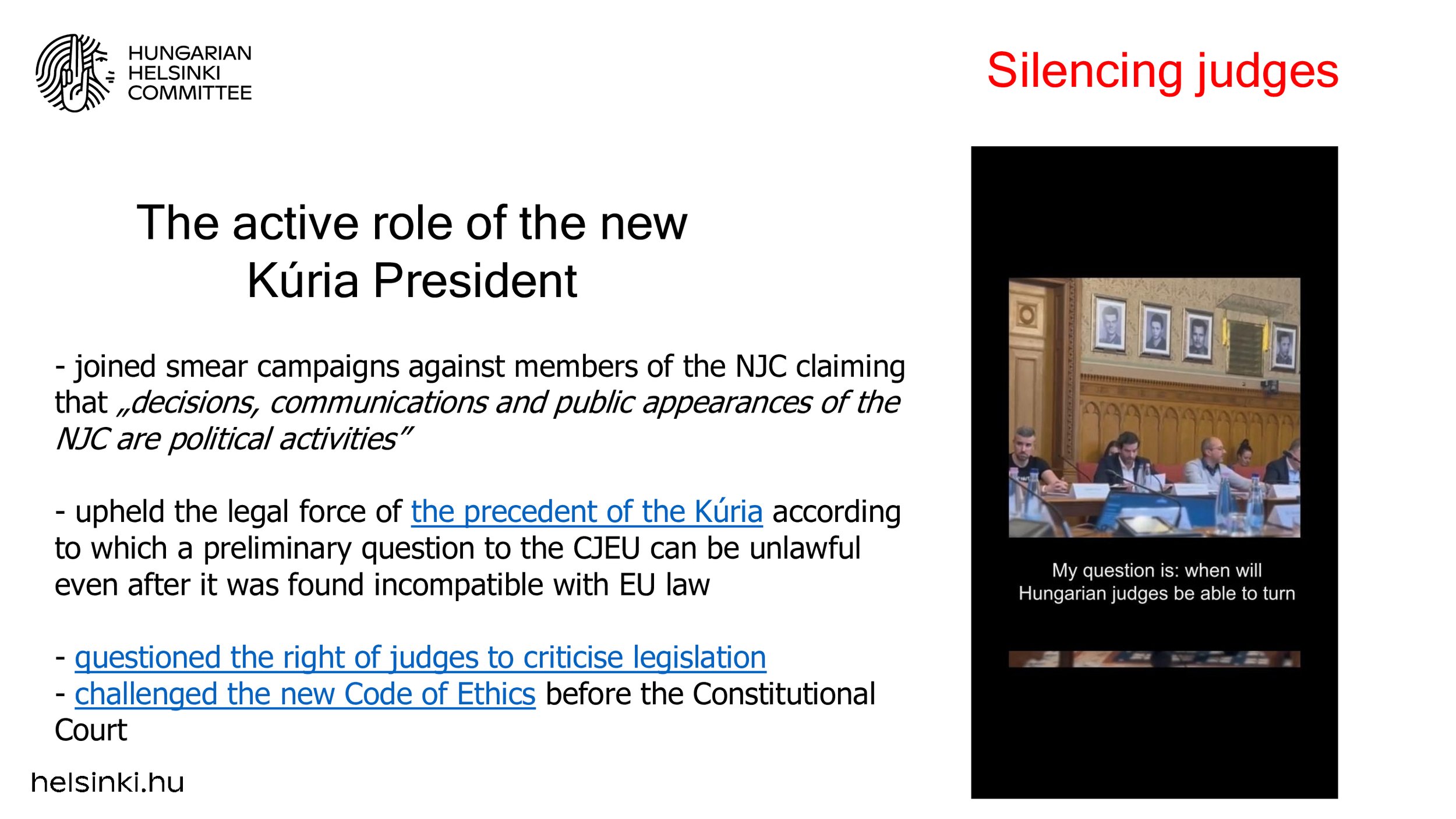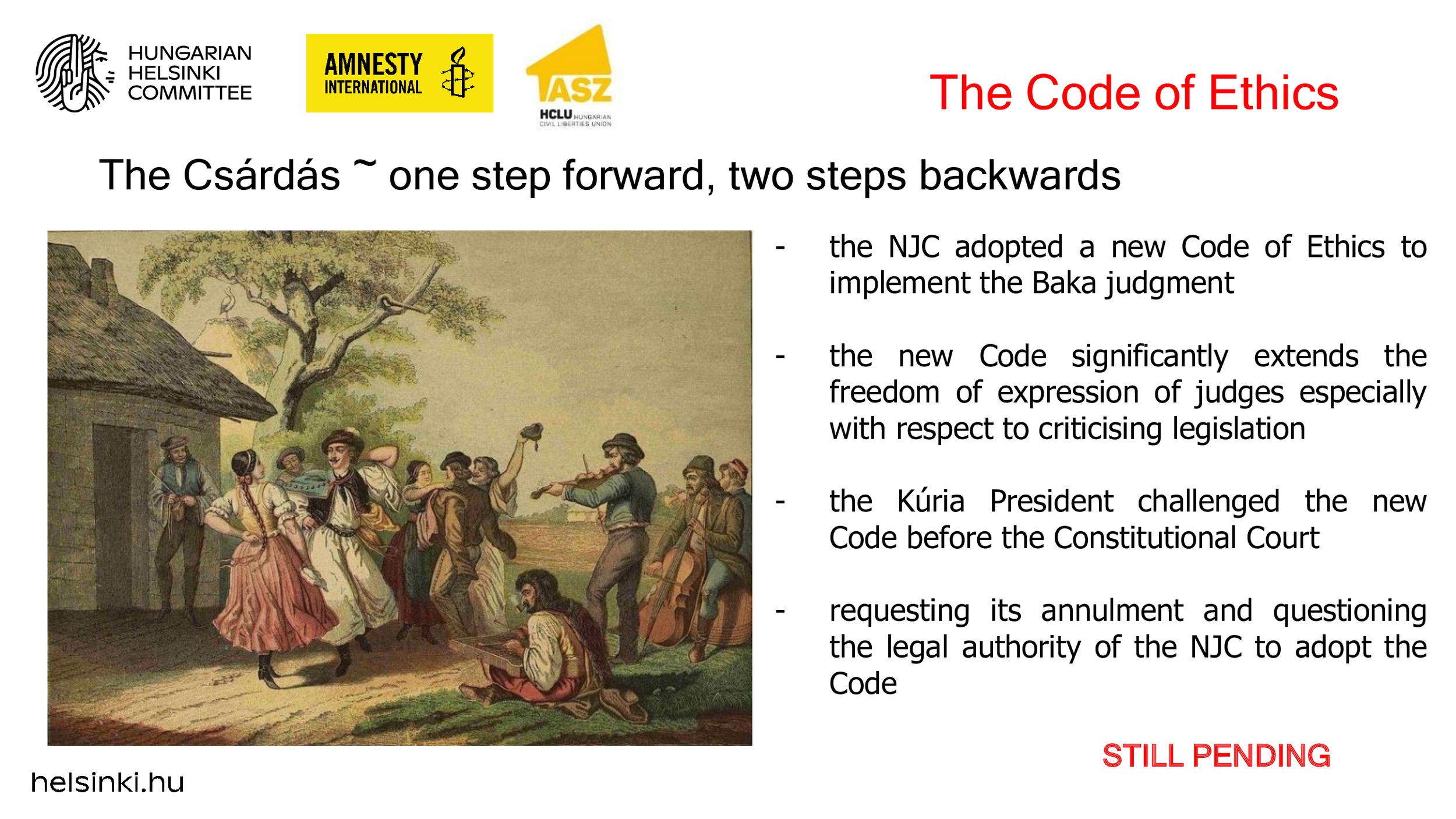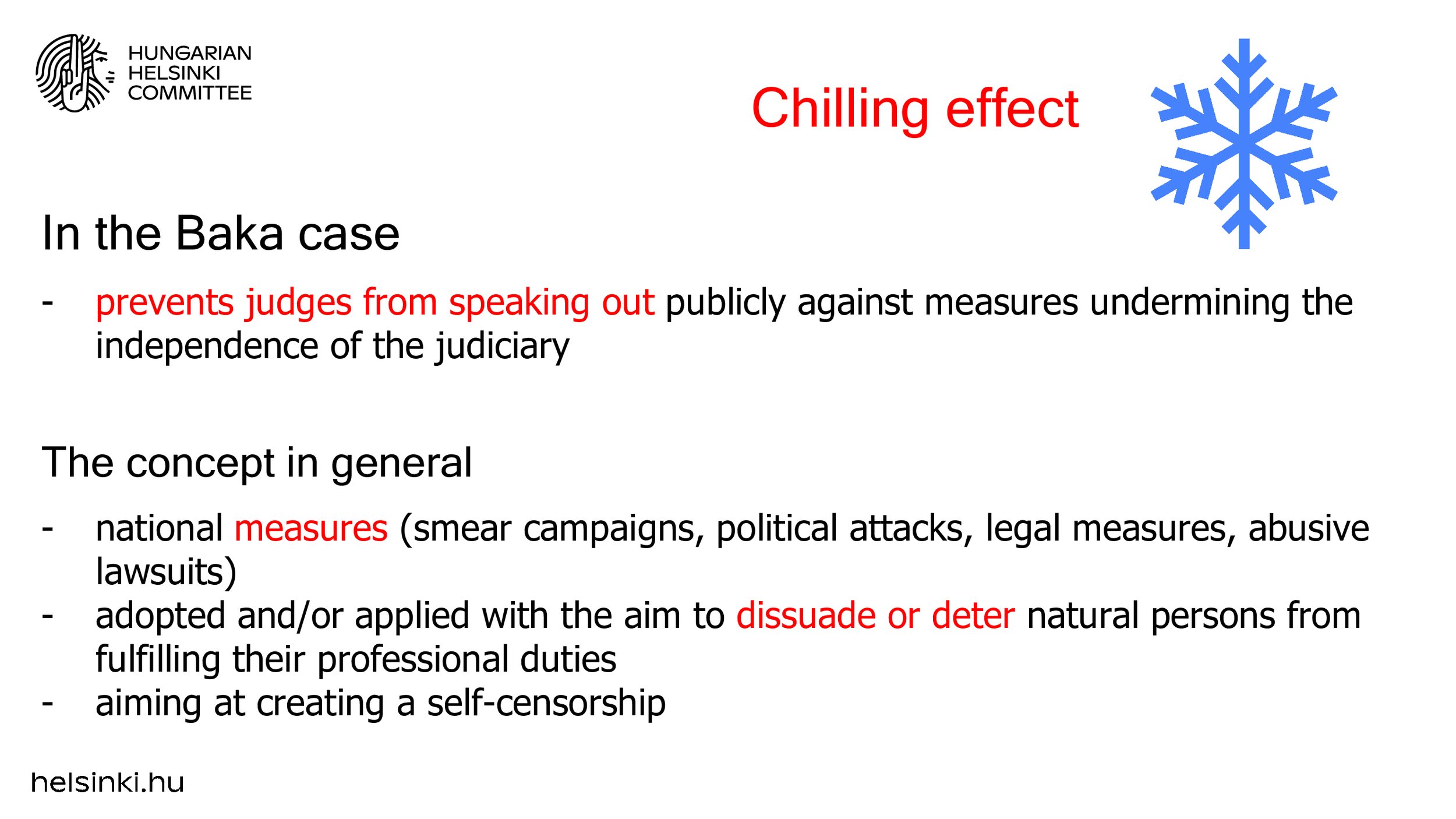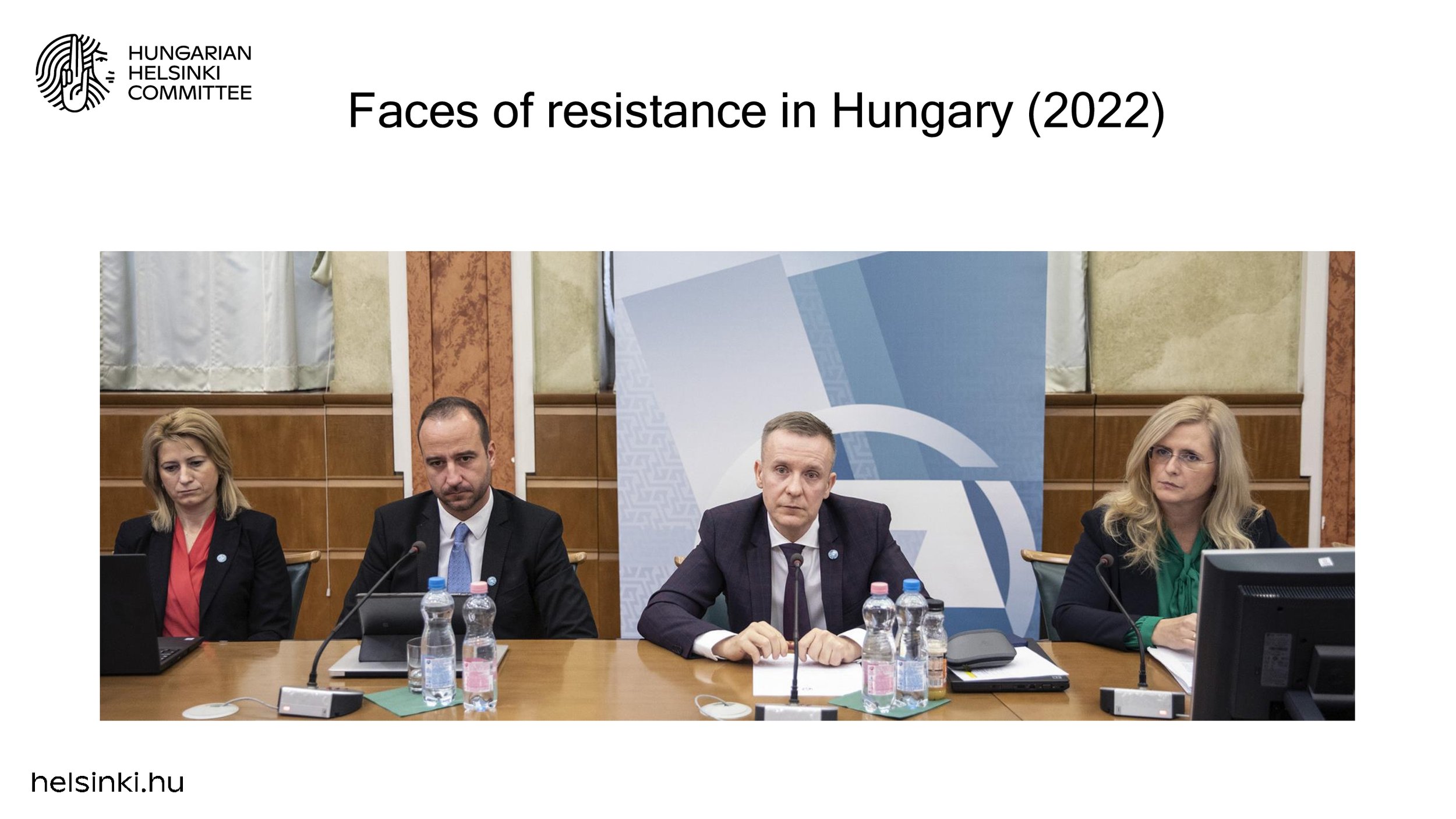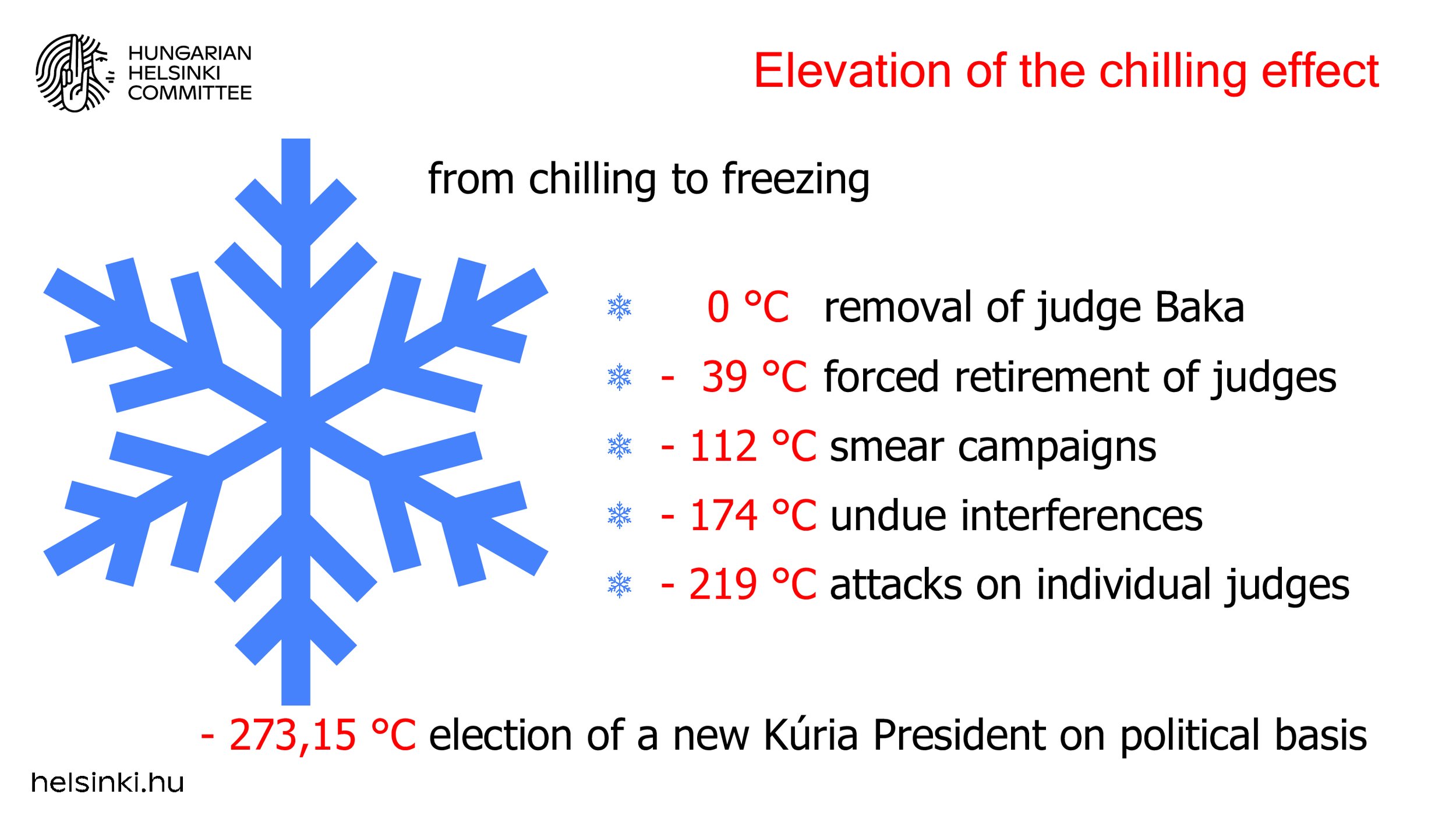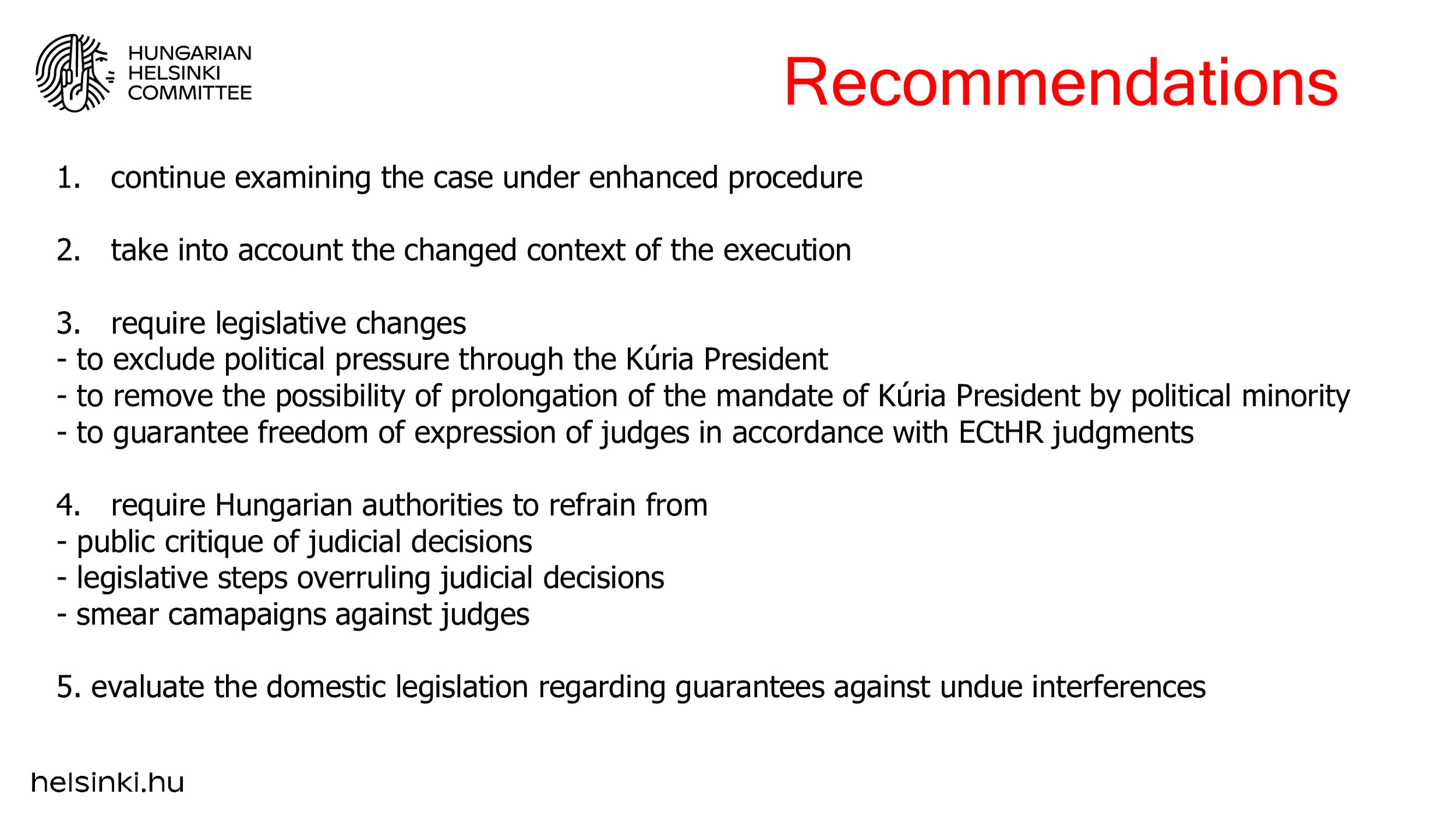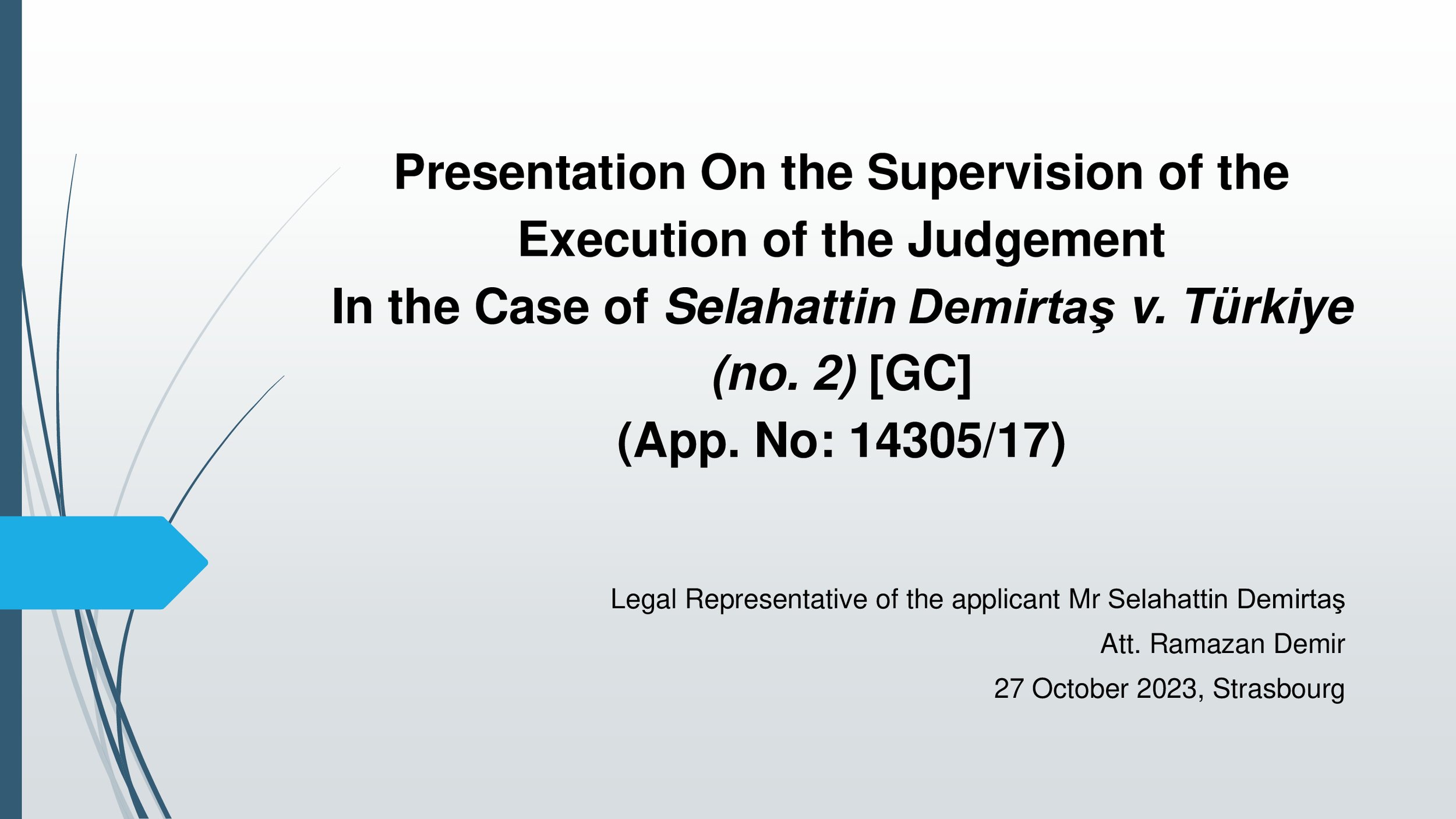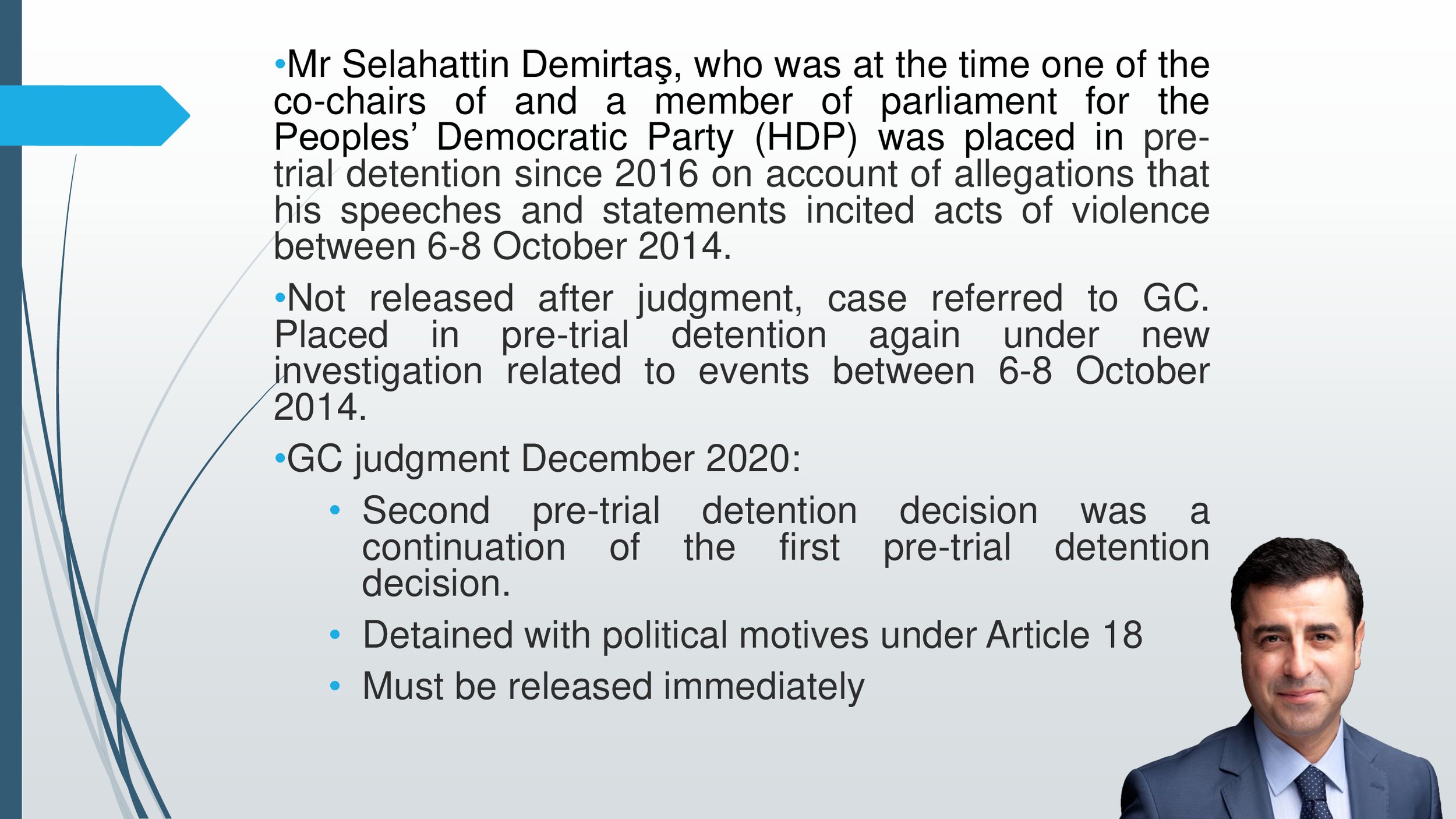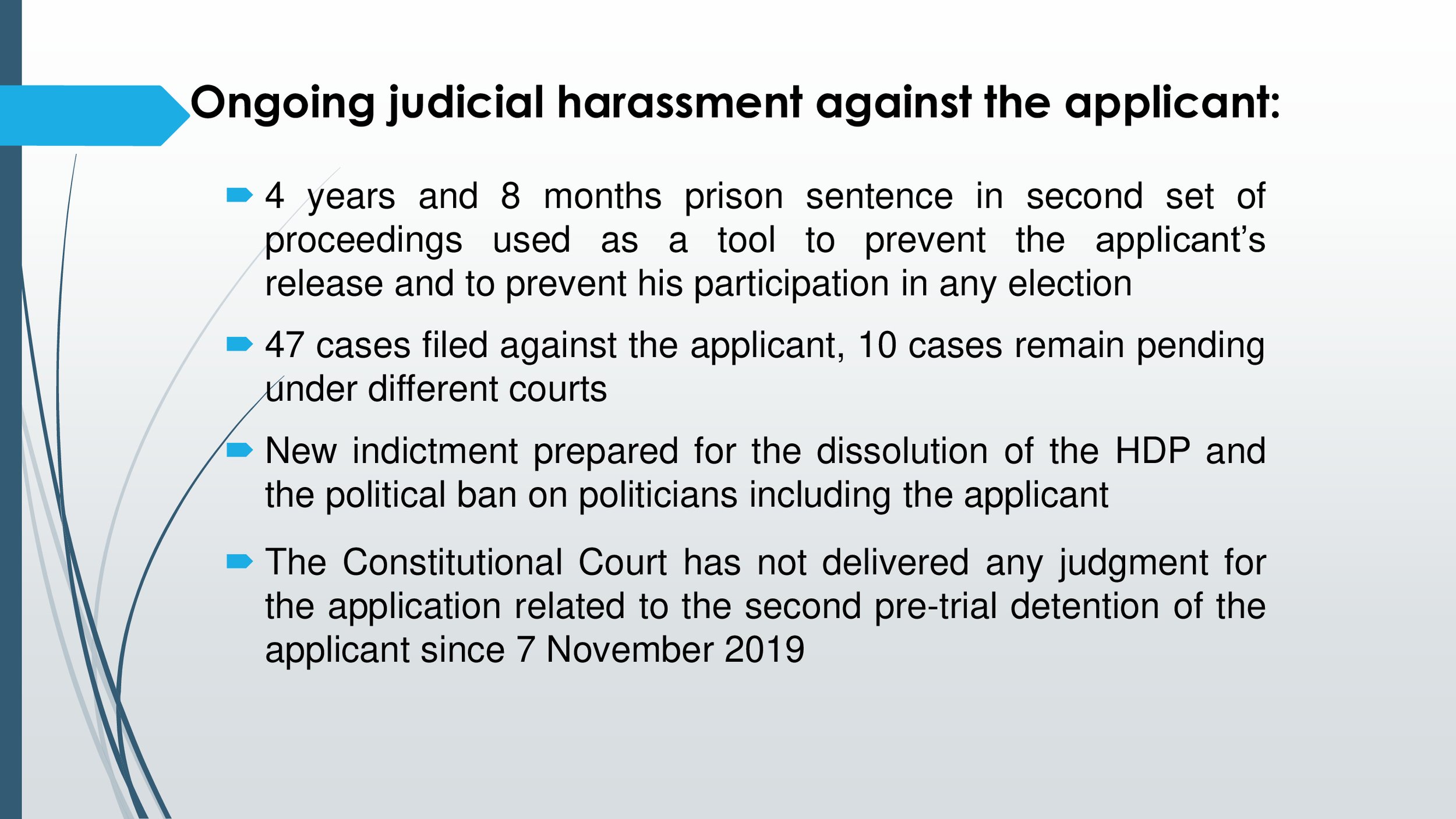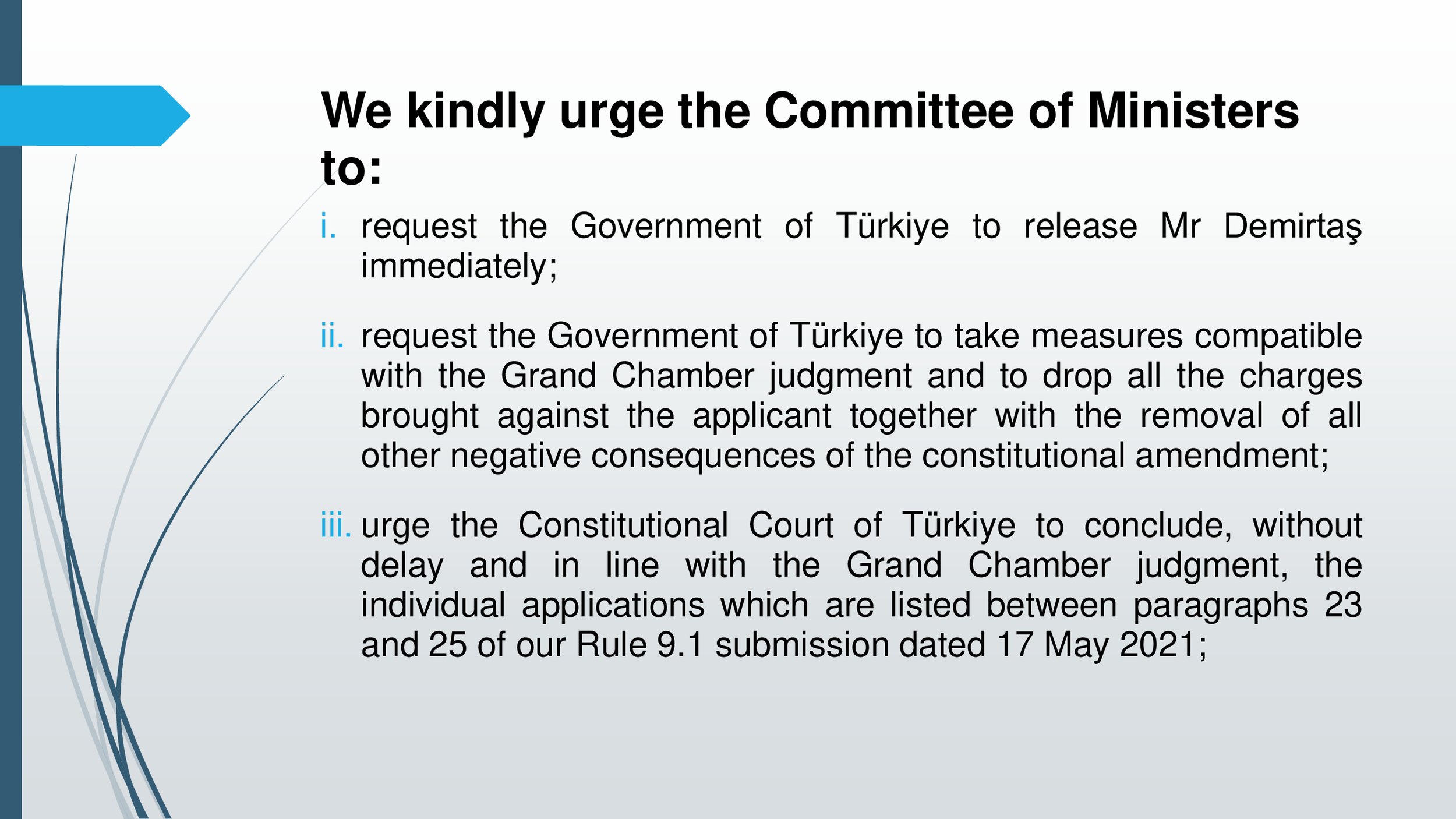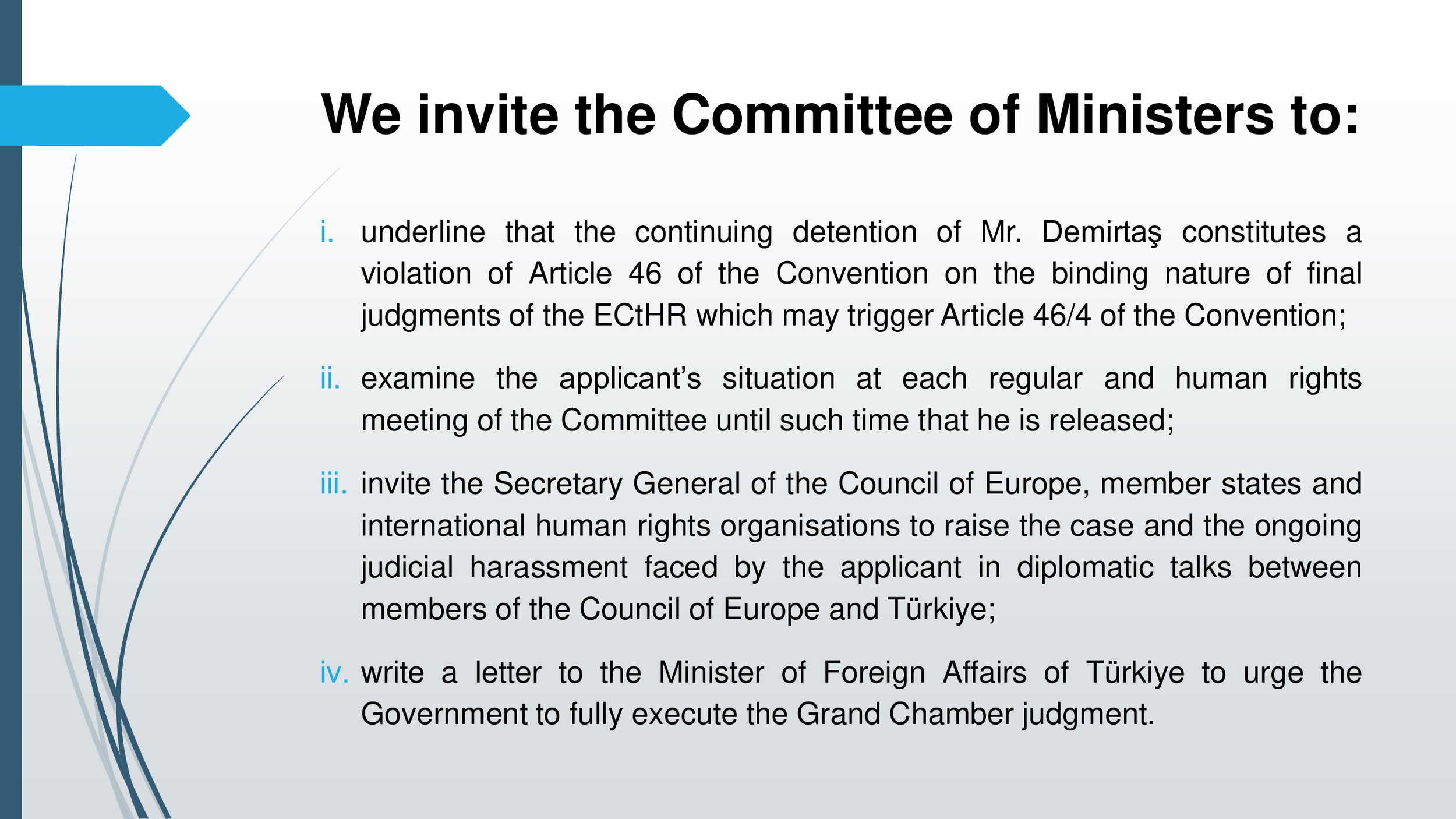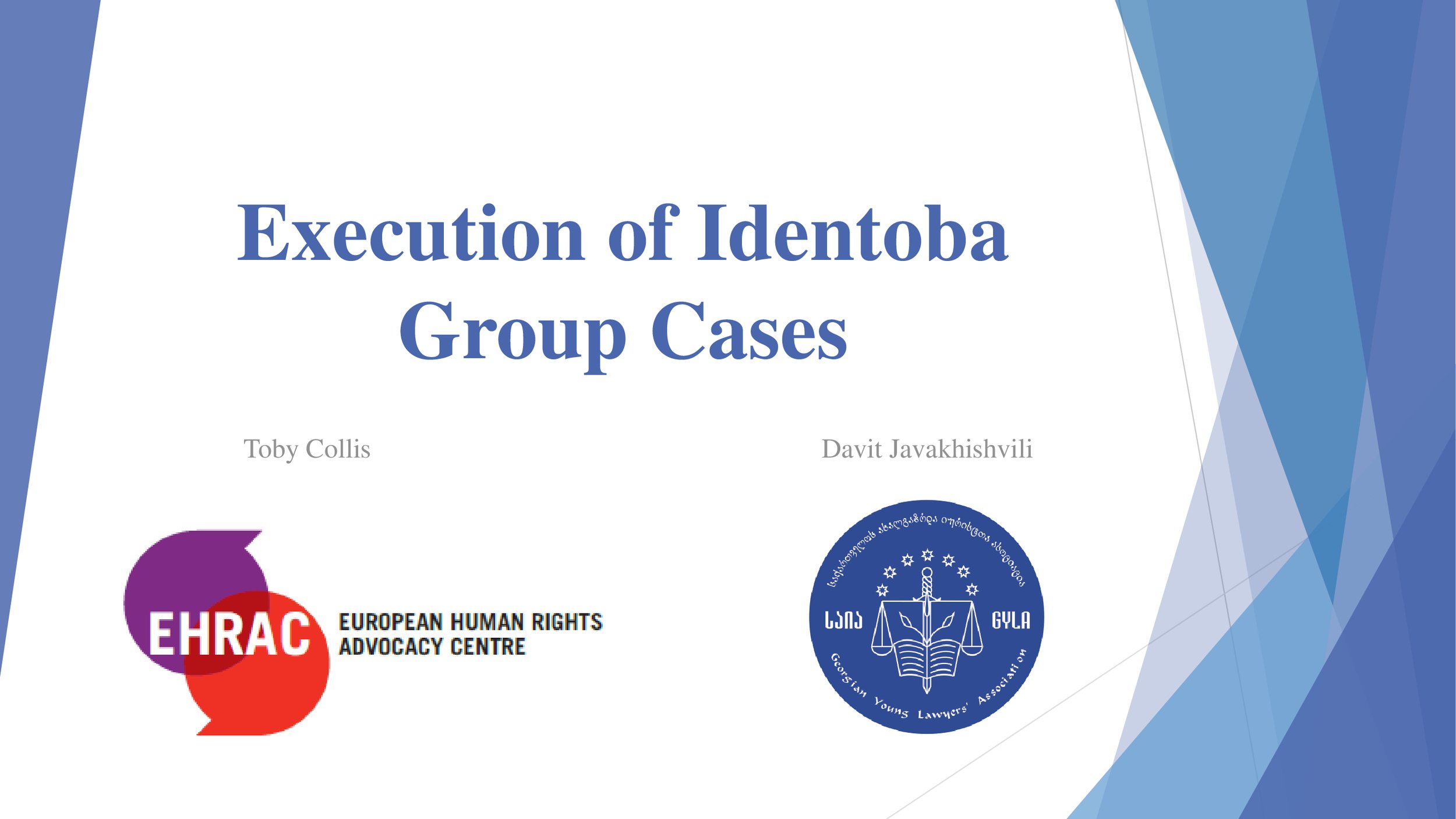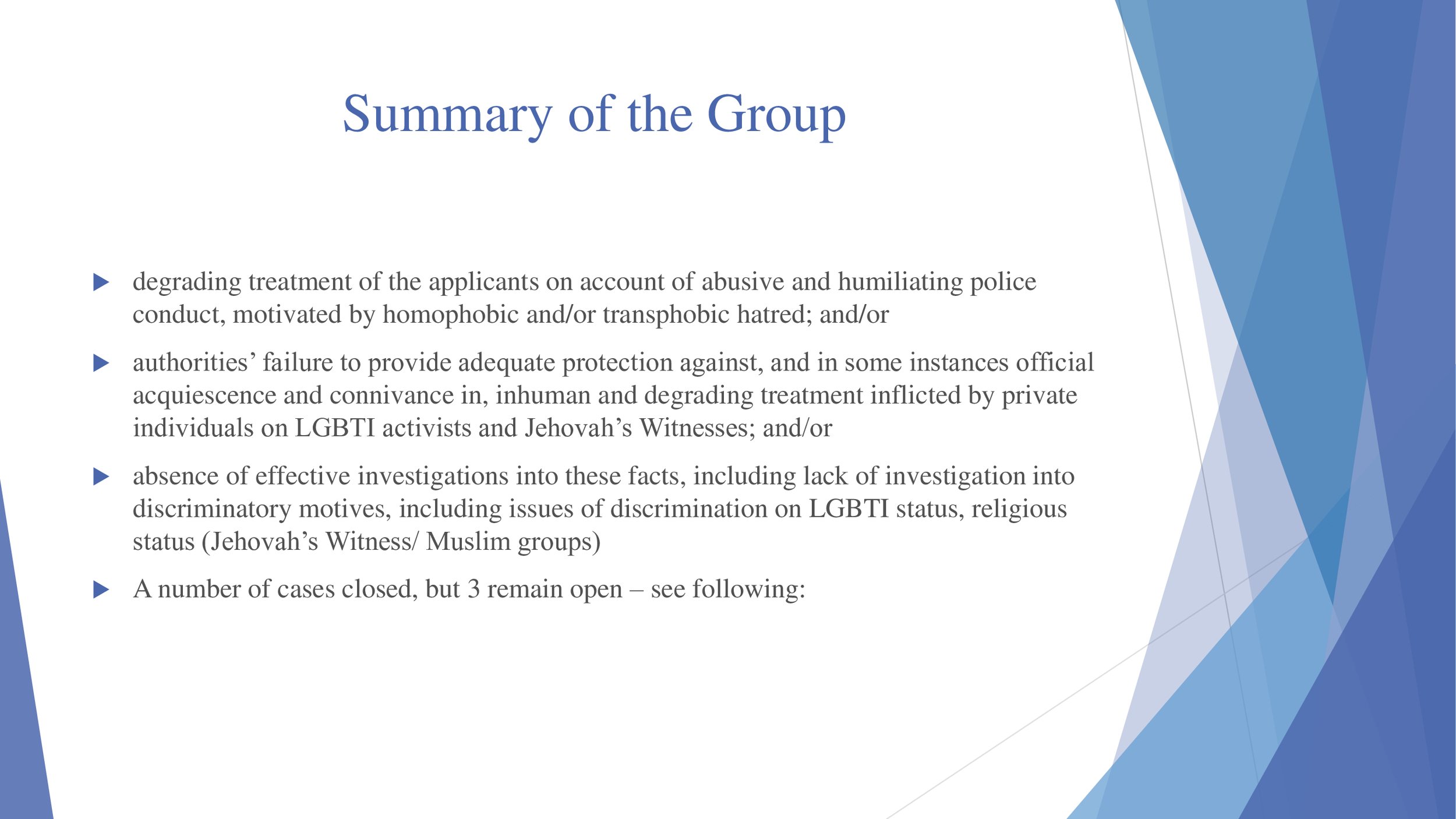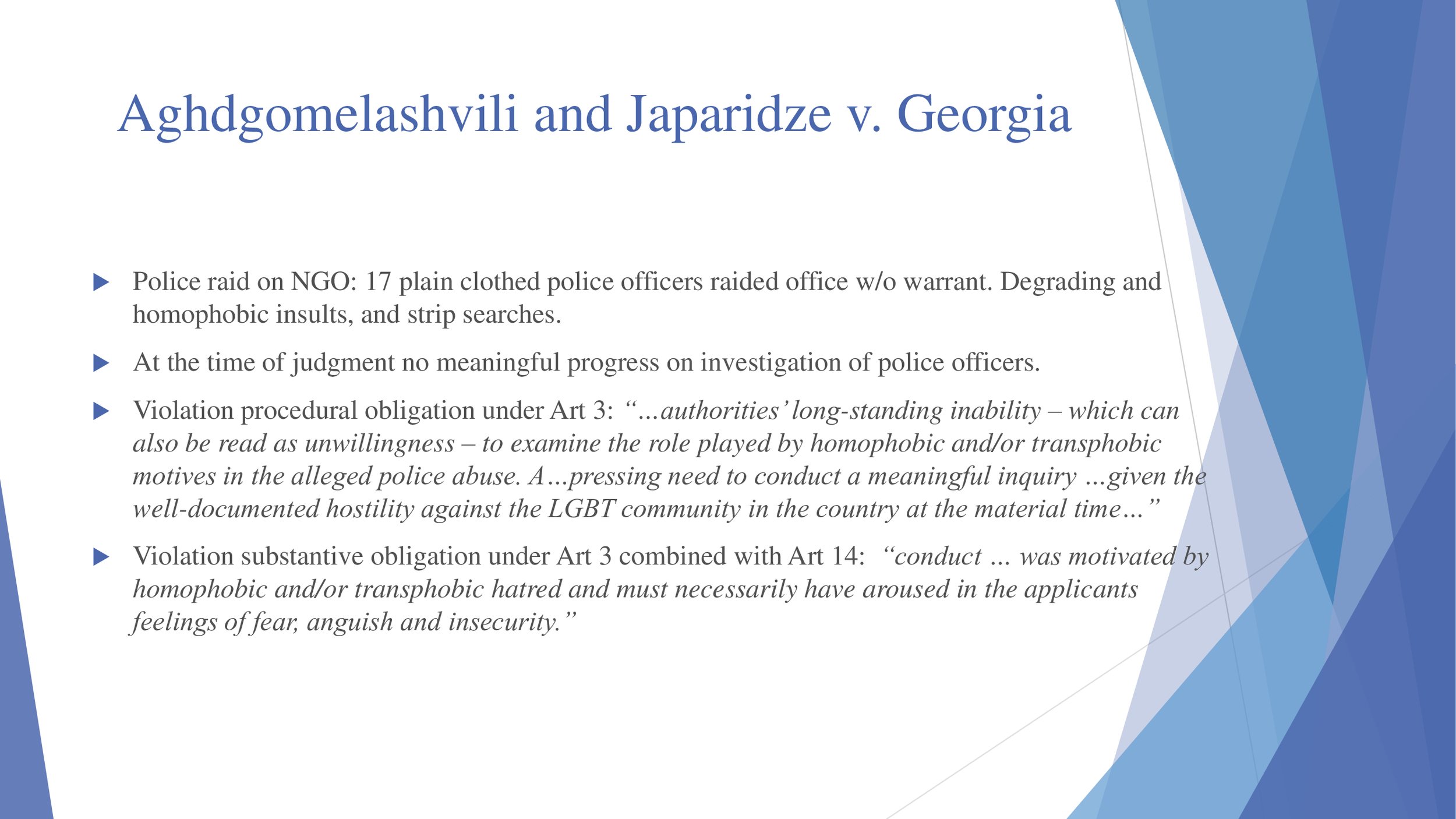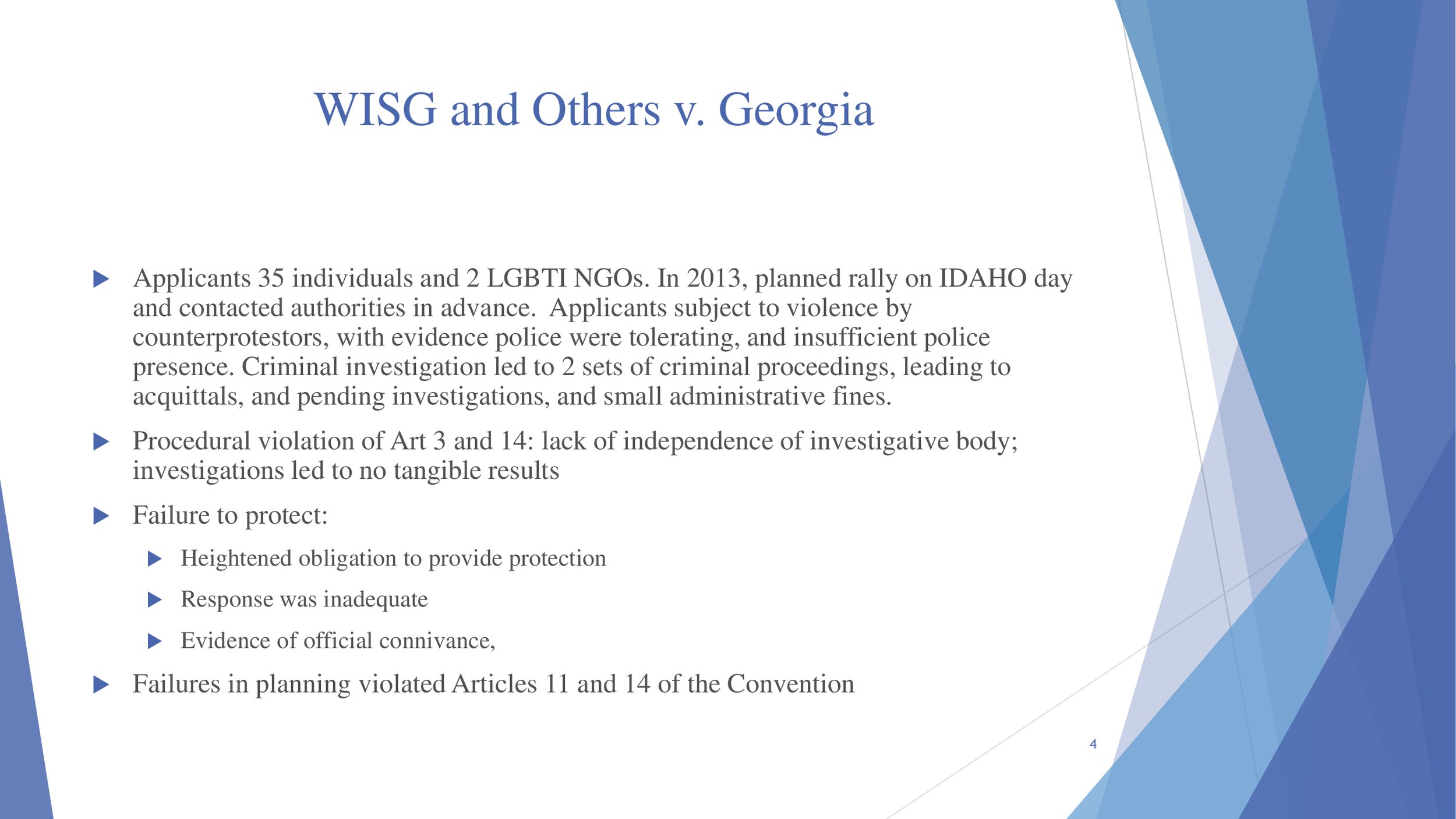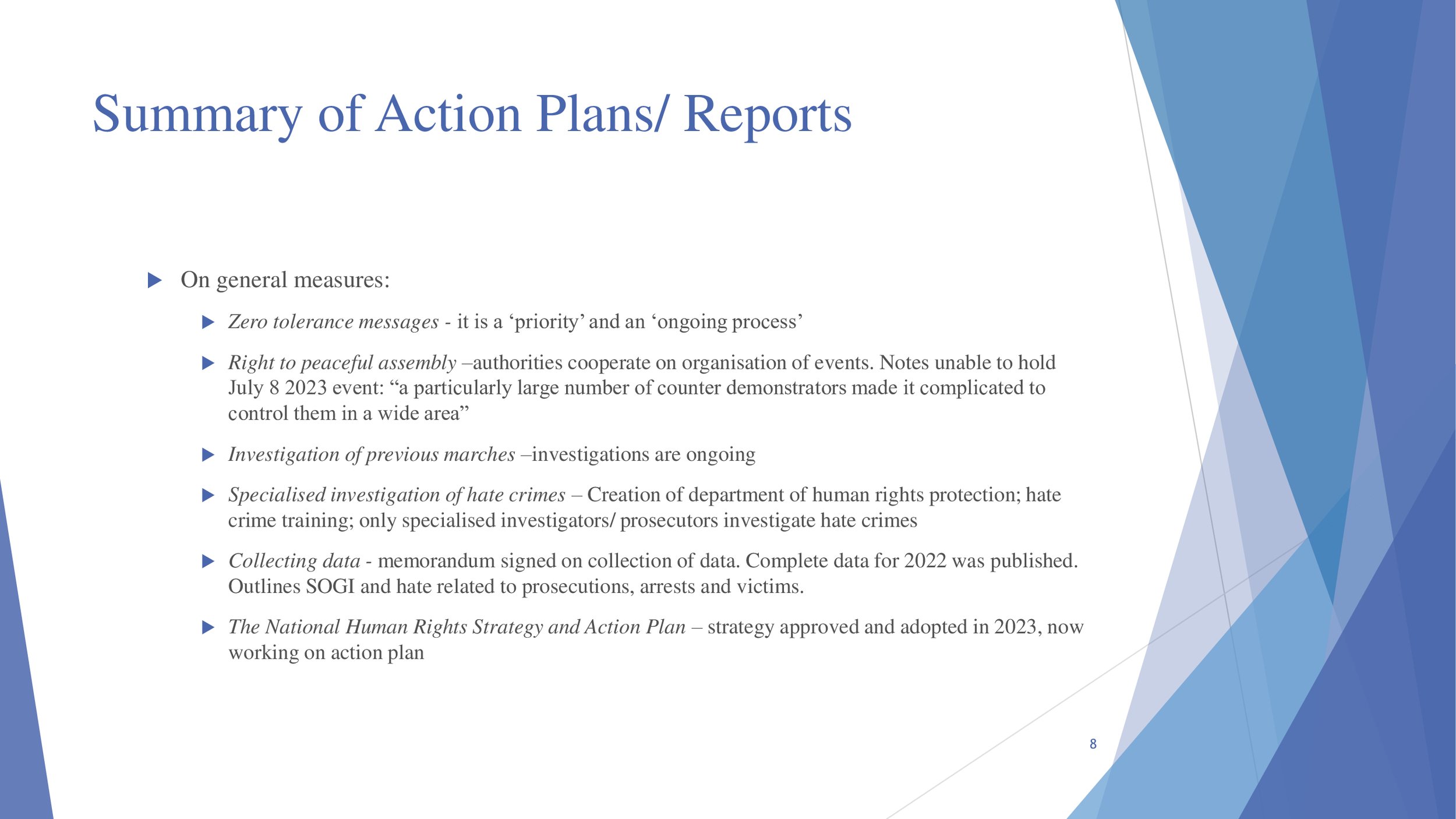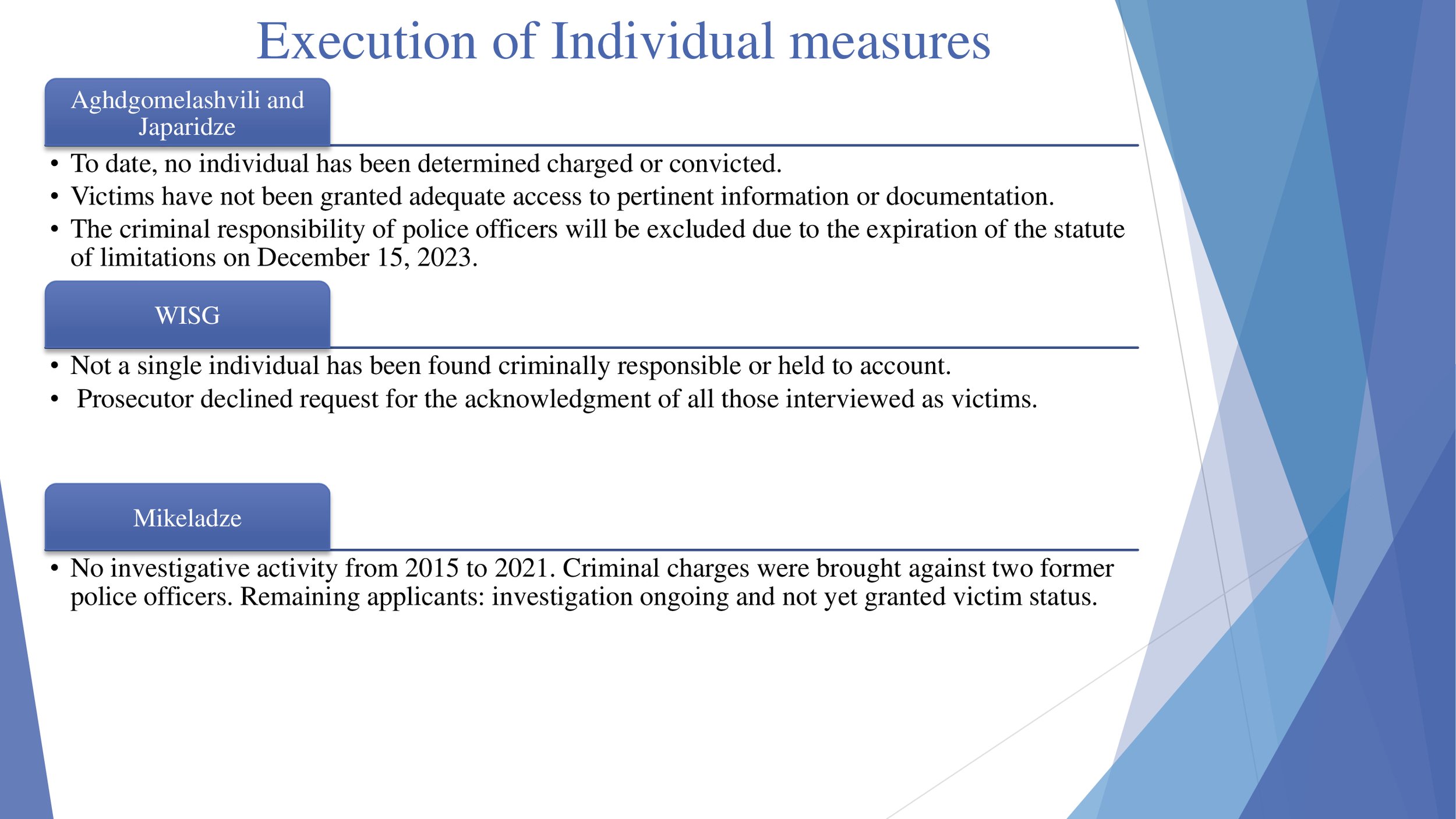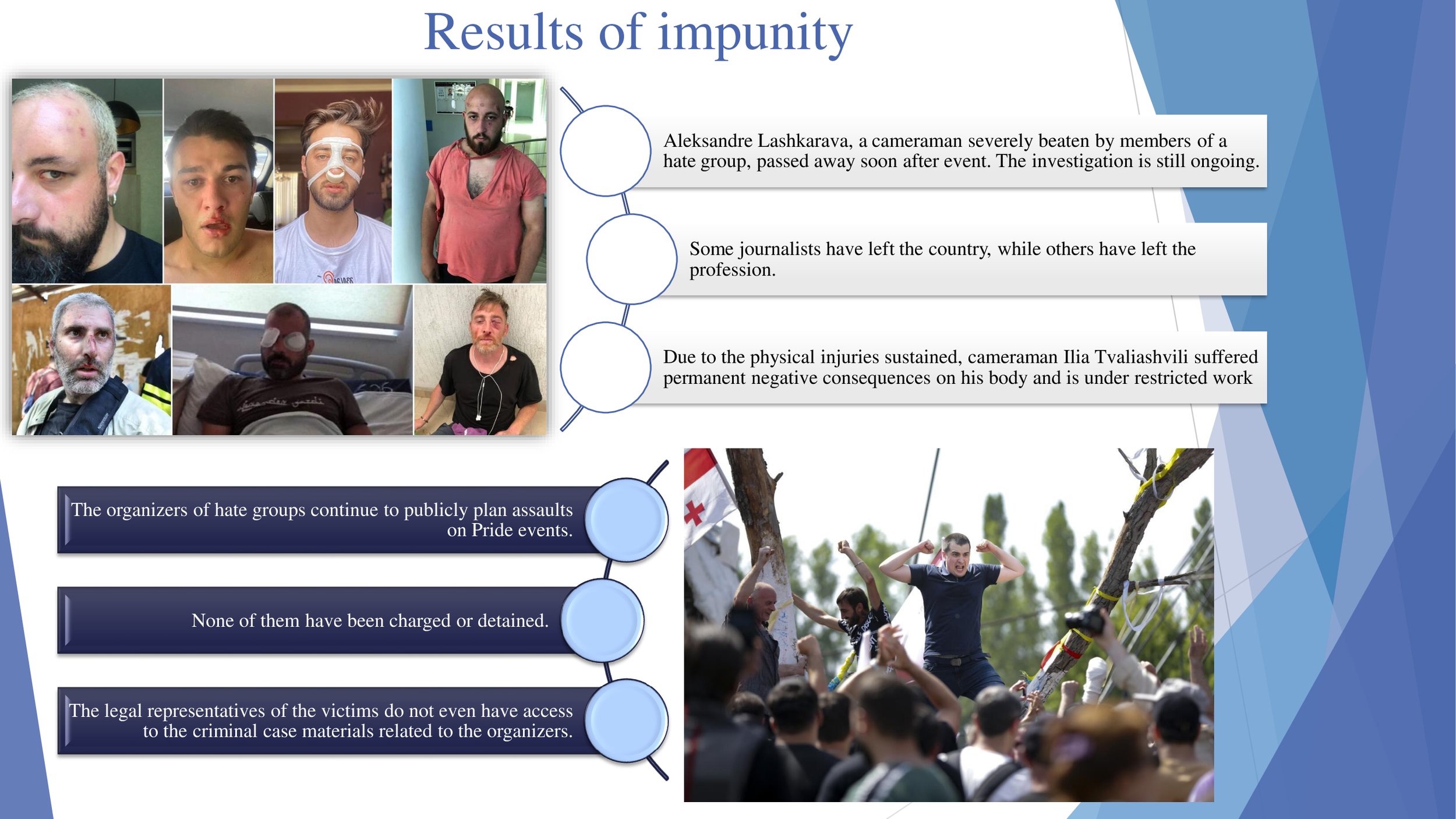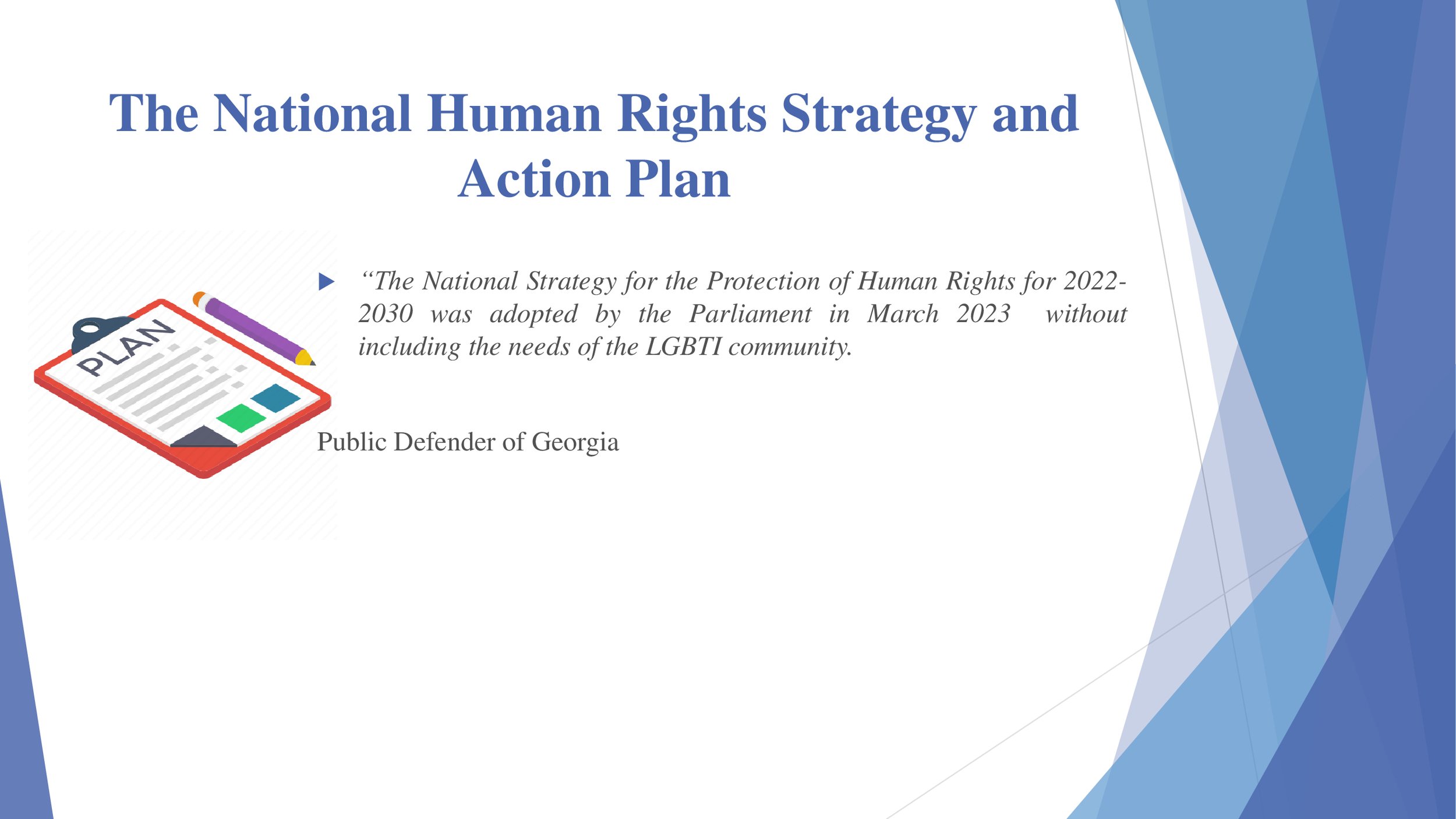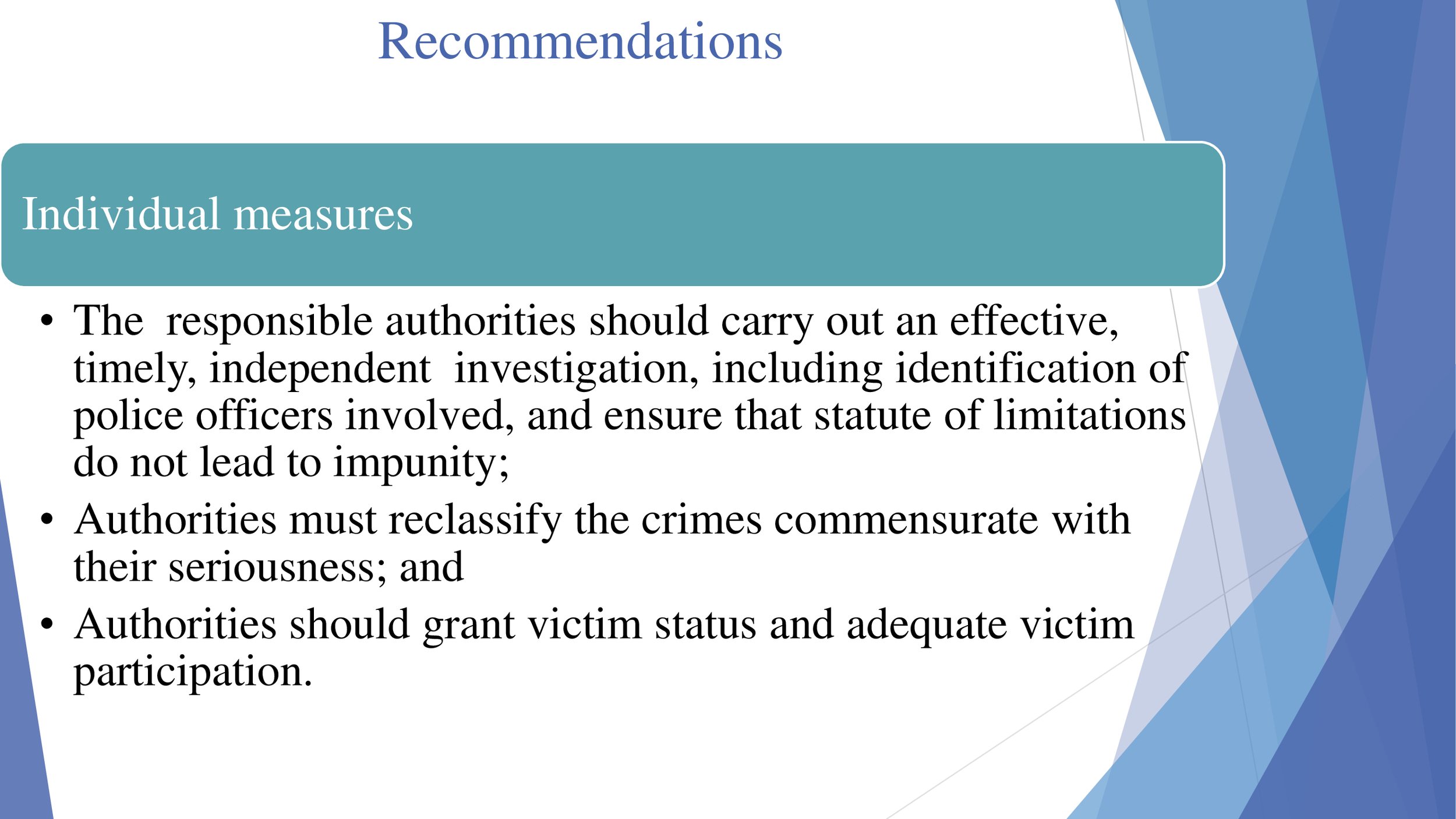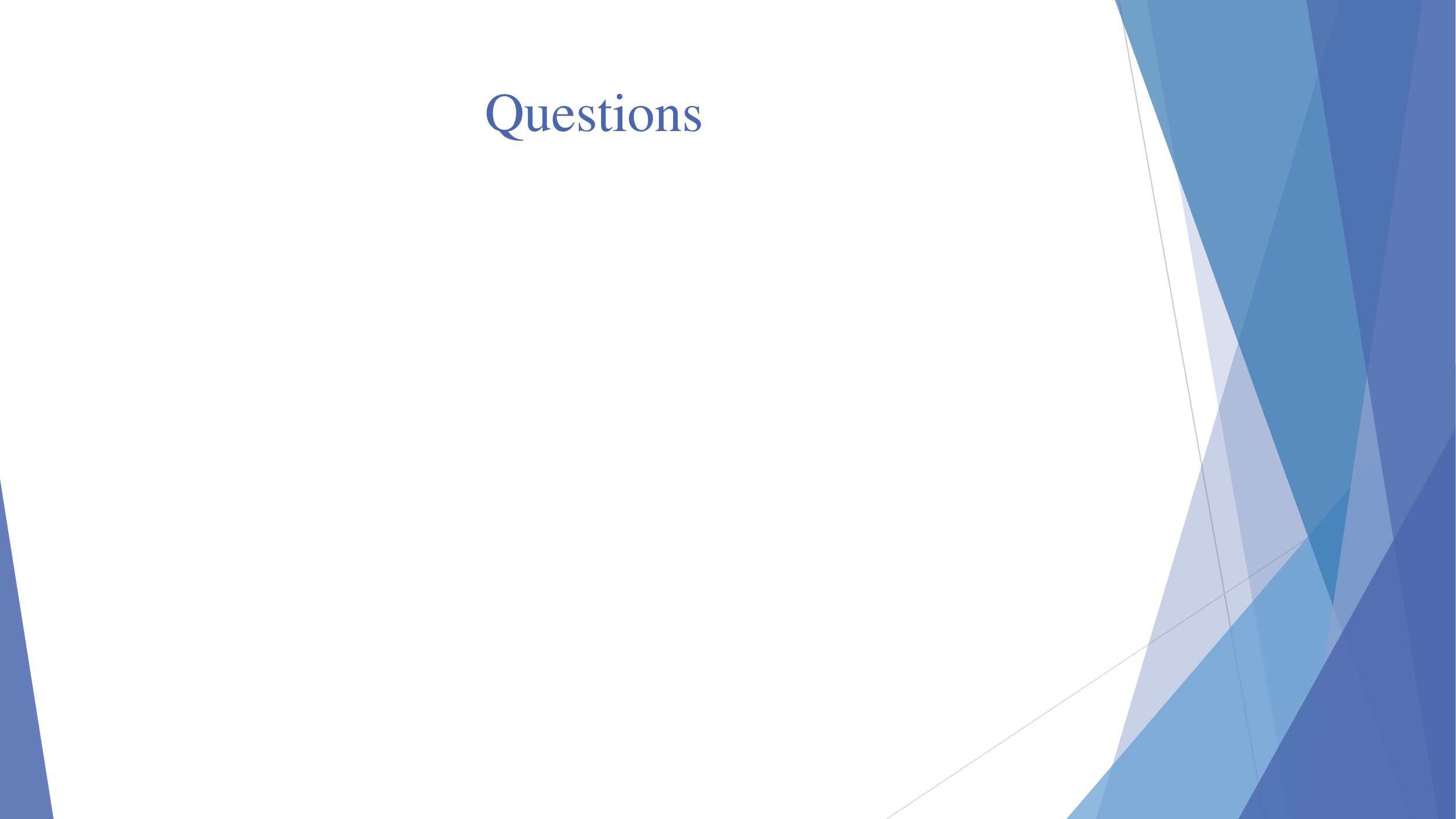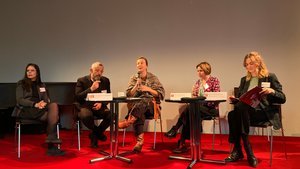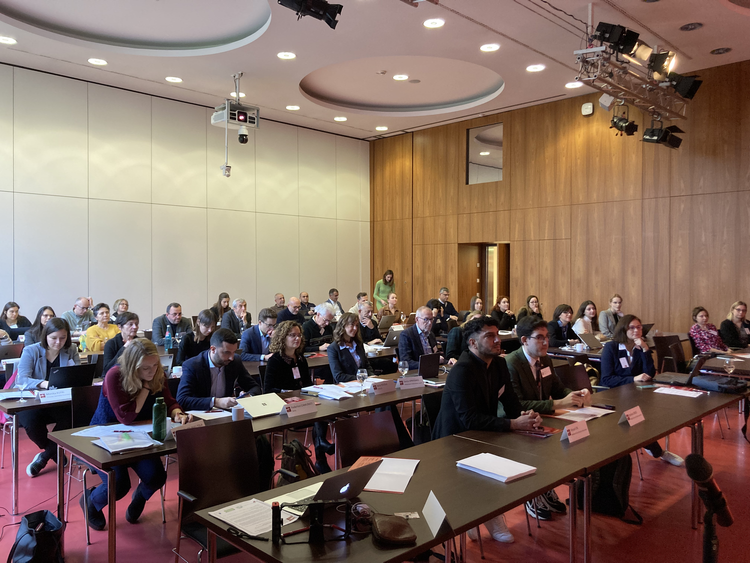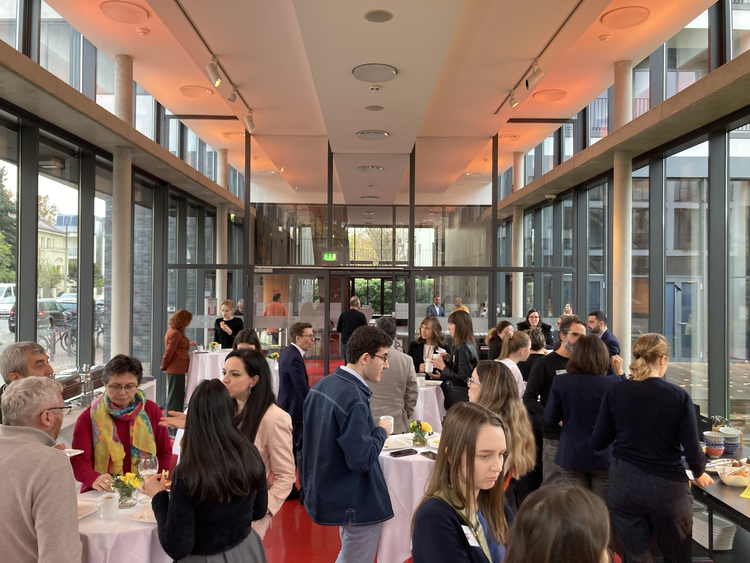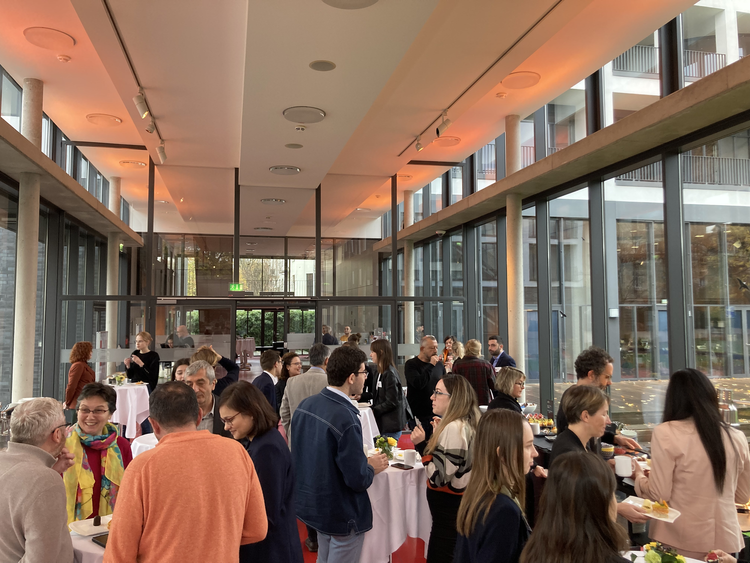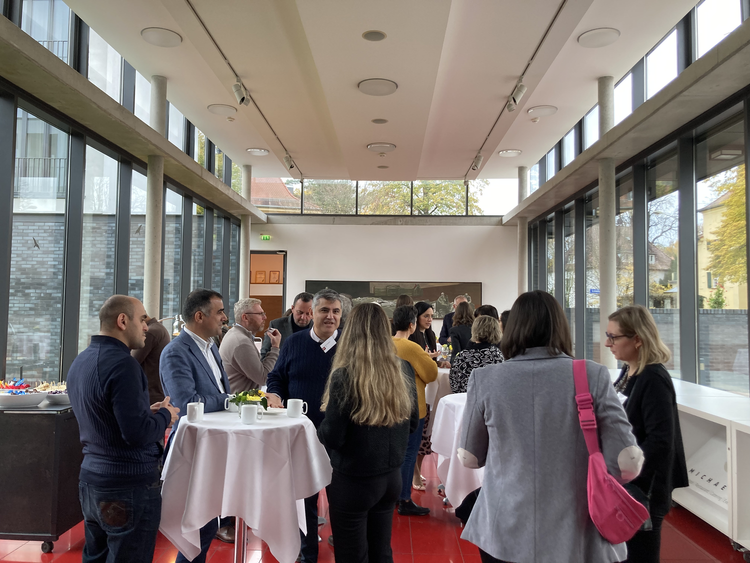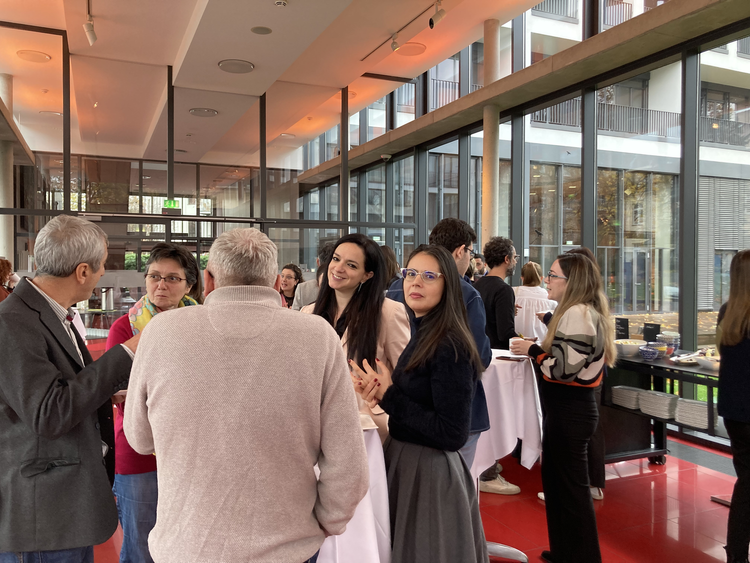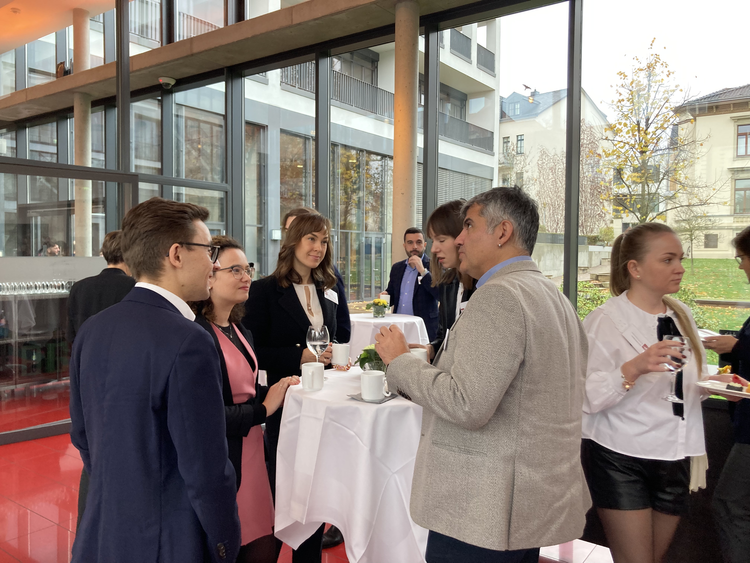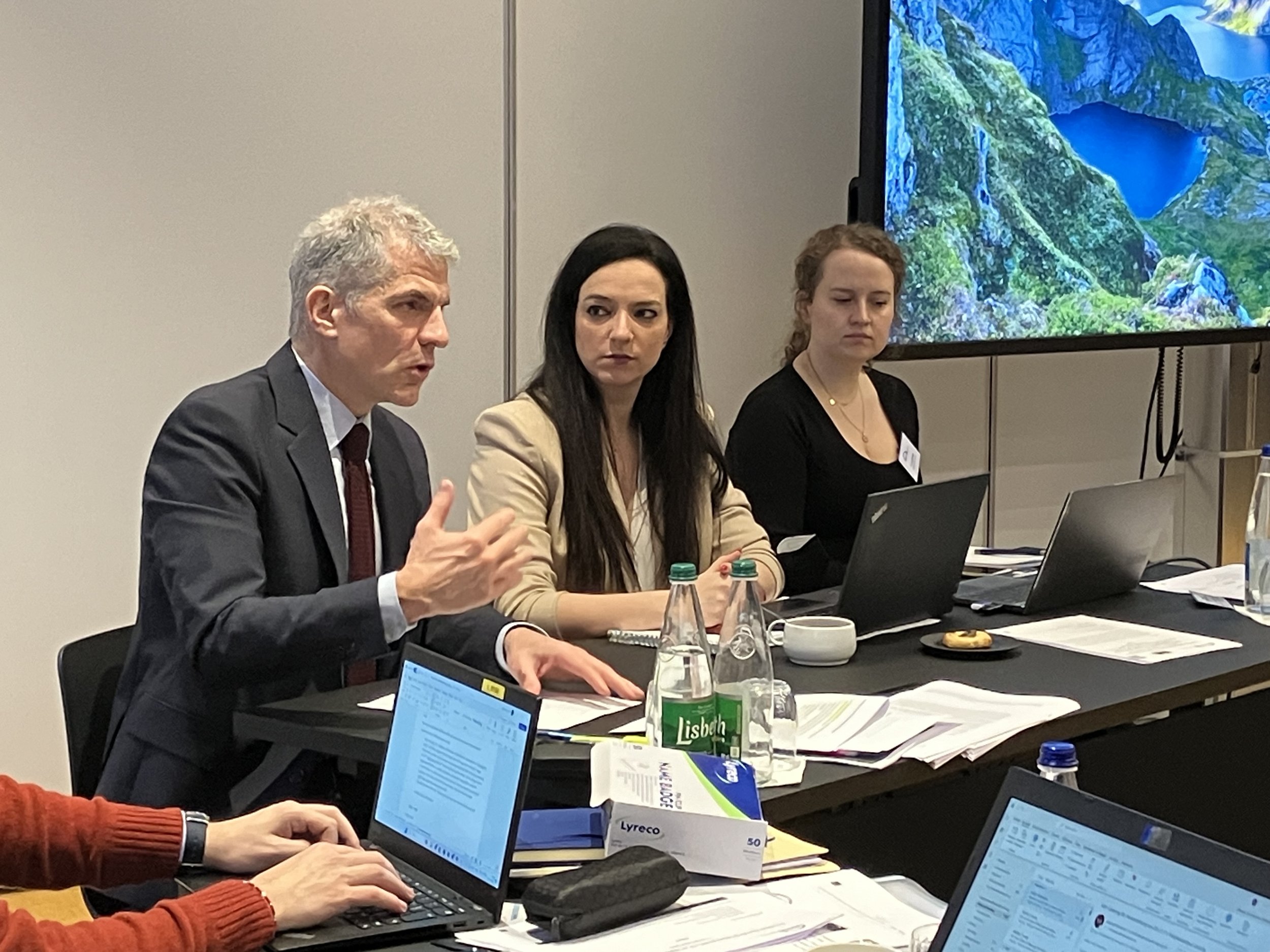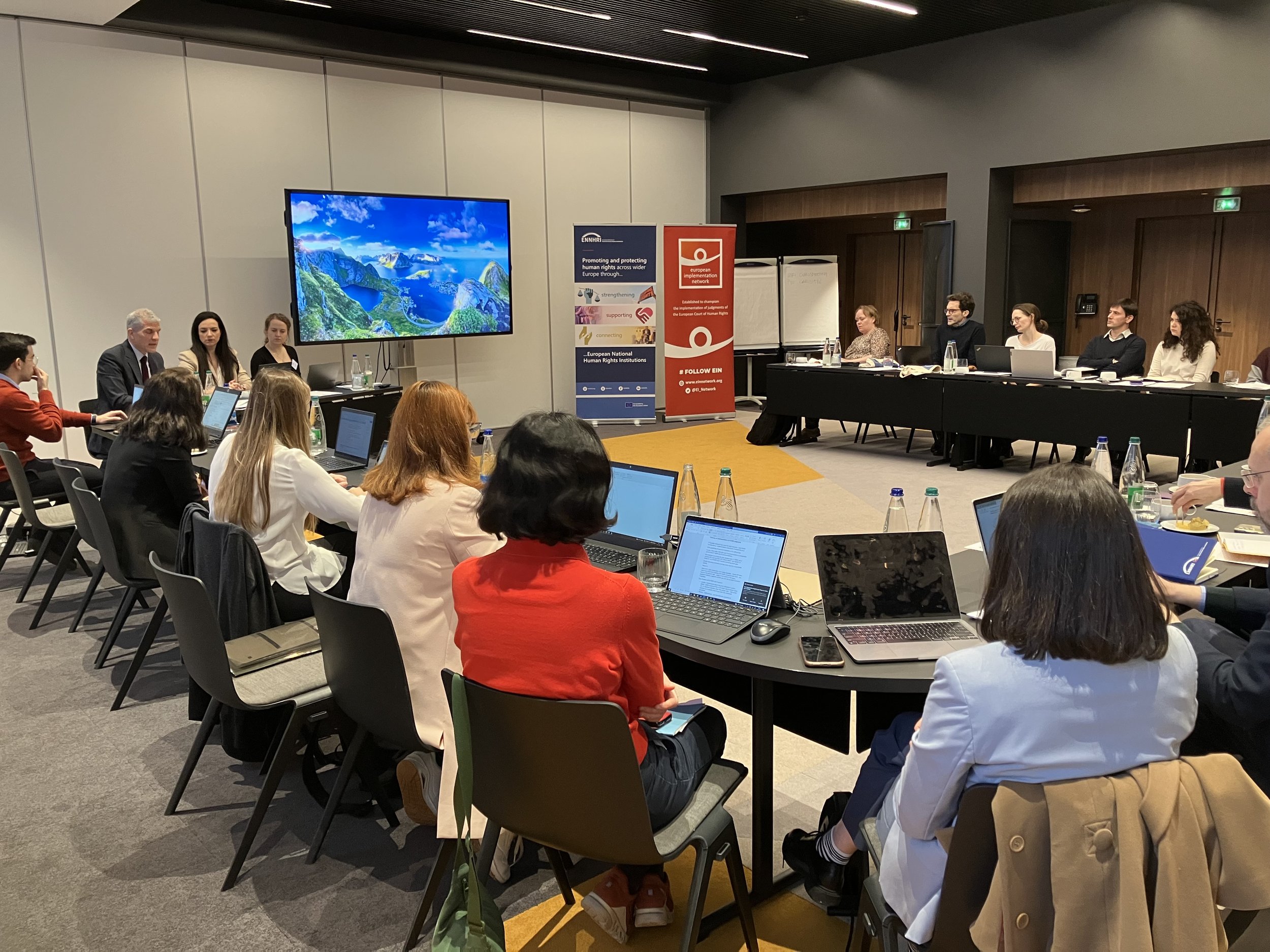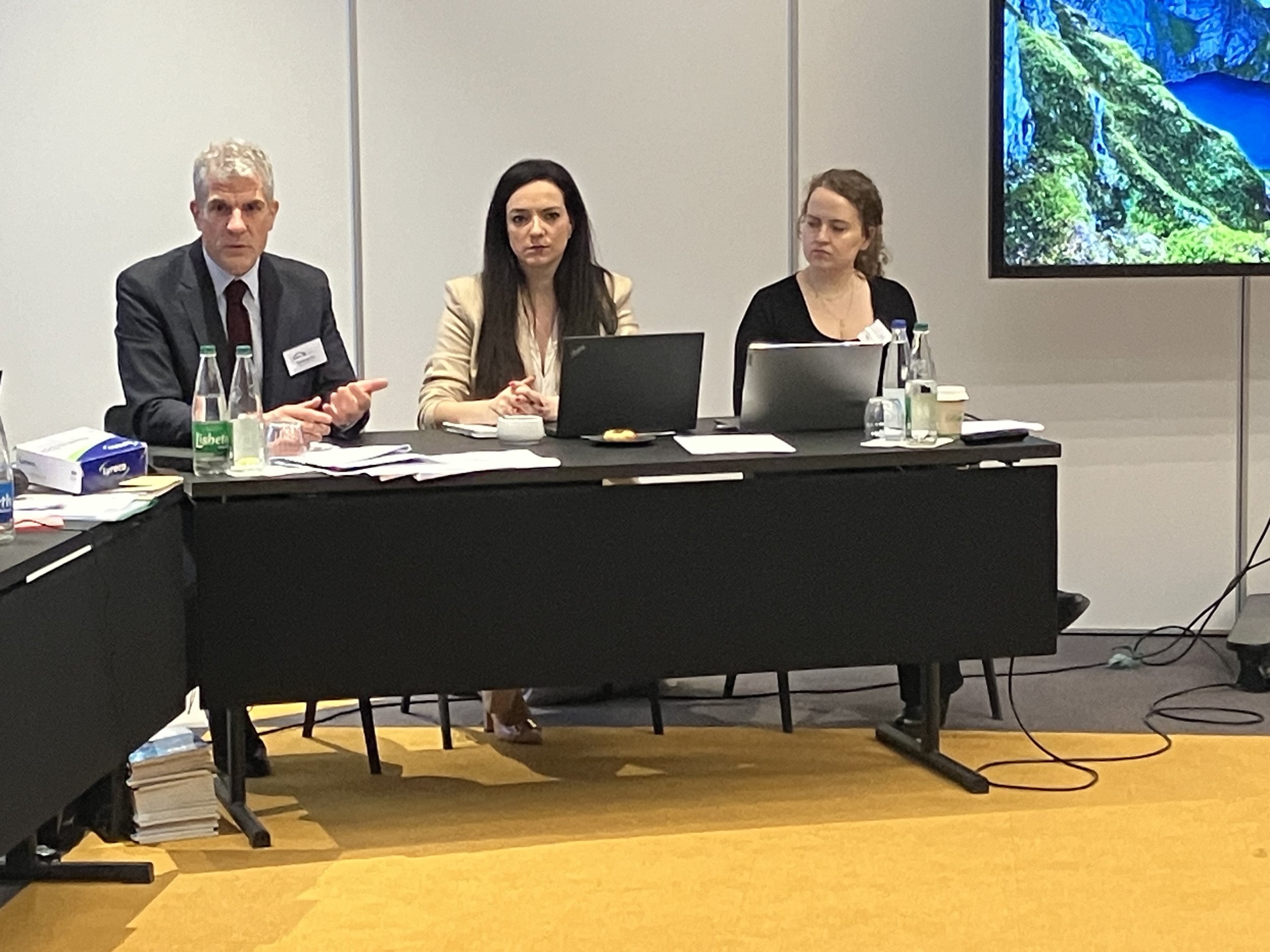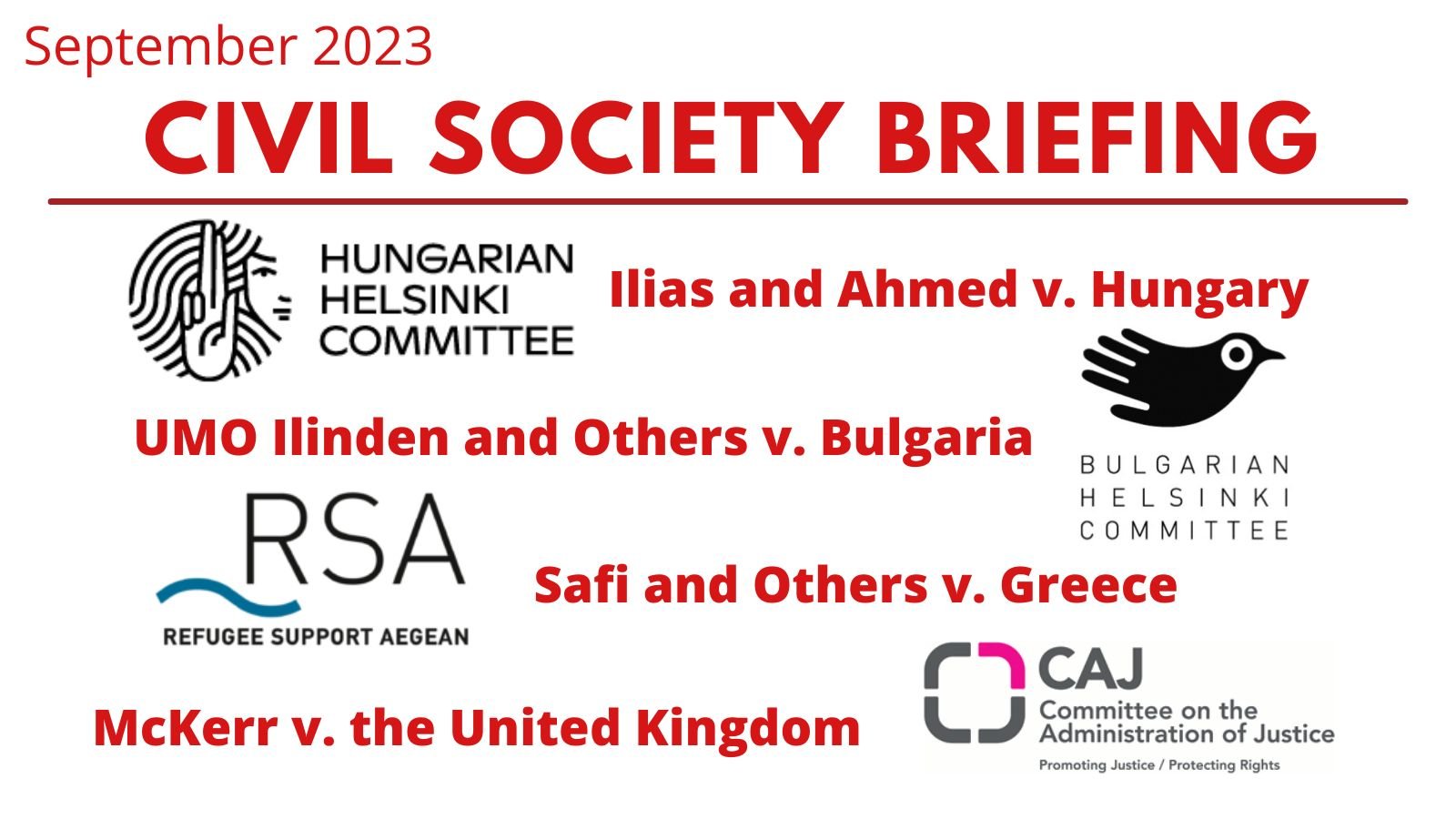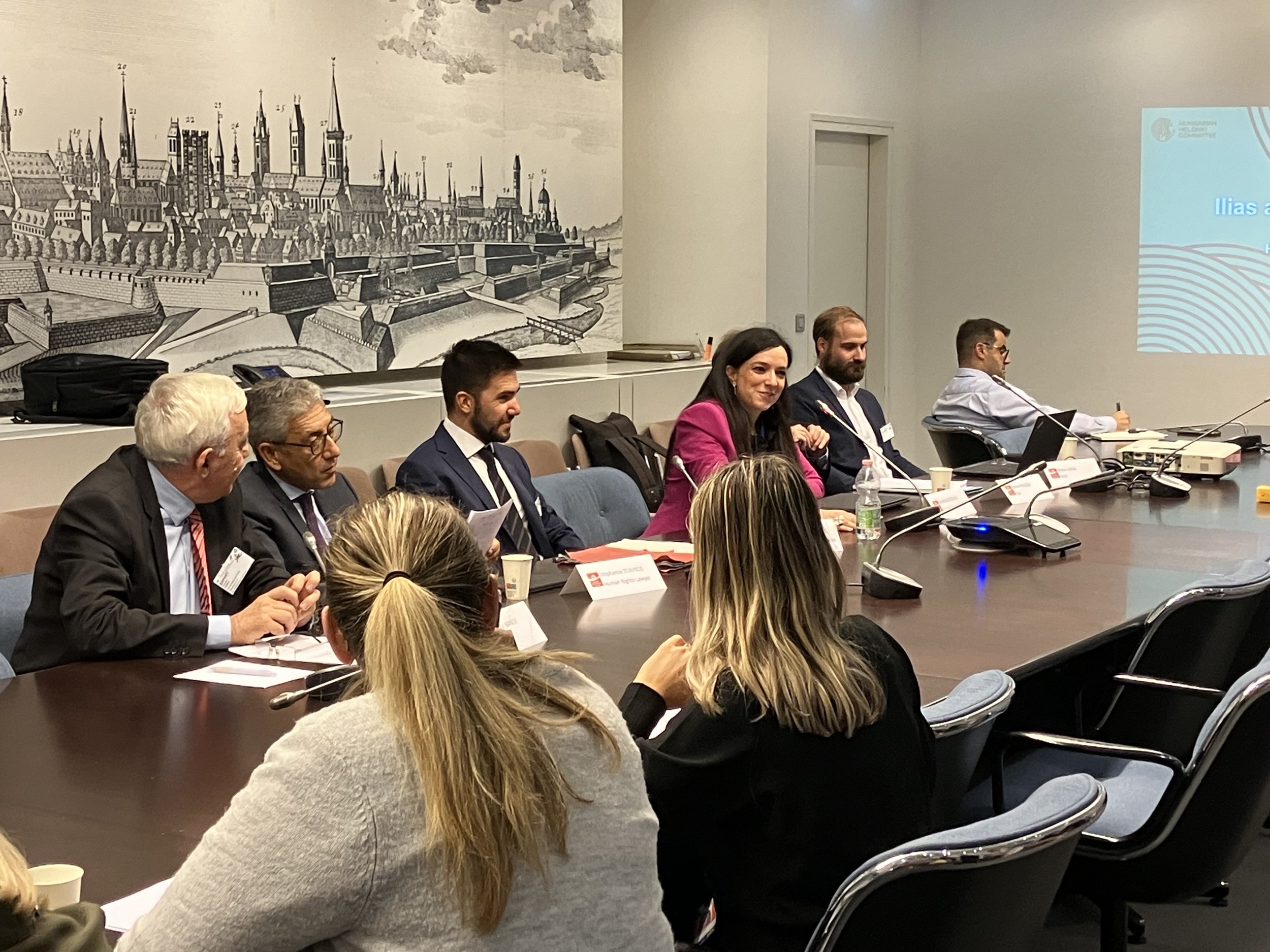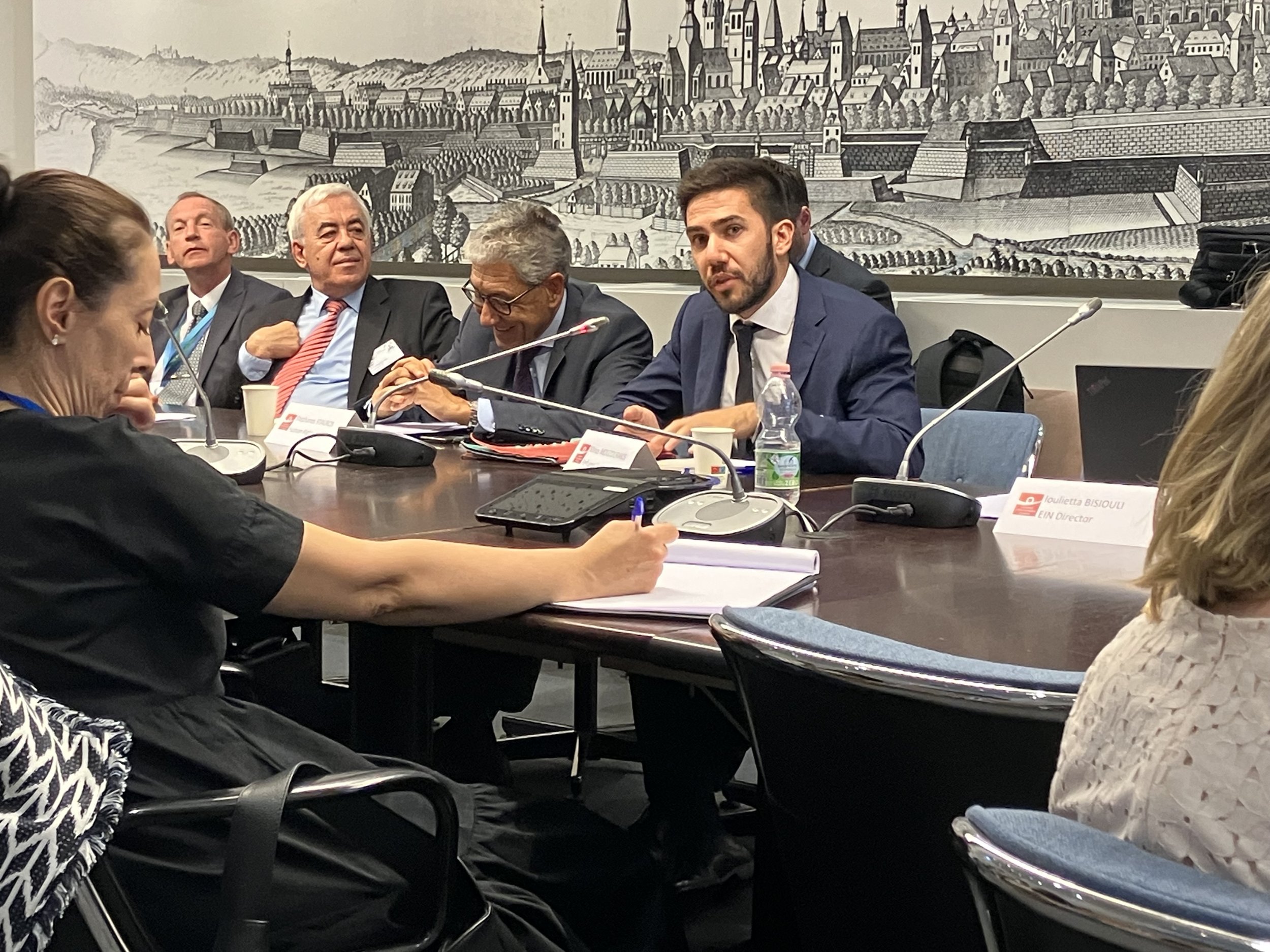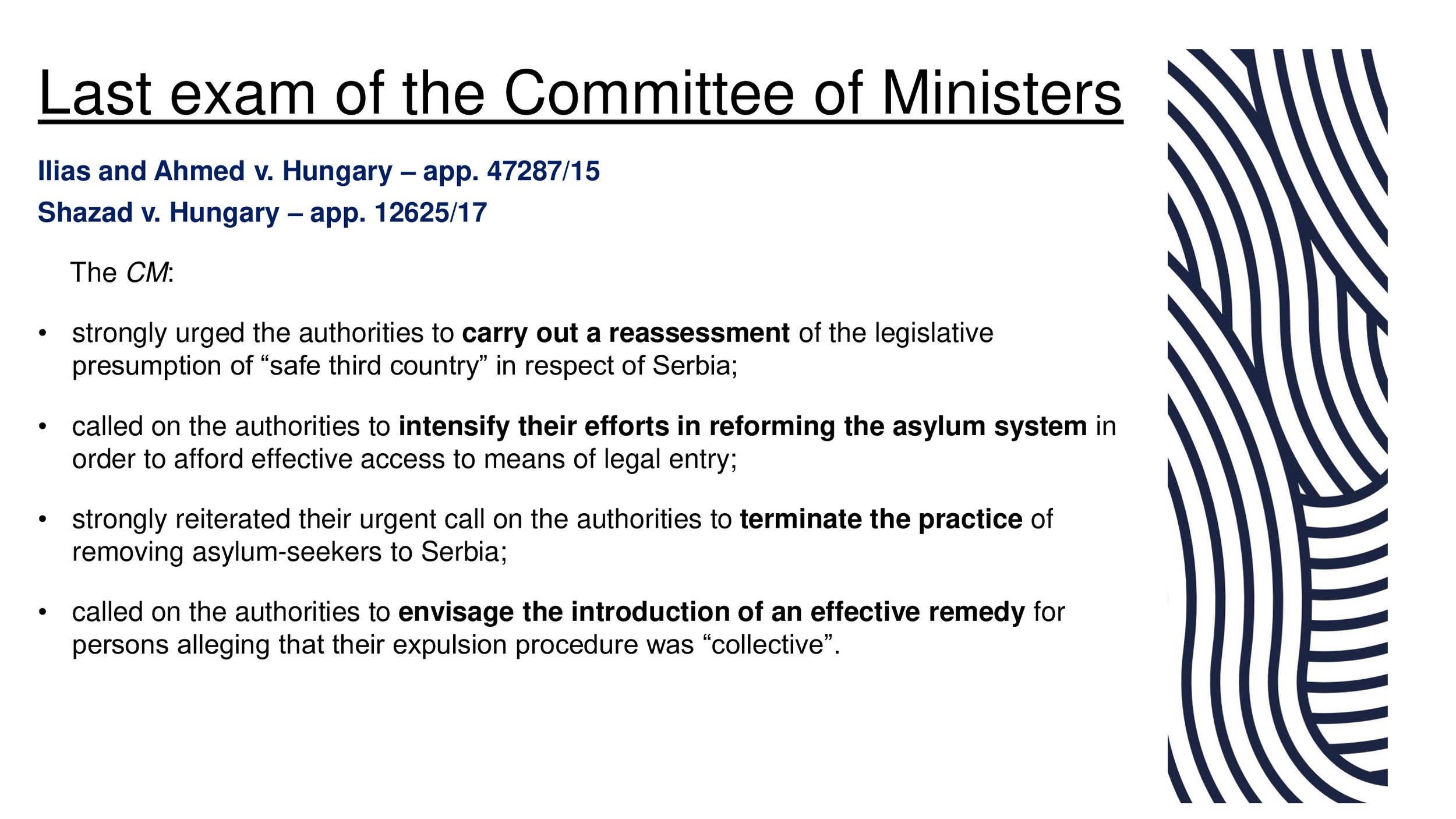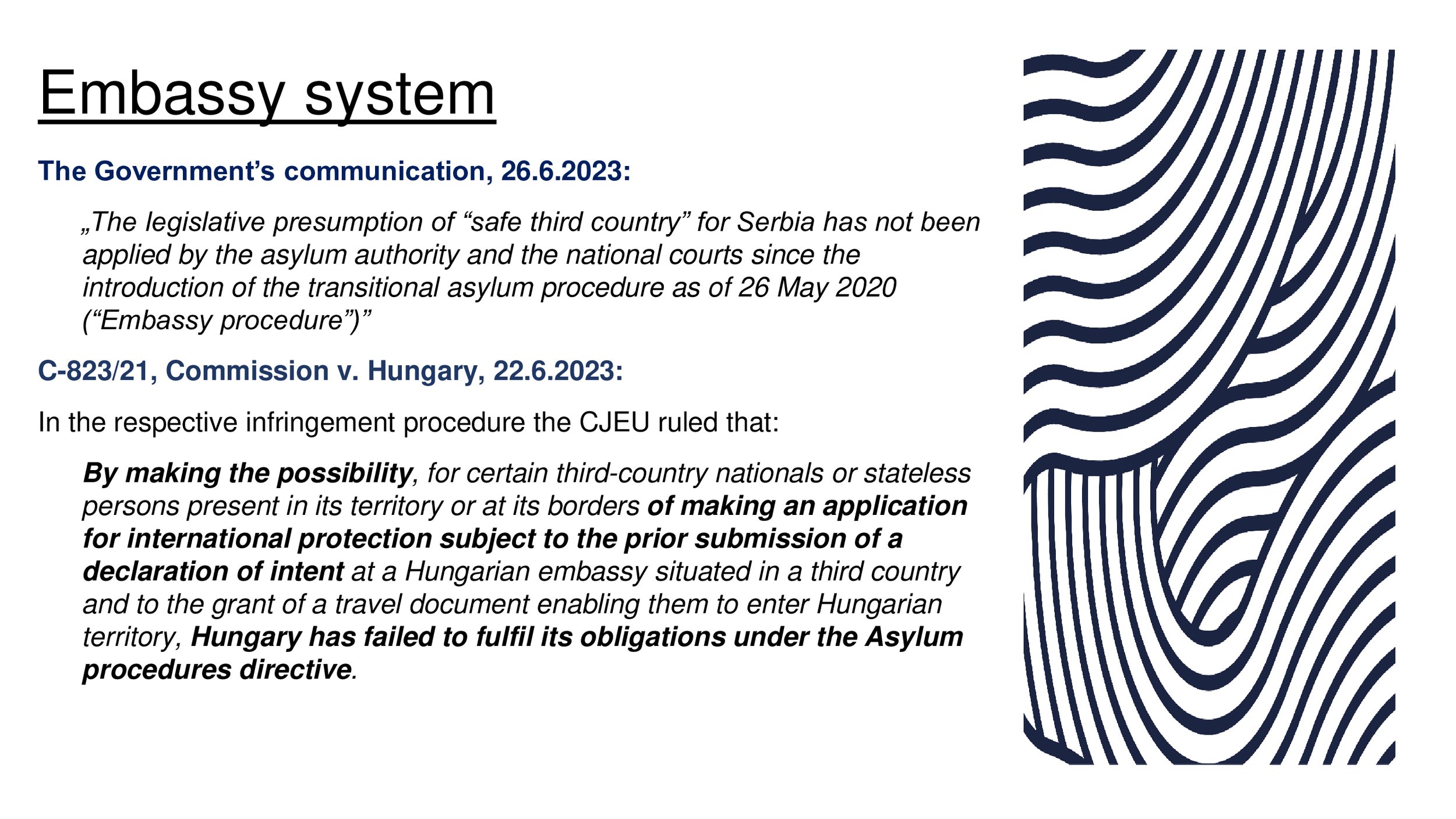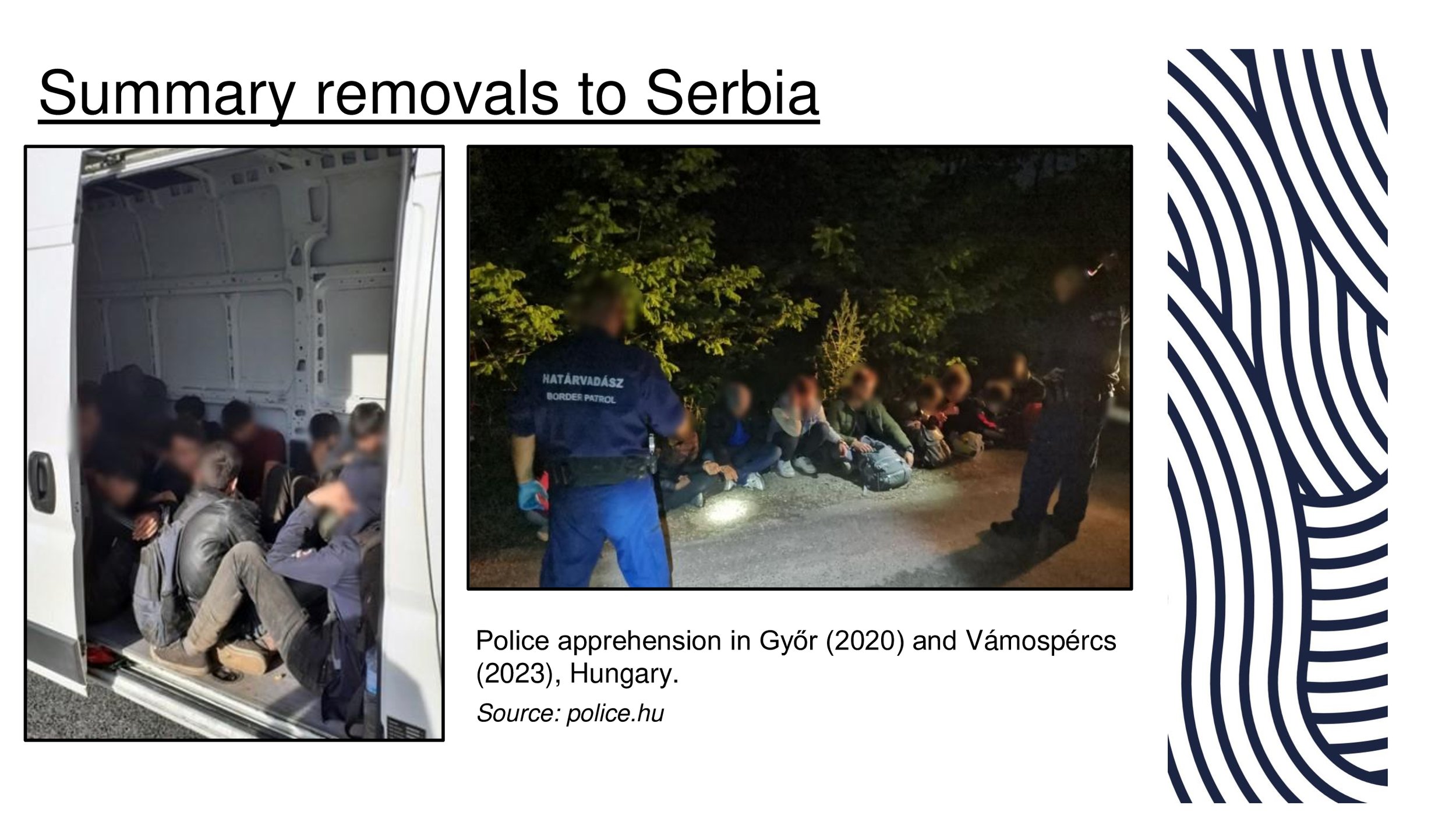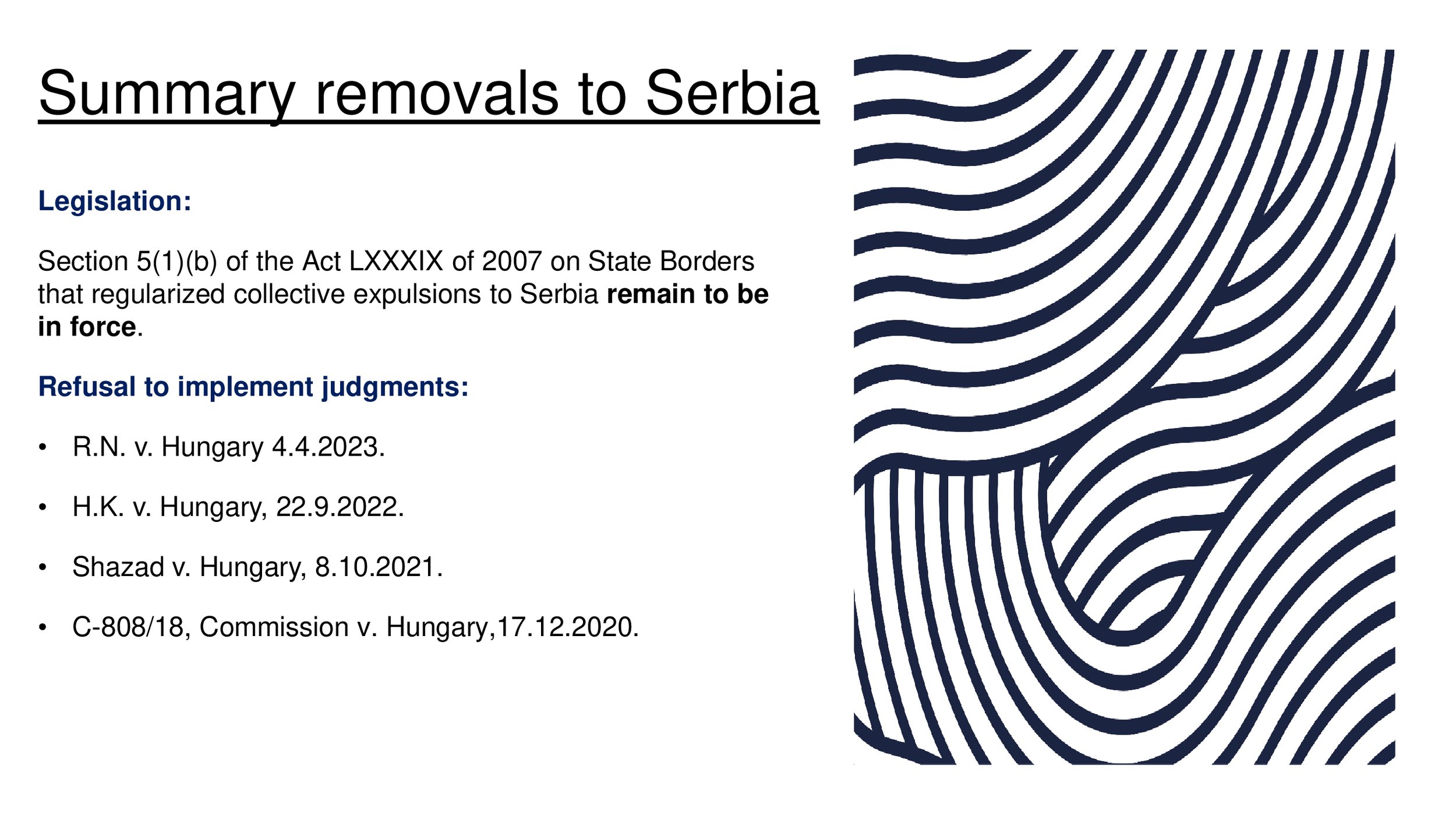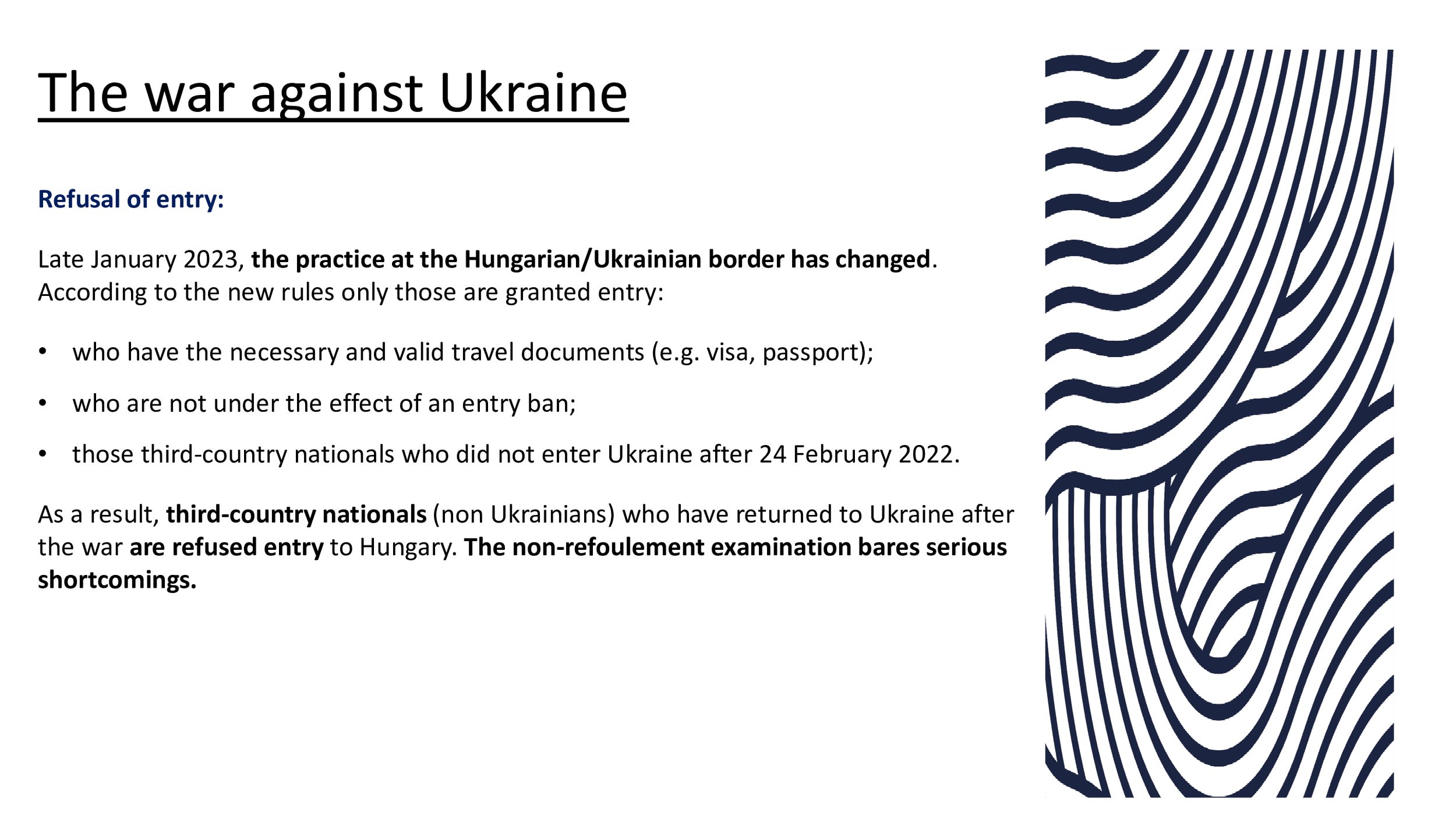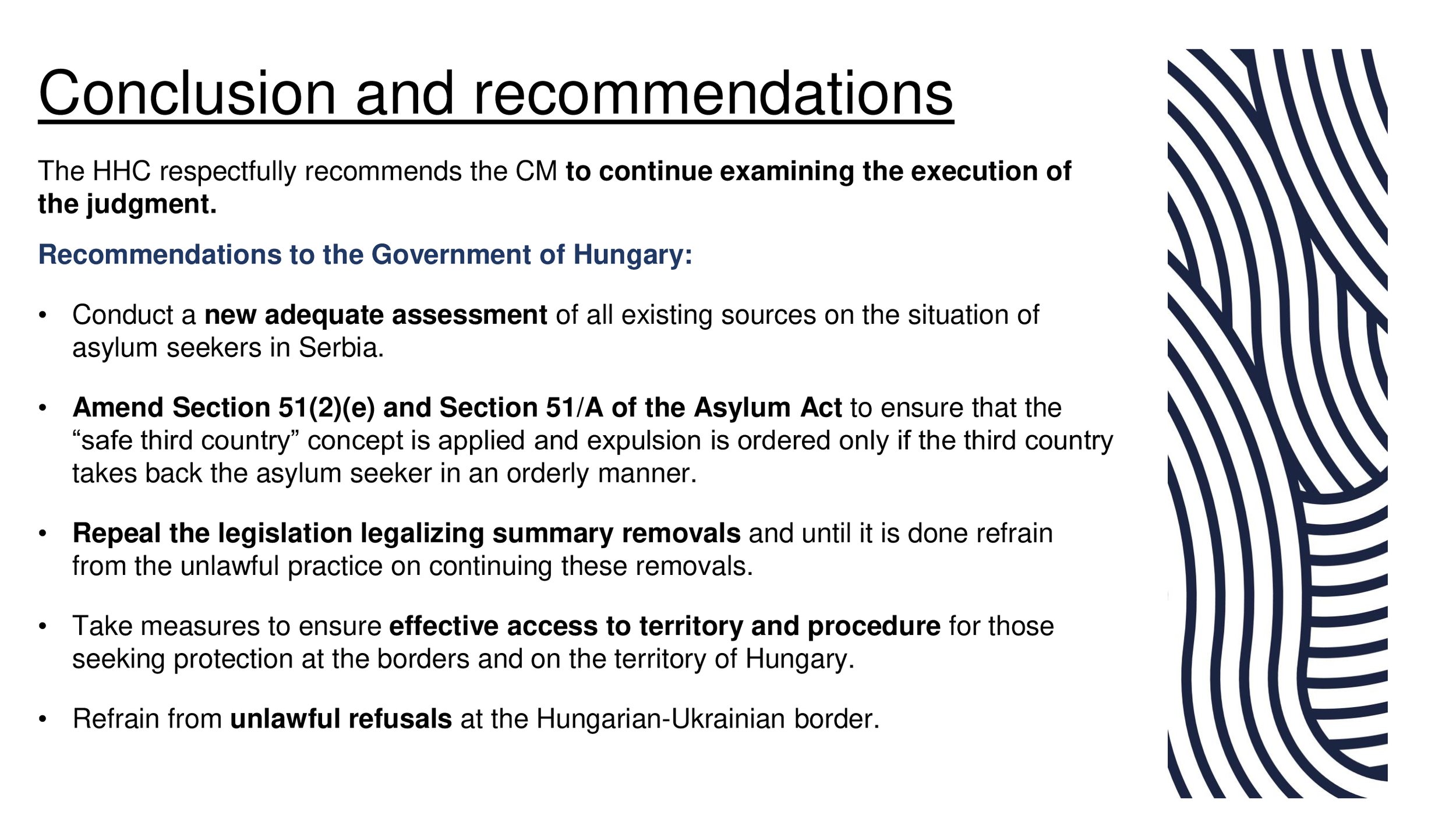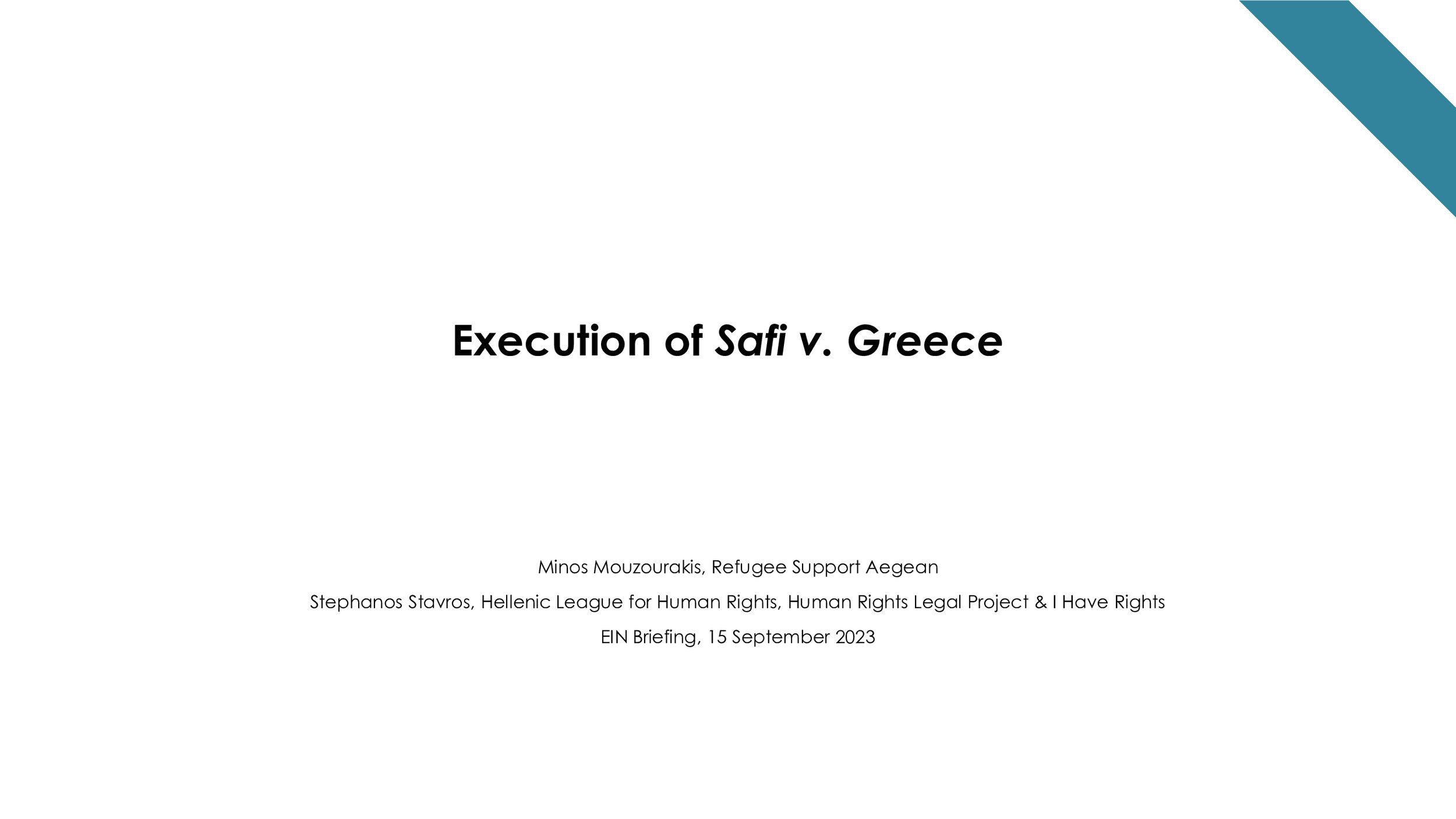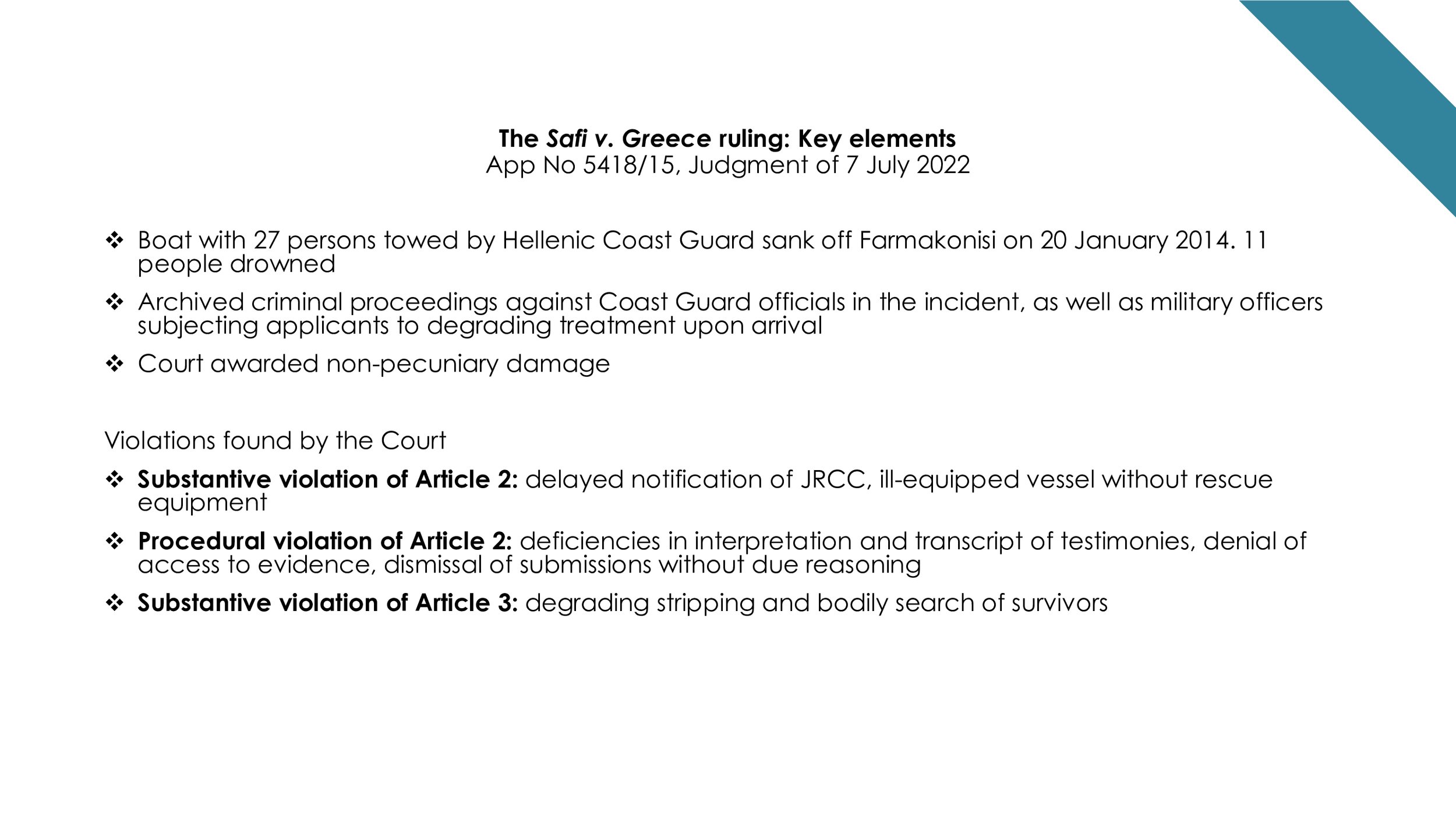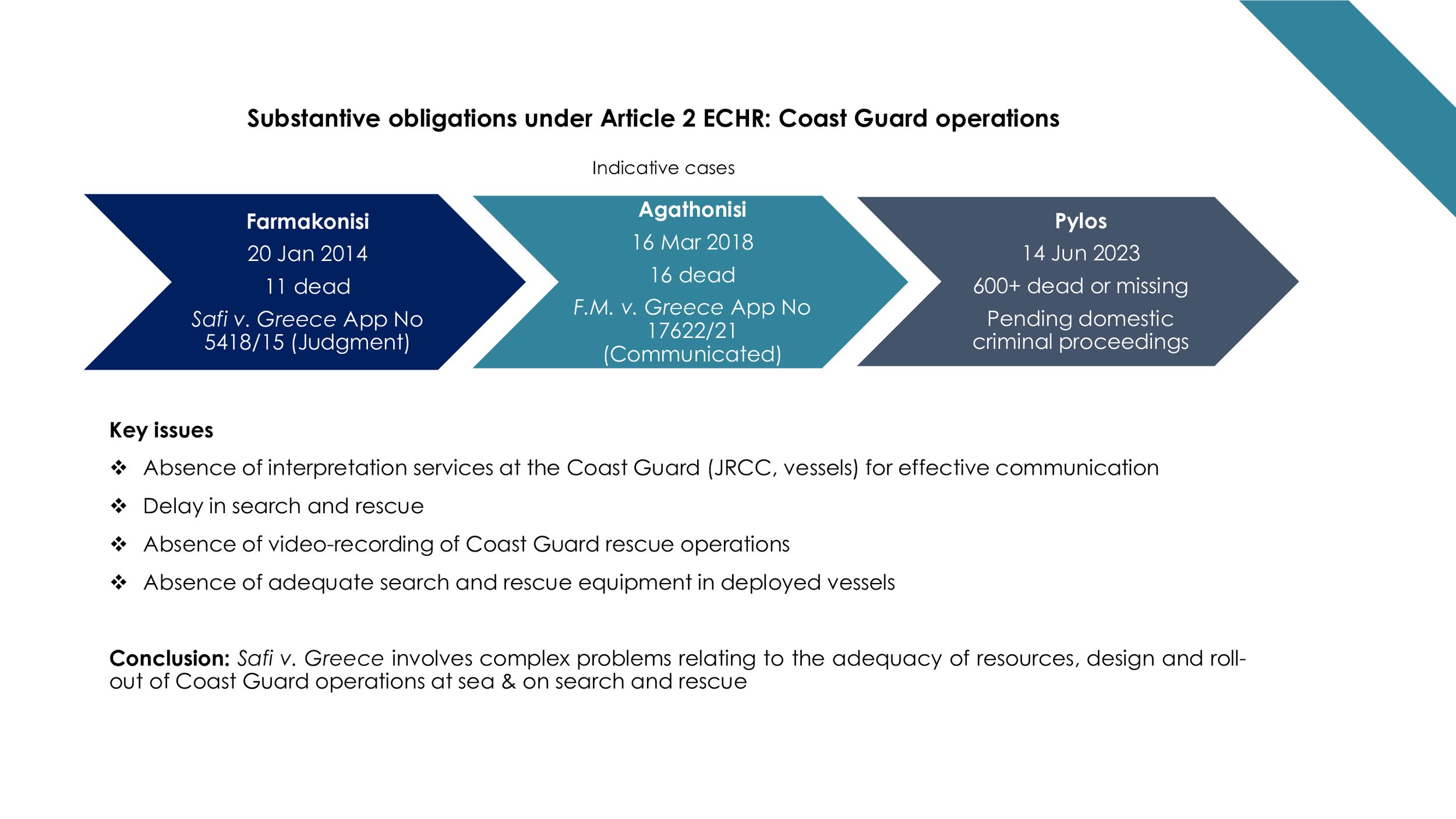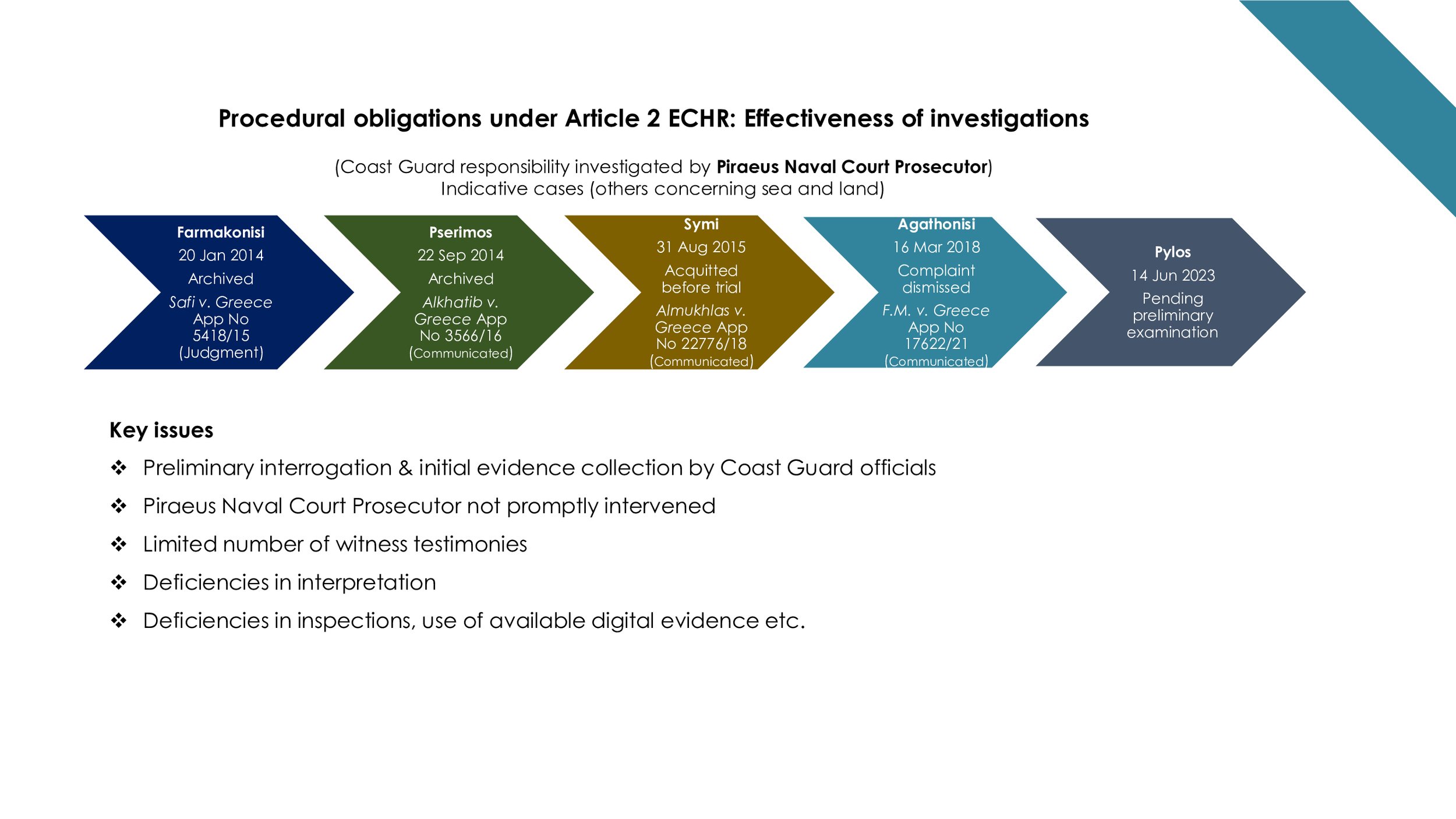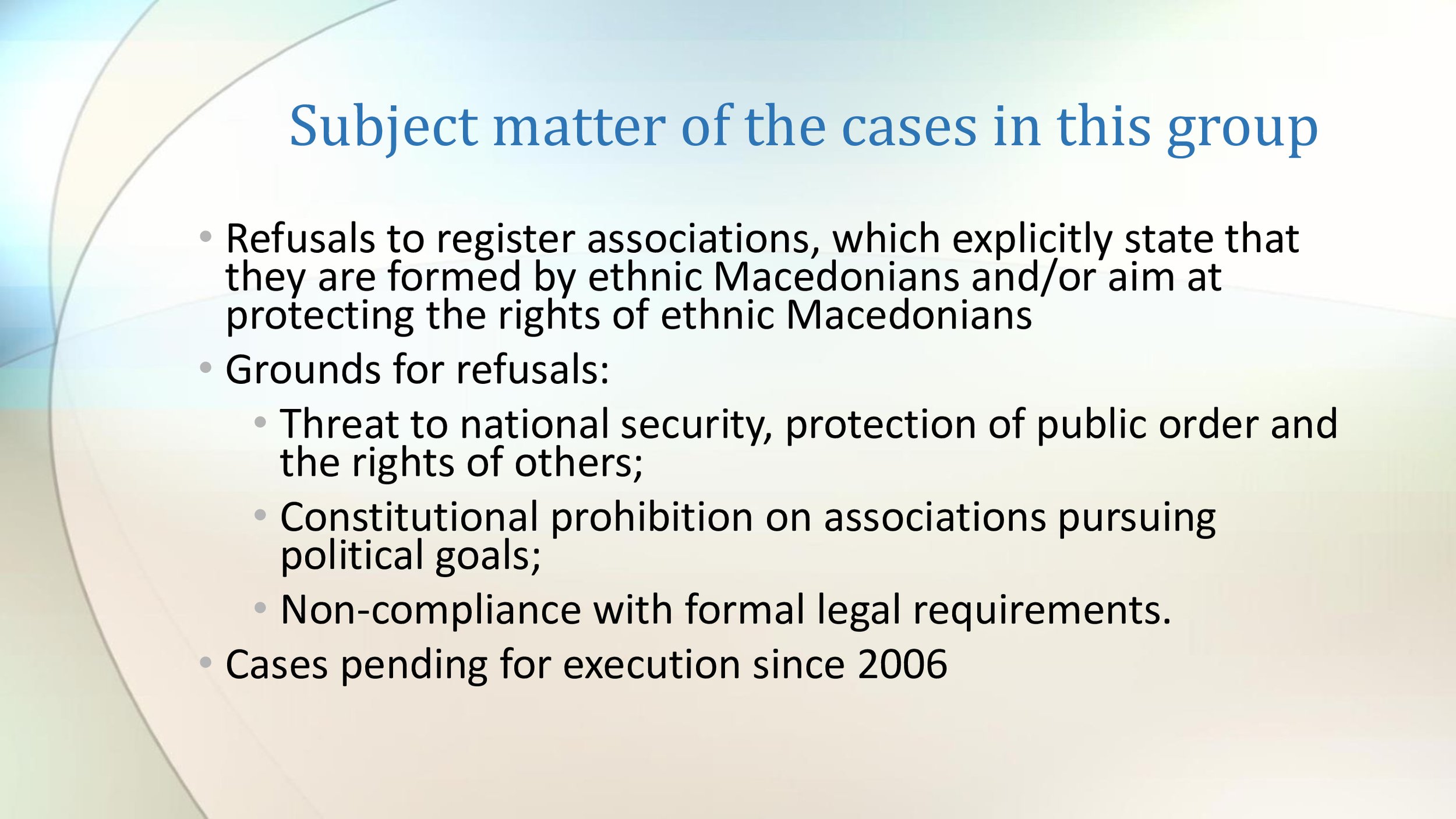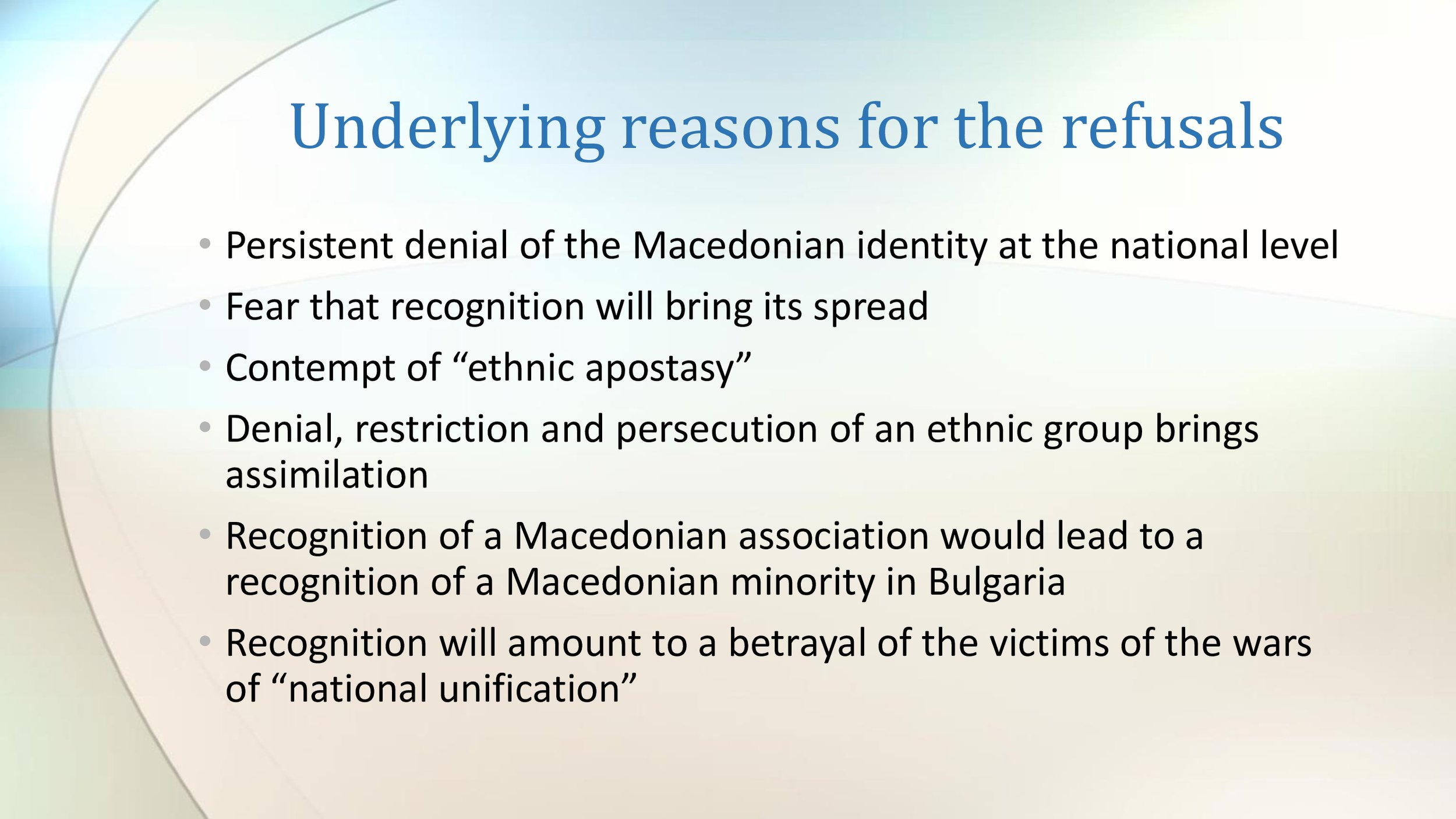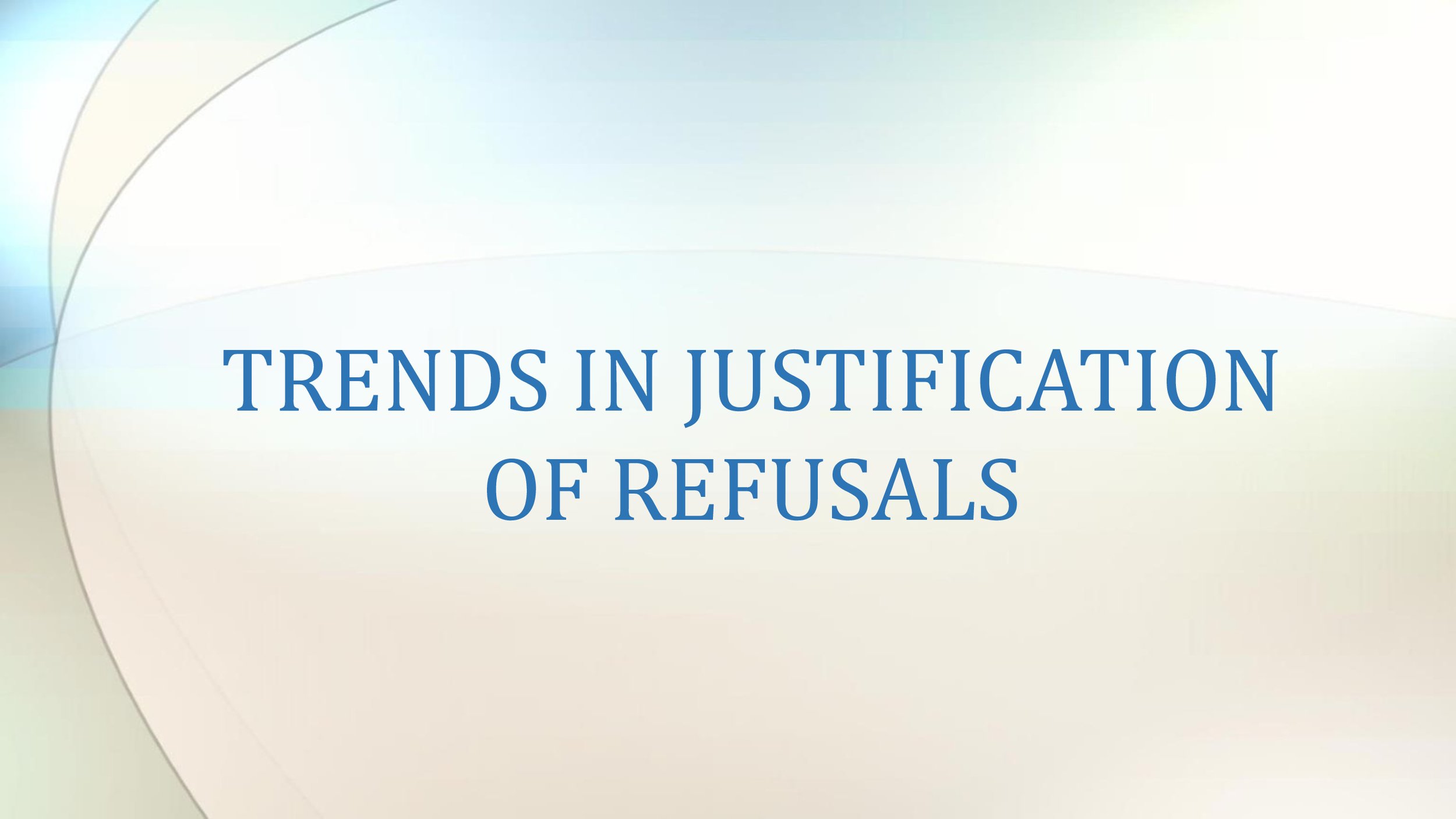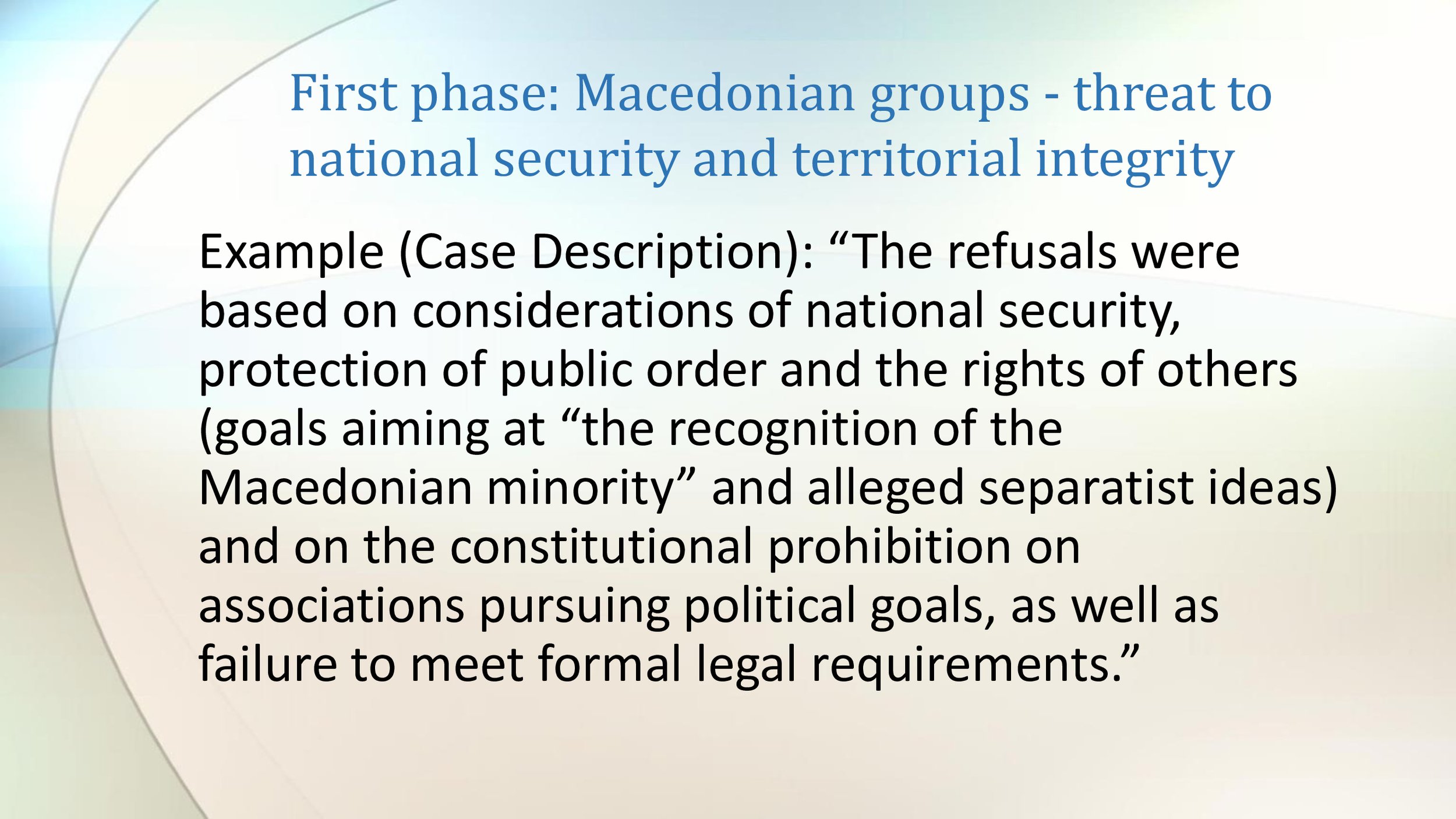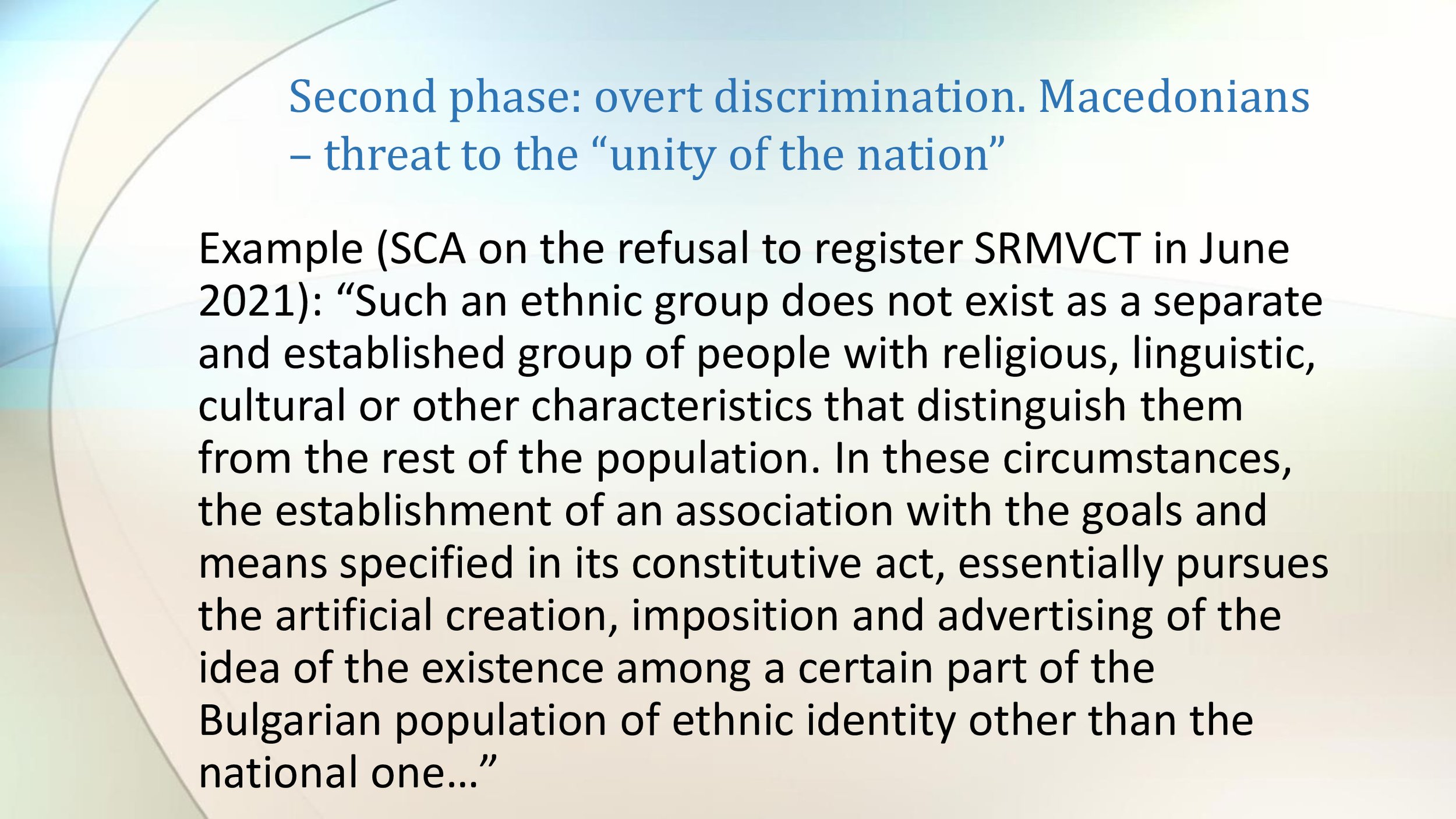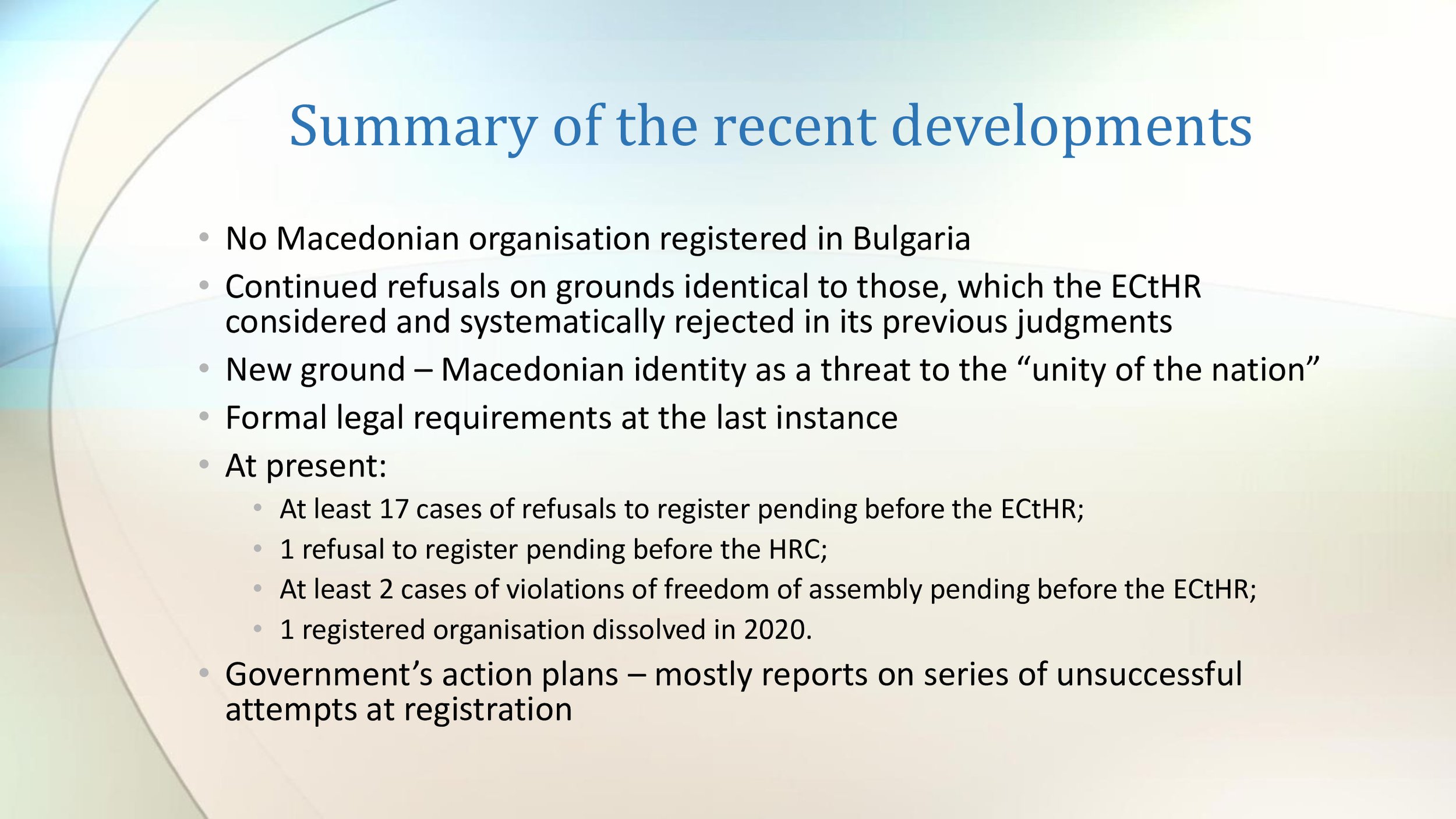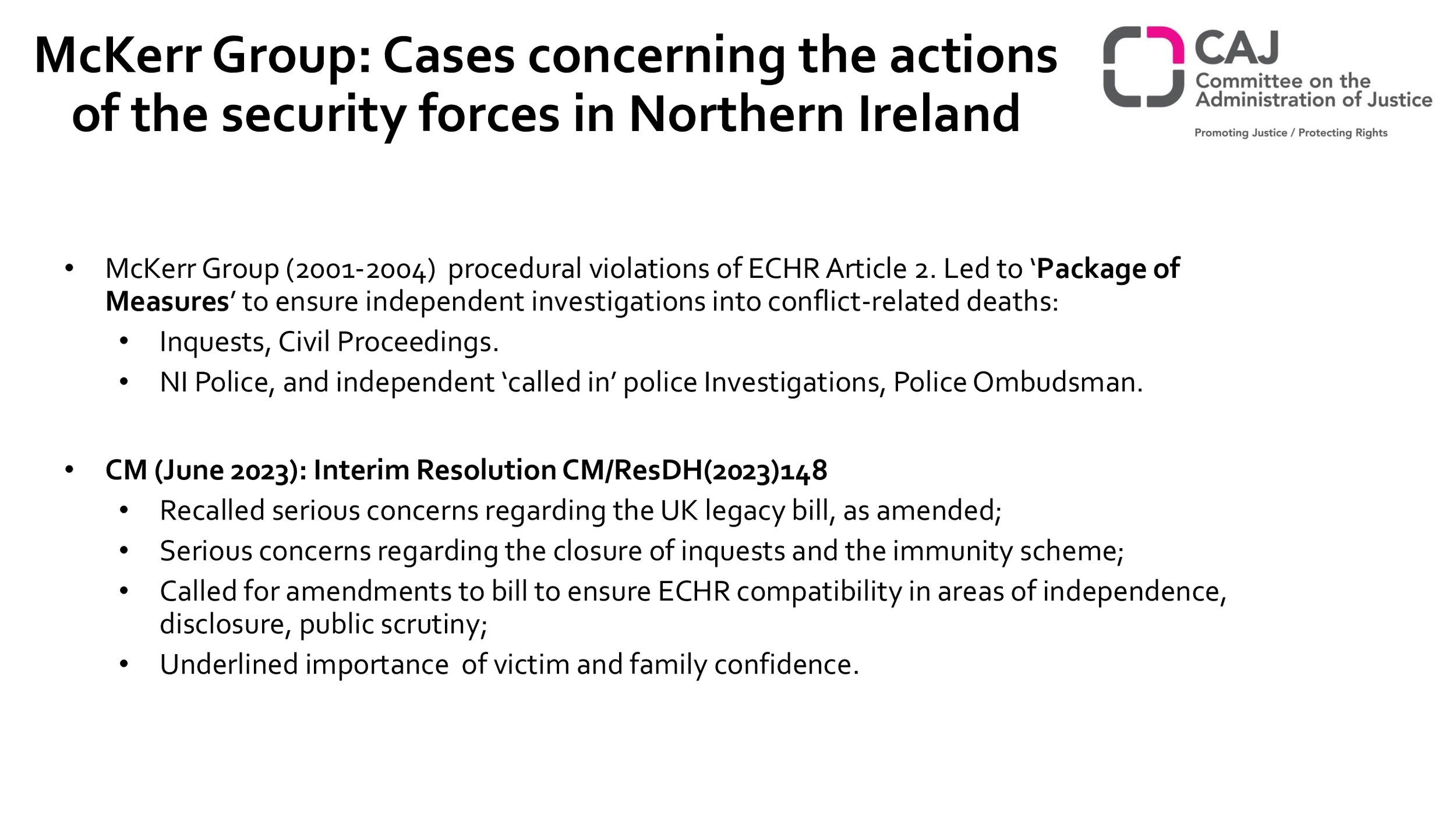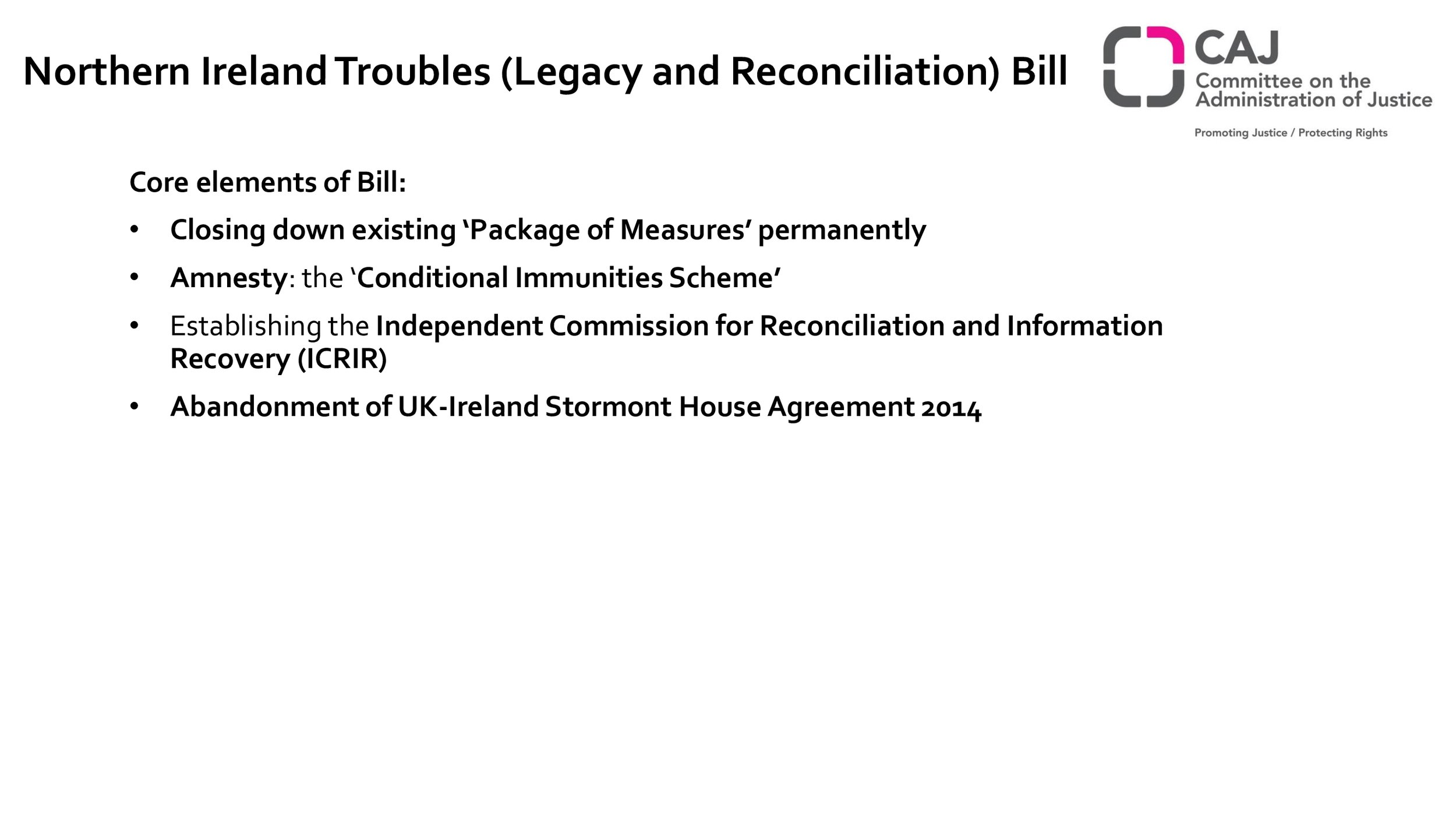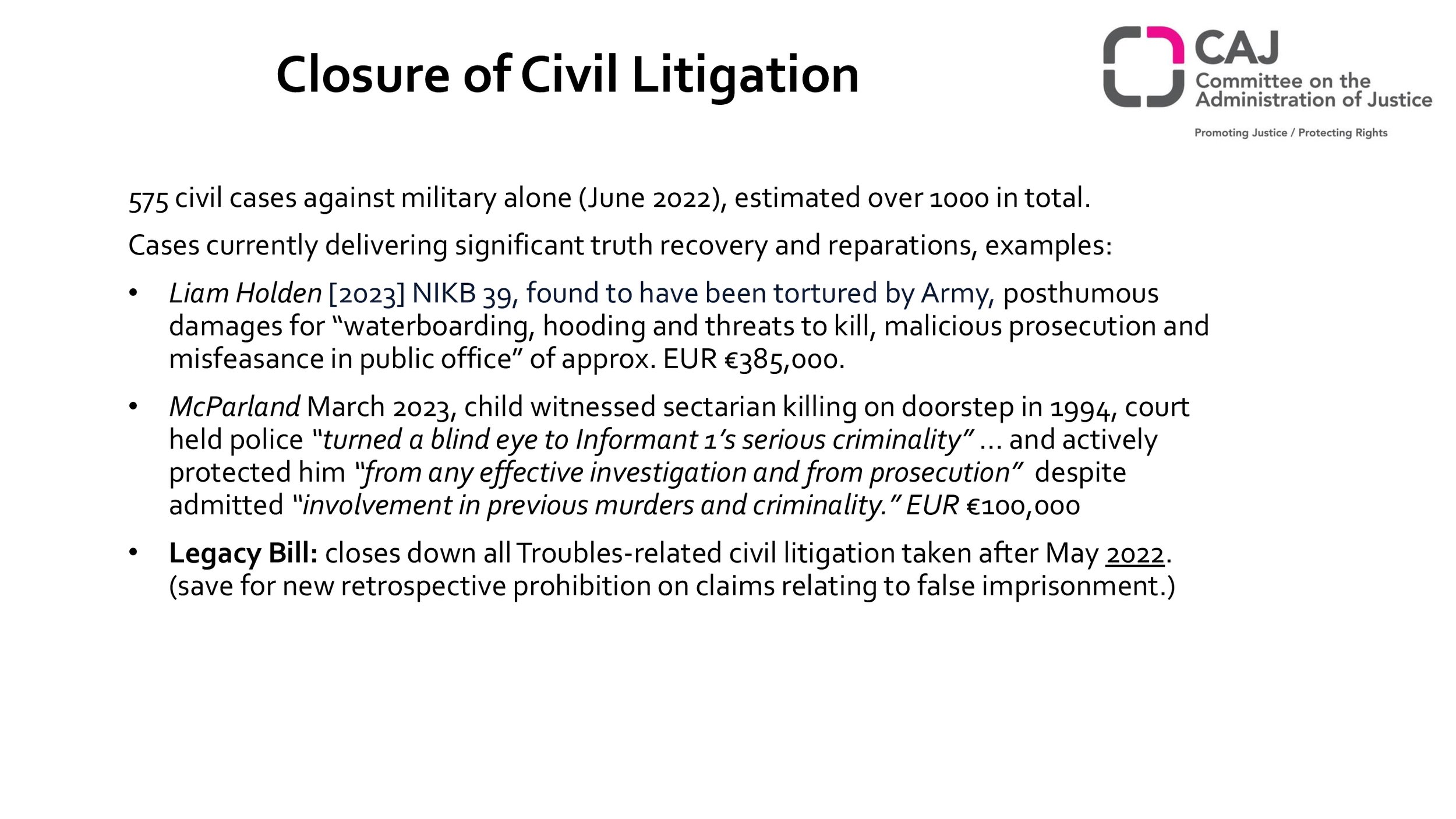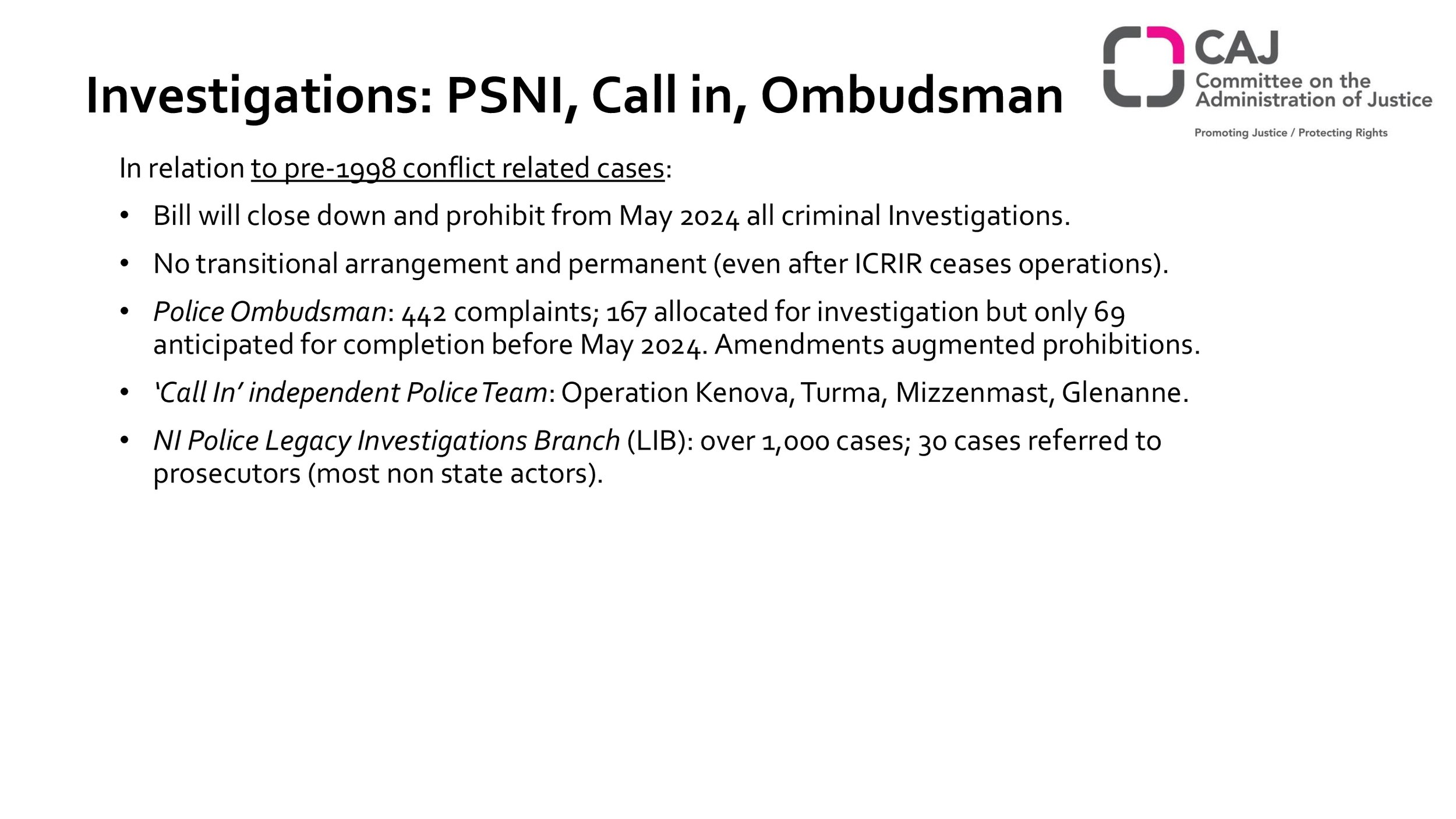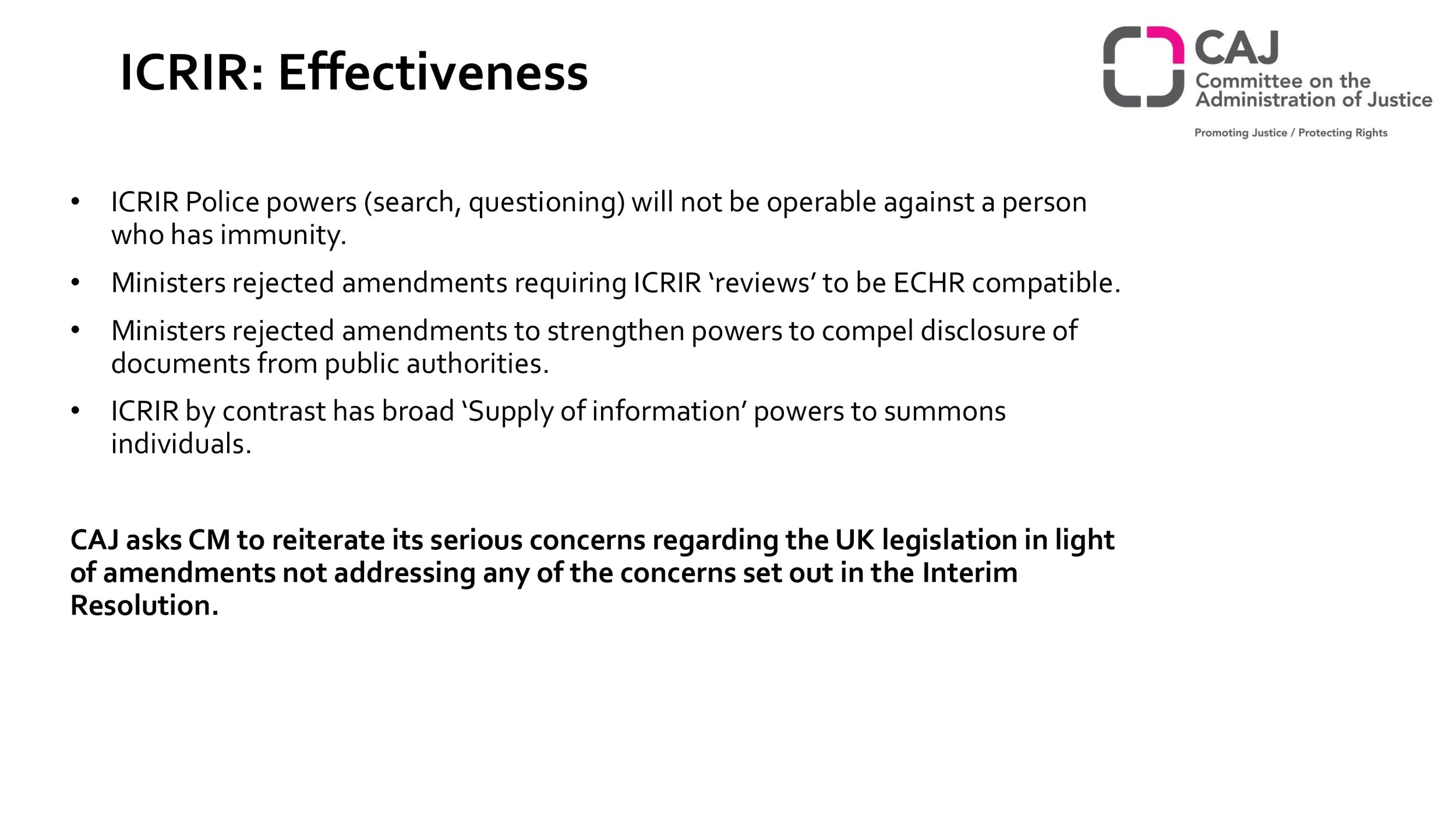From the 12th to the 14th of March 2024, the Committee of Ministers will meet for their quarterly Human Rights Meeting. During this meeting, the Committee of Ministers will examine 39 leading judgments of the European Court of Human Rights that are pending implementation.
EIN members and partners, other civil society actors, lawyers and applicants have made 41 Rule 9 submissions for 28 cases under consideration. The list below sets out an overview of these submissions related to cases on the current agenda.
Overview of Submissions
Violation: Ill-treatment in police custody and ineffective investigations.
Last Examination: March 2022 - CM/Del/Dec(2022)1428/H46-3
Latest Submission: 1492nd meeting (March 2024) (DH) - Rules 9.2 and 9.6 - Reply from the authorities (08/02/2024) following a communication from NGOs (Democracy Development Foundation, Protection of Rights without Borders NGO, Helsinki Citizens Assembly of Vanadzor, Law Development and Protection Foundation, Transparency International Anticorruption Center) (30/01/2024) concerning the case of VIRABYAN v. Armenia (Application No. 40094/05)
Violation: Dispersals of demonstrations and arrests of demonstrators.
Last Examination: June 2023 - CM/Del/Dec(2023)1468/A2
Latest Submission: 1492nd meeting (March 2024) (DH) - Rule 9.1 - Communication from the applicant (05/02/2024) concerning the case of Majidli v. Azerbaijan (Application No. 7218/13) (Gafgaz Mammadov group, 60259/11) [anglais uniquement] [DH-DD(2024)134]
Violation: Unlawfulness of the placement in social care home of the applicant with mental disorders; lack of judicial review and poor living conditions; impossibility for the applicant, partially incapacitated, to request the restoration of his legal capacity.
Last Examination: March 2023 - CM/Del/Dec(2023)1459/H46-6
Latest Submission: 1492nd meeting (March 2024) (DH) - Rule 9.2 - Communication from NGOs (The Validity Foundation, Kera Foundation, The Network of Independent Experts (NIE), The Bulgarian Helsinki Committee, Centre for Independent Living, Chance and Support Association) (26/01/2024) concerning the STANEV group of cases v. Bulgaria (Application No. 36760/06)
Violation: Unjustified refusals by the courts to register an association aiming at achieving “the recognition of the Macedonian minority in Bulgaria”.
Last Examination: September 2023 - CM/Del/Dec(2023)1475/H46-11
Latest Submission: 1492nd meeting (March 2024) (DH) - Rule 9.2 - Communication from an NGO (Bulgarian Helsinki Committee) (25/01/2024) concerning the case of UMO ILINDEN AND OTHERS v. Bulgaria (Application No. 59491/00)
Violation: Statutory limitations on use of property by landlords, including through the rent control scheme for flats subject to protected leases.
Last Examination: December 2023 - CM/Del/Dec(2023)1483/H46-12
Latest Submission: 1492nd meeting (March 2024) (DH) - Rules 9.2 and 9.6 - Reply from the authorities (31/01/2024) following a communication from an NGO (Croatian Federation of Tenants - Citizens of EU) (25/01/2024) concerning the case of STATILEO v. Croatia (Application No. 12027/10)
Violation: Discrimination in the enjoyment of the applicants’ right to education due to their enrolment to special schools between 1996 and 1999, on account of their Roma origin.
Last Examination: September 2023 - CM/Del/Dec(2023)1475/A2b
Latest Submission: 1492nd meeting (March 2024) (DH) - Rule 9.2 - Communication from NGOs (Forum for Human Rights (FORUM) and European Roma Rights Centre) (23/01/2024) concerning the case of D.H. AND OTHERS v. Czech Republic (Application No. 57325/00)
Violation: Violation of the right to enter the State of which a person is a national, due to the absence of appropriate safeguards against arbitrariness in the examination of requests to repatriate French children held since 2019 in the camps in north-eastern Syria.
First Examination
Latest Submission: 1492e réunion (mars 2024) (DH) - Règle 9.2 - Communication d’une ONG (Avocats sans Frontières France) (30/01/2024) relative à l’affaire H.F. et autres c. France (requête n° 24384/19)
Violation: Poor conditions of detention (overcrowding) and lack of an effective preventive remedy.
Last Examination: December 2022 - CM/Del/Dec(2022)1451/H46-11
Latest Submissions: 1492e réunion (mars 2024) (DH) - Règle 9.2 - Communication d’une ONG (Observatoire international des prisons) (31/01/2024) relative à l’affaire J.M.B. et autres c. France (requête n° 9671/15)
1492e réunion (mars 2024) (DH) - Règle 9.2 - Communication d’INDH (Commission nationale consultative des droits de l’homme (CNCDH) et Contrôleur général des lieux de privation de liberté (CGLPL)) (31/01/2024) relative à l’affaire J.M.B. et autres c. France (requête n° 9671/15)
Violation: Lack of effective investigations into allegations of ill-treatment or violations of the right to life; excessive use of force by the police in the course of arrest and/or while detaining suspects.
Last Examination: June 2023 - CM/Del/Dec(2023)1468/H46-11
Latest Submissions: 1492nd meeting (March 2024) (DH) - Rule 9.1 - Communication from the applicant (23/02/2024) concerning the cases of Ochigava and Tsintsabadze v. Georgia (Applications No. 14142/15, 35403/06)
1492nd meeting (March 2024) (DH) - Rule 9.2 - Communication from an NGO (Social Justice Center) (08/02/2024) concerning the case of Machalikashvili and Others v. Georgia (Application No. 32245/19) (Tsintsabadze group, 35403/06)
1492nd meeting (March 2024) (DH) - Rule 9.2 - Communication from NGOs (Georgian Young Lawyers’ Association (GYLA), European Human Rights Advocacy Centre (EHRAC)) (24/01/2024) concerning the TSINTSABADZE group of cases v. Georgia (Application No. 35403/06)
Violation: Prison overcrowding and other poor conditions in prison. Lack of effective remedy.
Last Examination: March 2022 - CM/Del/Dec(2022)1428/H46-13
Latest Submission: 1492nd meeting (March 2024) (DH) - Rule 9.2 - Communication from an NGO (Hellenic League for Human Rights) (22/01/2024) concerning the case of NISIOTIS v. Greece (Application No. 34704/08)
Violation: Discriminatory restriction of voting rights of the applicants belonging to recognised national minorities.
First Examination
Latest Submission: 1492nd meeting (March 2024) (DH) - Rule 9.2 - Communication from an NGO (Hungarian Civil Liberties Union) (29/01/2024) concerning the case of Bakirdzi and E.C. v. Hungary (Application No. 49636/14)
Violation: Discriminatory assignment of Roma children to special primary schools for children with mental disabilities (Horváth and Kiss).
Discrimination of a Roma pupil on account of segregation in a State-run primary school attended almost exclusively by Roma children (Szolcsán)
Last Examination: June 2022 - CM/Del/Dec(2022)1436/H46-9 (Horváth and Kiss).
First examination (Szolcsán)
Latest Submission: 1492nd meeting (March 2024) (DH) - Rule 9.2 - Communication from NGOs (Rosa Parks foundation and the Coalition for Inclusive Education) (23/01/2024) concerning the case of HORVATH and KISS v. Hungary (Application No. 11146/11)
Violation: Overcrowding and poor material conditions of detention, lack of effective remedies and other deficiencies in the protection of prisoners' rights.
Last Examination: March 2021 - CM/Del/Dec(2021)1398/H46-12
Latest Submission: 1492nd meeting (March 2024) (DH) - Rule 9.2 - Communication from an NGO (HHC) (18/12/2023) concerning the cases of ISTVAN GABOR KOVACS and Varga v. Hungary (Applications No. 15707/10, 14097/12)
Violation: Placement of unaccompanied minor in adult reception centre in inadequate conditions and without being provided with minimum procedural guarantees in age-assessment procedure.
First Examination
Latest Submission: 1492nd meeting (March 2024) (DH) - Rule 9.2 - Communication from an NGO (Association for Juridical Studies on Immigration (ASGI)) (31/01/2024) concerning the case of Darboe and Camara v. Italy (Application No. 5797/17)
Violation: Lack of legislation governing the conditions and procedures relating to gender reassignment.
Last Examination: September 2023 - CM/Del/Dec(2023)1475/H46-21
Latest Submission: 1492nd meeting (March 2024) (DH) - Rule 9.2 - Communication from NGOs (TGEU-Transgender Europe, Lithuanian trans rights and mutual support association “Trans Autonomija”, the National LGBTI rights organization LGL, Human Rights Monitoring Institute and ILGA Europe) (25/01/2024) concerning the case of L. v. Lithuania (Application No. 27527/03)
Violation: Censorship and political control by State authorities at State Television Company, Teleradio-Moldova.
Last Examination: March 2023 - CM/Del/Dec(2023)1459/H46-14
Latest Submission: 1492nd meeting (March 2024) (DH) - Rule 9.2 - Communication from an NGO (Independent Journalism Center) (25/01/2024) concerning the case of MANOLE AND OTHERS v. Republic of Moldova (Application No. 13936/02)
Violation: Refusal of border guards to receive asylum application and summary removal to a third country with a risk of refoulement to and ill-treatment in the country of origin. Collective expulsion of aliens in a wider state policy of refusing entry to foreigners coming from Belarus. Lack of effective remedy with a suspensive effect. Non-compliance with interim measures under Rule 39 of the Rules of the Court.
Last Examination: March 2023 - CM/Del/Dec(2023)1459/H46-15
Latest Submission: 1492nd meeting (March 2024) (DH) - Rule 9.2 - Communication from an NGO (Association for Legal Intervention) (12/02/2024) concerning the case of M.K. and Others v. Poland (Application No. 40503/17)
Violation: Absence of an adequate legal framework for the exercise of the right to therapeutic abortion in the event of disagreement between the patient and the specialist doctor (Tysiac) and lack of access to prenatal test enabling to take an informed decision on whether to seek an abortion (R.R.).
Failure to provide effective access to reliable information on the conditions and procedures to be followed to access lawful abortion lawful abortion (P. and S.).
Last Examination: June 2023 - CM/Del/Dec(2023)1468/H46-19
Latest Submission: 1492nd meeting (March 2024) (DH) - Rule 9.2 - Communication from NGOs (Foundation for Women and Family Planning (FEDERA) and Center for Reproductive Rights) (07/02/2024) concerning the cases of TYSIAC, R.R. and P. and S. v. Poland (Applications No. 5410/03, 27617/04, 57375/08)
Violation: Breaches of the State’s positive obligation effectively to apply a criminal-law system punishing any non-consensual sexual acts, in particular when the victims are children and persons with psychosocial disabilities.
Last Examination: December 2023 - CM/Del/Dec(2023)A1
Latest Submission: 1492nd meeting (March 2024) (DH) - Rule 9.2 - Communication from an NGO (Centre for Legal Resources) (26/01/2024) concerning the case of E.B. v. Romania (Application No. 49089/10)
Violation: Non-implementation of courts or arbitral awards ordering State-controlled companies to pay various sums to the applicants/applicant companies.
Last Examination: December 2023 - CM/Del/Dec(2023)/1483/H46-29
Latest Submissions: 1492nd meeting (March 2024) (DH) - Rule 9.1 - Communication from the applicant (29/01/2024) concerning the case of Omegatech Enterprises Ltd. v. Romania (Application No. 24612/07) (judgment S.C. Polyinvest S.R.L. and Others v. Romania (No. 20752/07)) (Sacaleanu group, 73970/01)
1492nd meeting (March 2024) (DH) - Rule 9.1 - Communication from the applicant (10/01/2024) concerning the case of Omegatech Enterprises Ltd. v. Romania (Application No. 24612/07) (judgment S.C. Polyinvest S.R.L. and Others v. Romania (No. 20752/07)) (Sacaleanu group, 73970/01)
Violation: Restrictions resulting in persecution and dissolution of some NGOs based on the domestic law, incompatible with the right to freedom of assembly.
First Examination
Latest Submissions: 1492nd meeting (March 2024) (DH) - Rule 9.1 - Communication from the applicant (08/02/2024) concerning the case of Ecodefence and Others v. Russia (Application No. 9988/13)
1492nd meeting (March 2024) (DH) - Rule 9.2 - Communication from NGOs (Memorial Human Rights Defence Centre, OVD-Info, European Human Rights Advocacy Centre (EHRAC), SOVA Research Centre, Citizens’ Watch and Public Verdict Foundation) (06/02/2024) concerning the case of Ecodefence and Others v. Russian Federation (Application No. 9988/13)
Violation: Surveillance operation, without adequate legal safeguards against abuse due to the practically unfettered power exercised by the Slovak Intelligence Service
First Examination
Latest Submission: 1492nd meeting (March 2024) (DH) - Rule 9.1 - Communication from the applicants (07/12/2023) in the cases of Hascak and Zoltán Varga v. Slovak Republic (Applications No. 58359/12, 58361/12) (Zoltan Varga group, 58361/12)
Violation: 14 violations in relation to the situation in the northern part of Cyprus (missing persons).
Last Examination: March 2023 - CM/Del/Dec(2023)1459/H46-25
Latest Submissions: 1492nd meeting (March 2024) (DH) - Rule 9.2 - Communication from an NGO (Truth Now) (15/01/2024) concerning the cases of VARNAVA AND OTHERS v. Turkey and CYPRUS v. Turkey (Applications No. 16064/90, 25781/94)
1492nd meeting (March 2024) (DH) - Rule 9.2 - Communication from an NGO (07/12/2023) concerning the cases of Cyprus v. Turkey and Varnava v. Turkey (Applications Nos. 25781/94, 16064/90)
Violation: Unjustified detention of the applicants without reasonable suspicion that they had committed an offence, with the ulterior purpose of stifling pluralism and limiting freedom of political debate. Unforeseeable lifting of the parliamentary immunity and subsequent criminal proceedings to penalise the applicants for their political speeches.
Last Examination: December 2023 - M/Del/Dec(2023)1483/H46-36
Latest Submissions: 1492nd meeting (March 2024) (DH) - Rule 9.1 - Communication from the applicant (17/01/2024) concerning the case of Selahattin Demirtas v. Turkey (No. 2) (Application No. 14305/17)
1492nd meeting (March 2024) (DH) - Rule 9.2 - Communication from NGOs (Turkey Human Rights Litigation Support Project, Human Rights Watch, the International Commission of Jurists, and the International Federation for Human Rights) (12/02/2024) concerning the group of cases Selahattin Demirtas v. Turkey (No. 2) (Application No. 14305/17)
Violation: Unjustified and extended detention of the applicant without reasonable suspicion and with the ulterior purpose of reducing him to silence.
Last Examination: December 2023 - CM/Del/Dec(2023)1483/H46-37
Latest Submissions: 1492nd meeting (March 2024) (DH) - Rule 9.1 - Communication from the applicant (08/02/2024) concerning the case of Kavala v. Türkiye (Application No. 28749/18)
1492nd meeting (March 2024) (DH) - Rule 9.2 - Communication from NGOs (Turkey Human Rights Litigation Support Project, Human Rights Watch, The International Commission of Jurists) (26/01/2024) concerning the case of Kavala v. Türkiye (Application No. 28749/18)
Violation: Unjustified interferences with freedom of expression, in particular through criminal proceedings, including defamation, and the consequent chilling effect. Unforeseeable conviction of membership of an illegal organisation for the mere fact of attending a public meeting and expressing views there.
Last Examination: March 2023 - CM/Del/Dec(2023)1459/H46-28
Latest Submissions: 1492nd meeting (March 2024) (DH) - Rule 9.2 - Communication from NGOs (Truth Justice Memory Center (Hakikat Adalet Hafıza Merkezi) and others) (30/01/2024) concerning the Altug Taner Akcam, Artun and Guvener, Isikirik, Nedim Sener, Oner and Turk groups of cases v. Turkey (Applications No. 27520/07, 75510/01, 41226/09, 38270/11, 51962/12)
1492nd meeting (March 2024) (DH) - Rule 9.2 - Communication from an NGO (Human Rights Association (İnsan Hakları Derneği)) (24/01/2024) concerning the cases of Altug Taner Akcam, Artun and Guvener, Isikirik, Nedim Sener and Oner and Turk groups v. Turkey (Applications No. 27520/07, 75510/01, 41226/09, 38270/11, 51962/12)
1492nd meeting (March 2024) (DH) - Rule 9.2 - Communication from an NGO (Media and Law Studies Association (MLSA)) (25/01/2024) concerning the cases of Altug Taner Akcam, Artun and Guvener, Nedim Sener and Oner and Turk groups v. Turkey (Applications No. 27520/07, 75510/01, 38270/11, 51962/12) and Işıkırık v. Turkey (41226/09)
1492nd meeting (March 2024) (DH) - Rule 9.2 - Communication from an NGO (Amnesty International) (12/02/2024) concerning the case of Taner Kiliç (n° 2) v. Turkey (Application No. 208/18) (Nedim Sener group, 38270/11)
1492nd meeting (March 2024) (DH) - Rule 9.1 - Communication from the applicant (30/01/2024) concerning the case of Taner Kiliç (n° 2) v. Turkey (Application No. 208/18) (Nedim Sener group, 38270/11)
1492nd meeting (March 2024) (DH) - Rules 9.2 and 9.6 - Communication from NGOs (Amnesty International, ICJ, and Turkey Human Rights Litigation Support Project) (05/01/2024) concerning the case of Taner Kiliç (No. 2) v. Turkey (Application No. 208/18) (Nedim Sener group, 38270/11) and reply from the authorities (18/01/2024)
Violation: Lack of effective investigation into the fate of nine Greek Cypriots who disappeared during the military operations undertaken by Turkey in Cyprus in 1974.
Last Examination: March 2023 - CM/Del/Dec(2023)1459/H46-30
Latest Submission: 1492nd meeting (March 2024) (DH) - Rule 9.1 - Communication from the applicant (17/01/2024) concerning the case of VARNAVA AND OTHERS v. Turkey (Application No. 16064/90)
1492nd meeting (March 2024) (DH) - Rule 9.2 - Communication from an NGO (Truth Now) (15/01/2024) concerning the cases of VARNAVA AND OTHERS v. Turkey and CYPRUS v. Turkey (Applications No. 16064/90, 25781/94)
1492nd meeting (March 2024) (DH) - Rule 9.2 - Communication from an NGO (07/12/2023) concerning the cases of Cyprus v. Turkey and Varnava v. Turkey (Applications Nos. 25781/94, 16064/90)
Violation: Multiple violations to stop Maidan protests in 2013-2014 and lack of effective and independent investigations.
First Examination
Latest Submission: 1492nd meeting (March 2024) (DH) - Rules 9.2 and 9.6 - Reply from the authorities (30/01/2024) following a communication from an NGO (UKRAINIAN HELSINKI HUMAN RIGHTS UNION) (22/01/2024) concerning the case of Shmorgunov and Others v. Ukraine (Application No. 15367/14)






